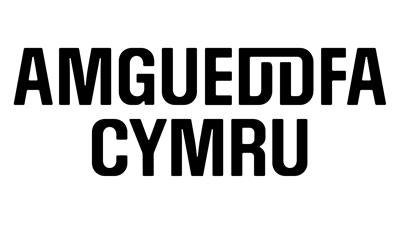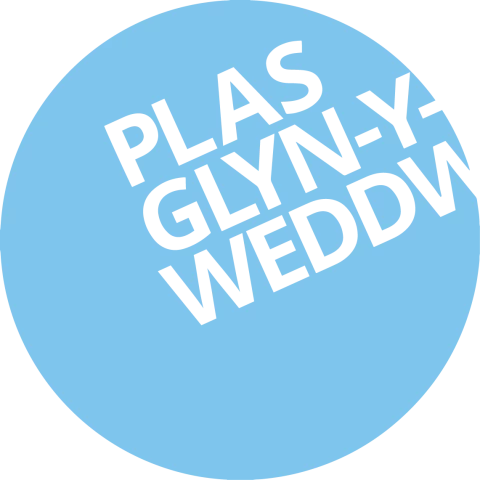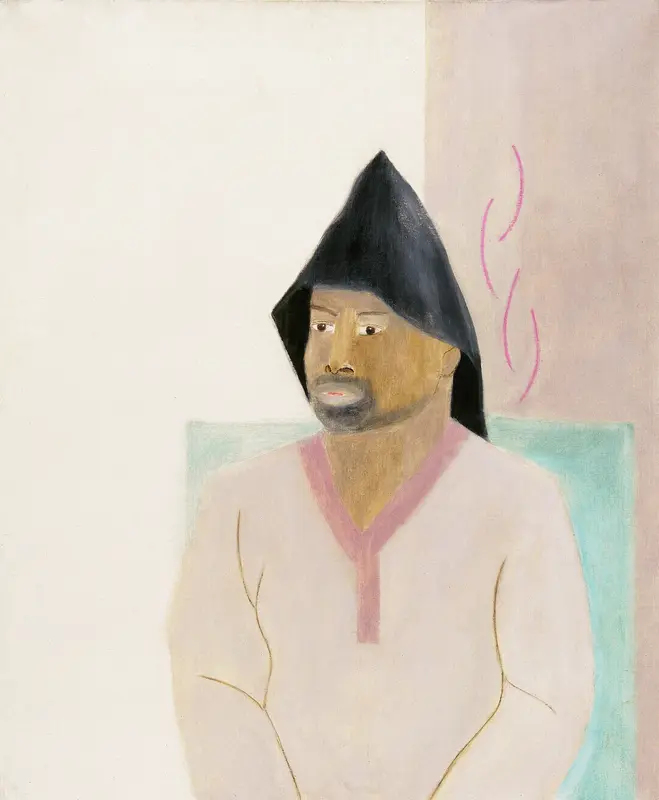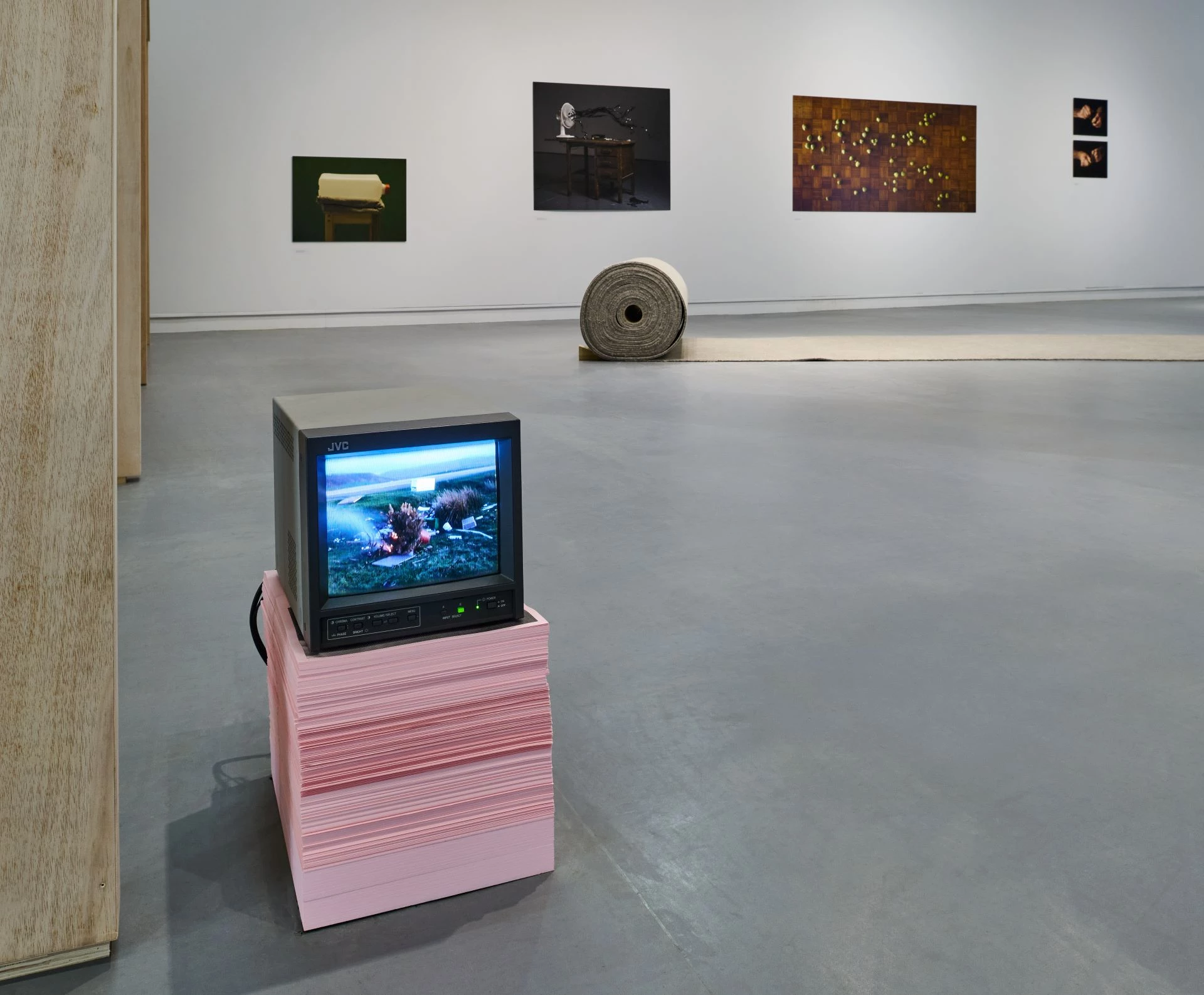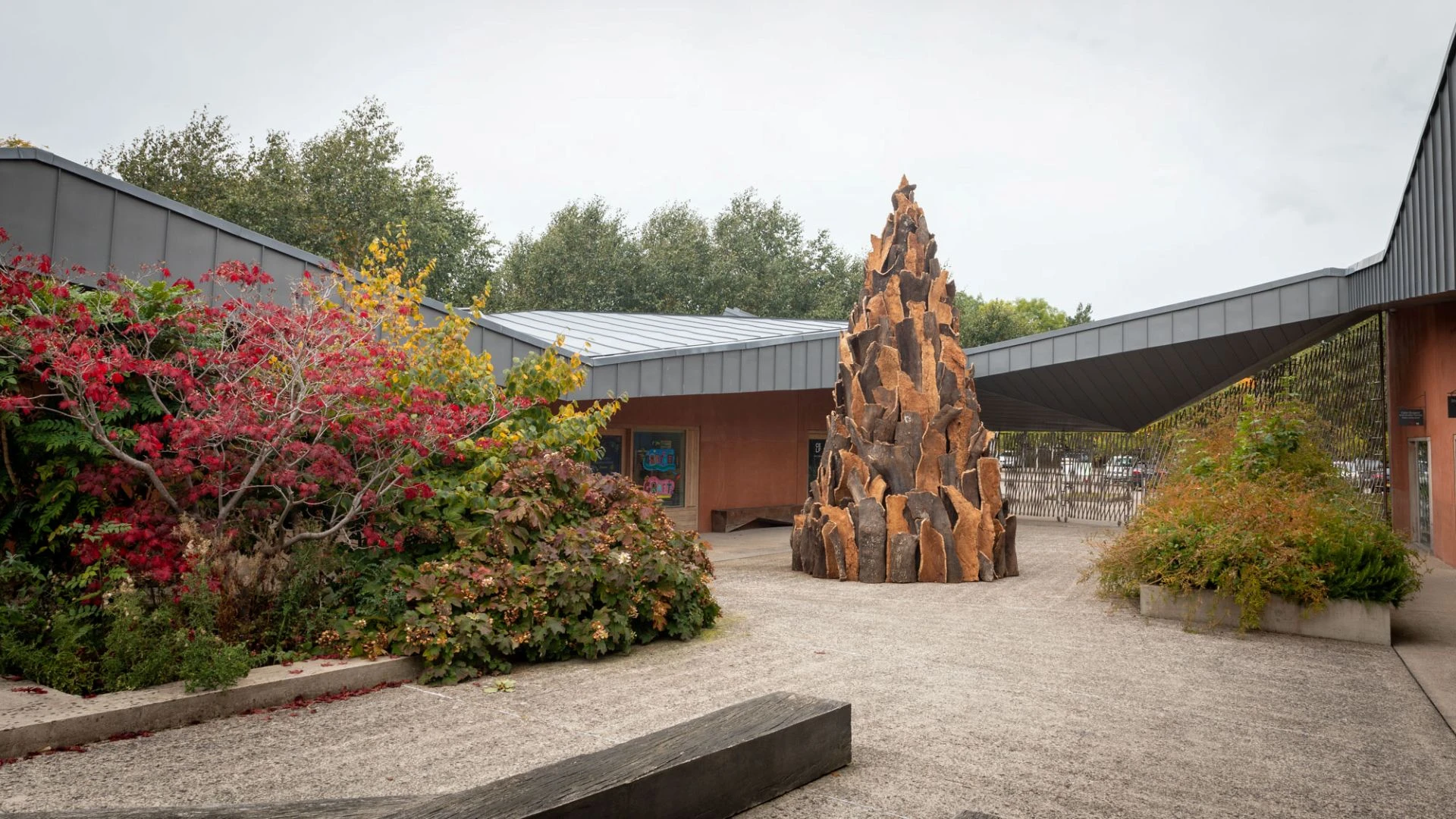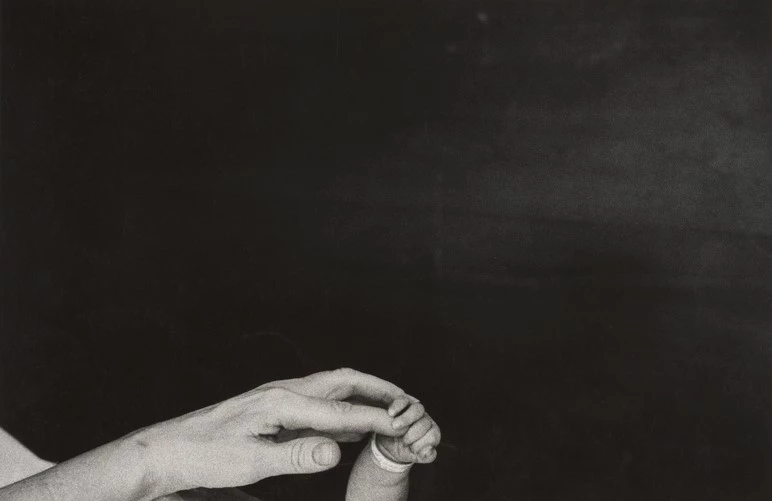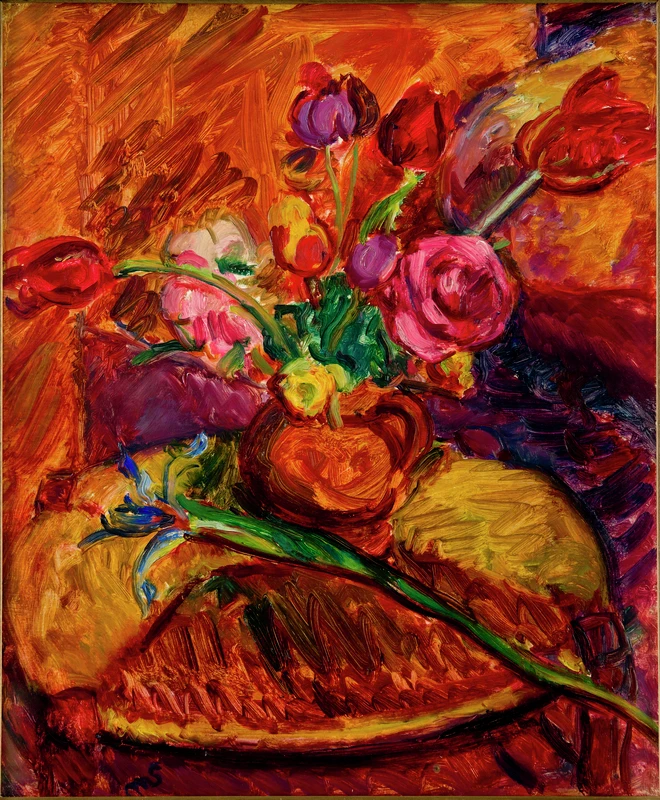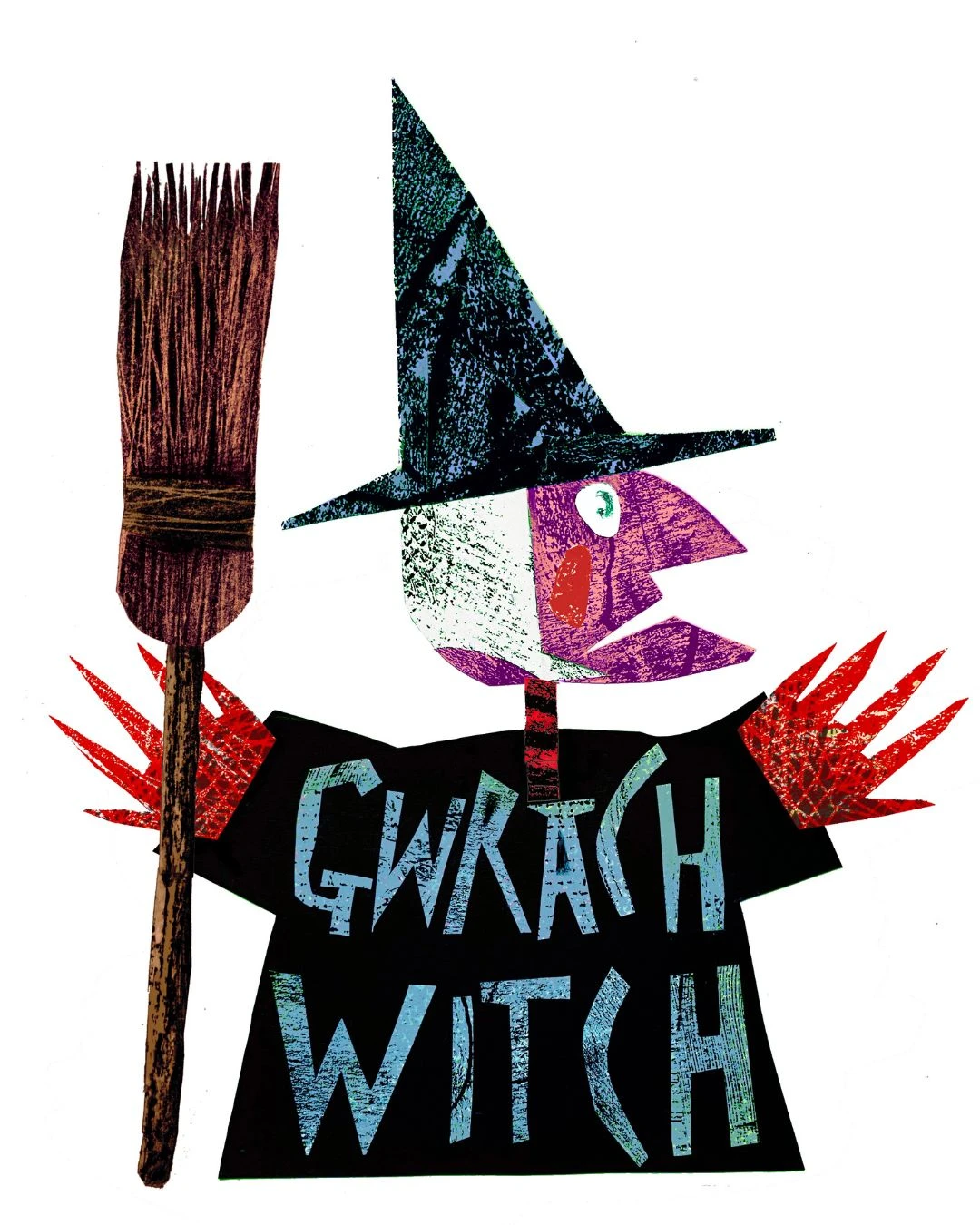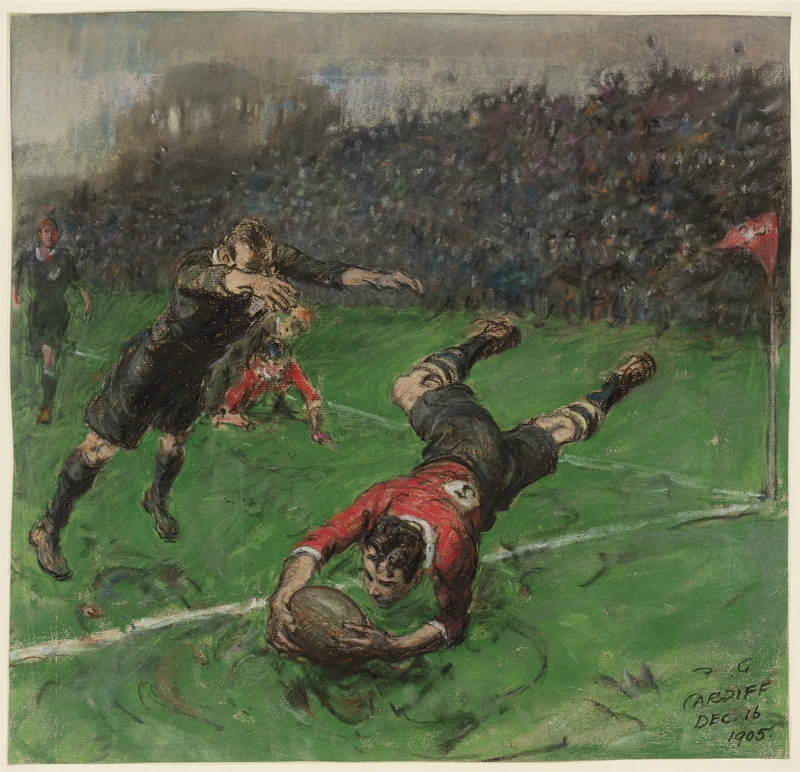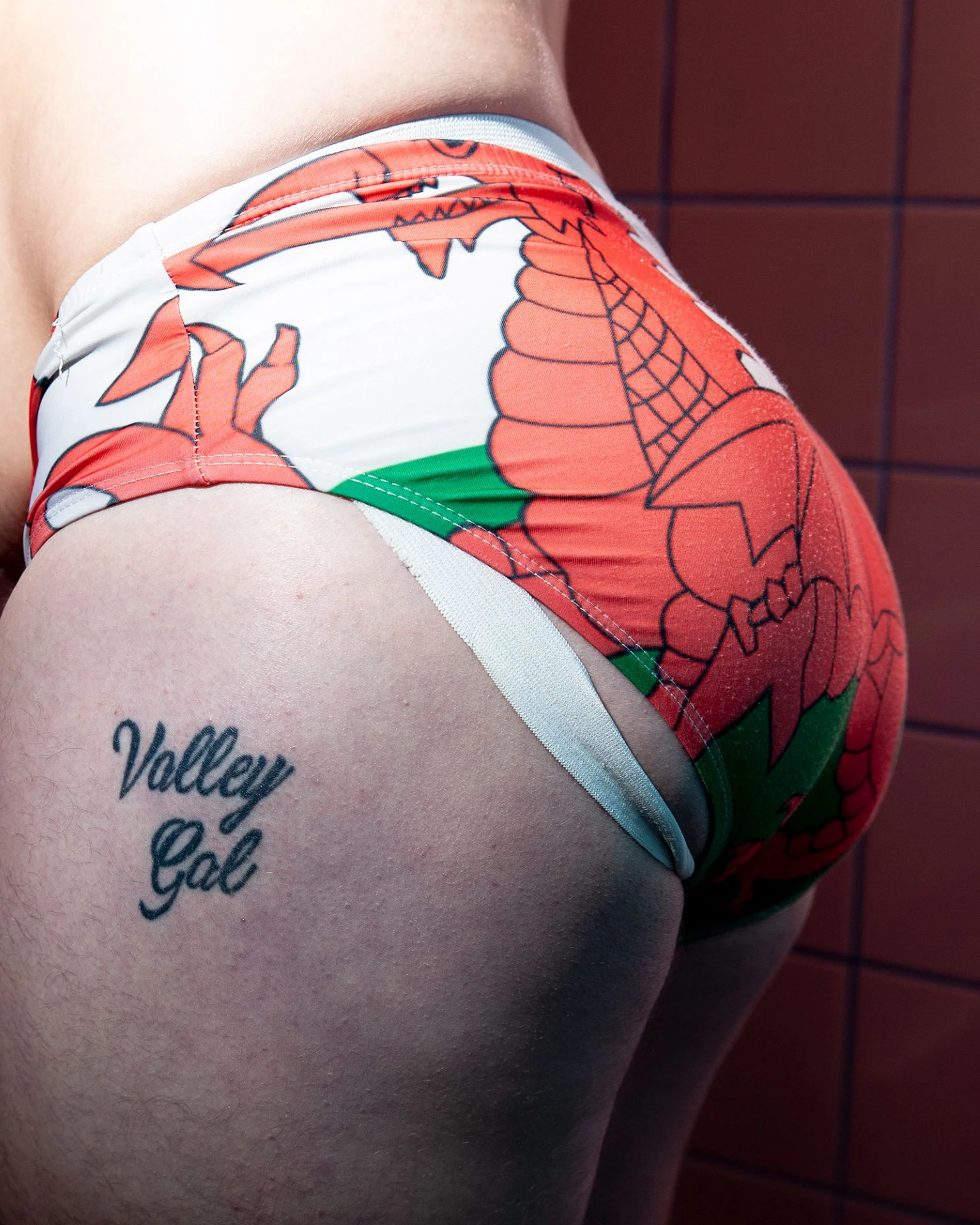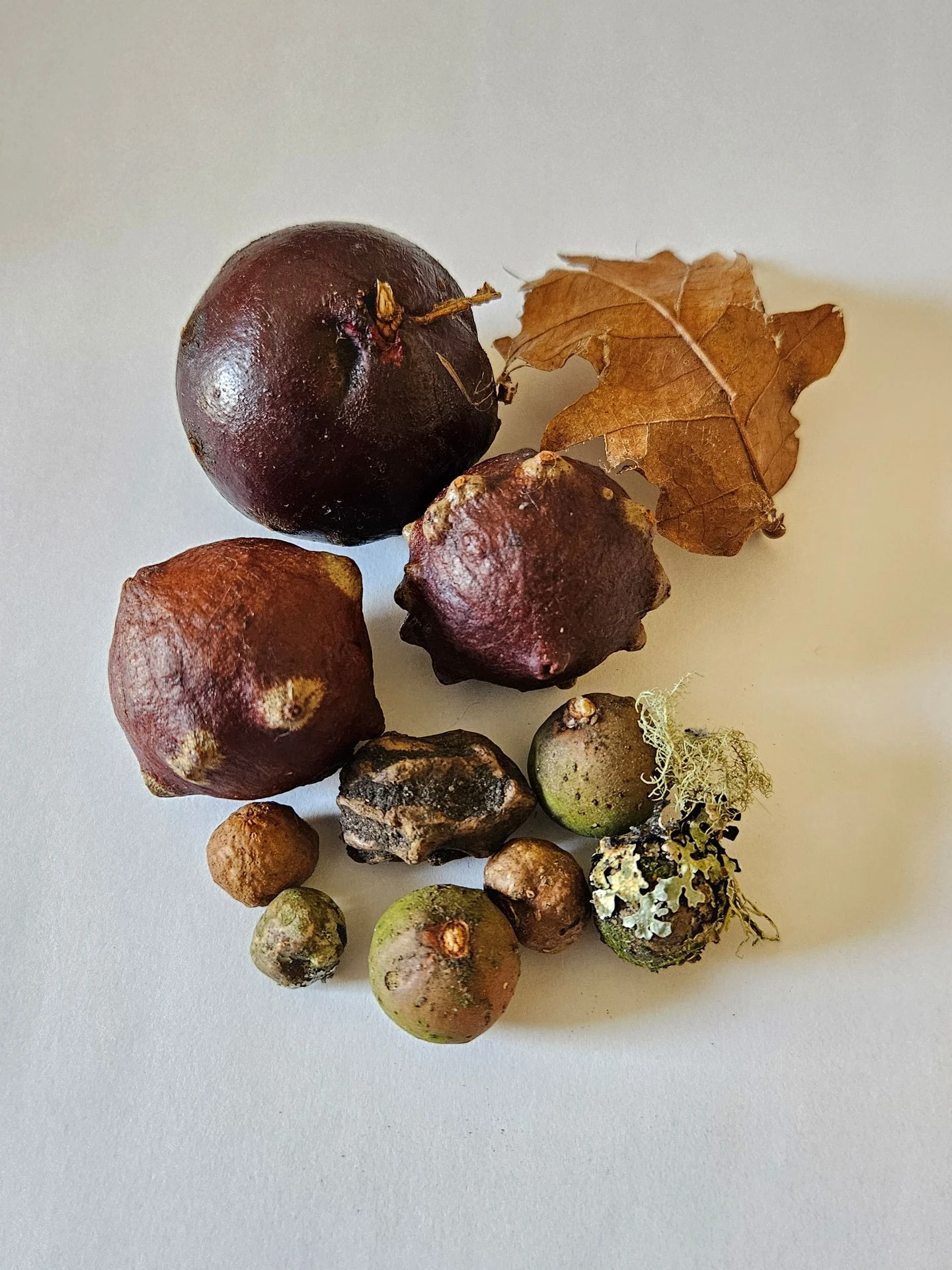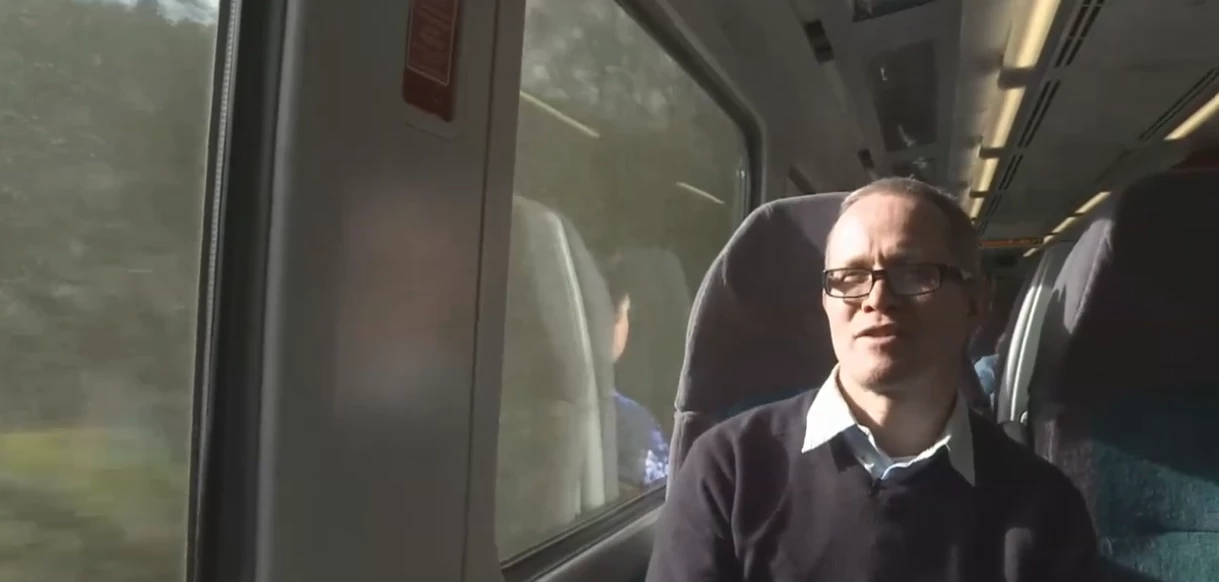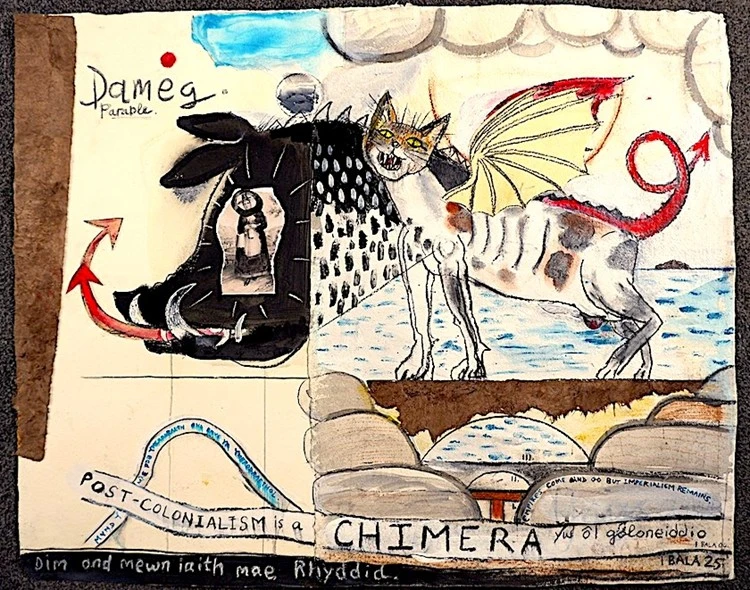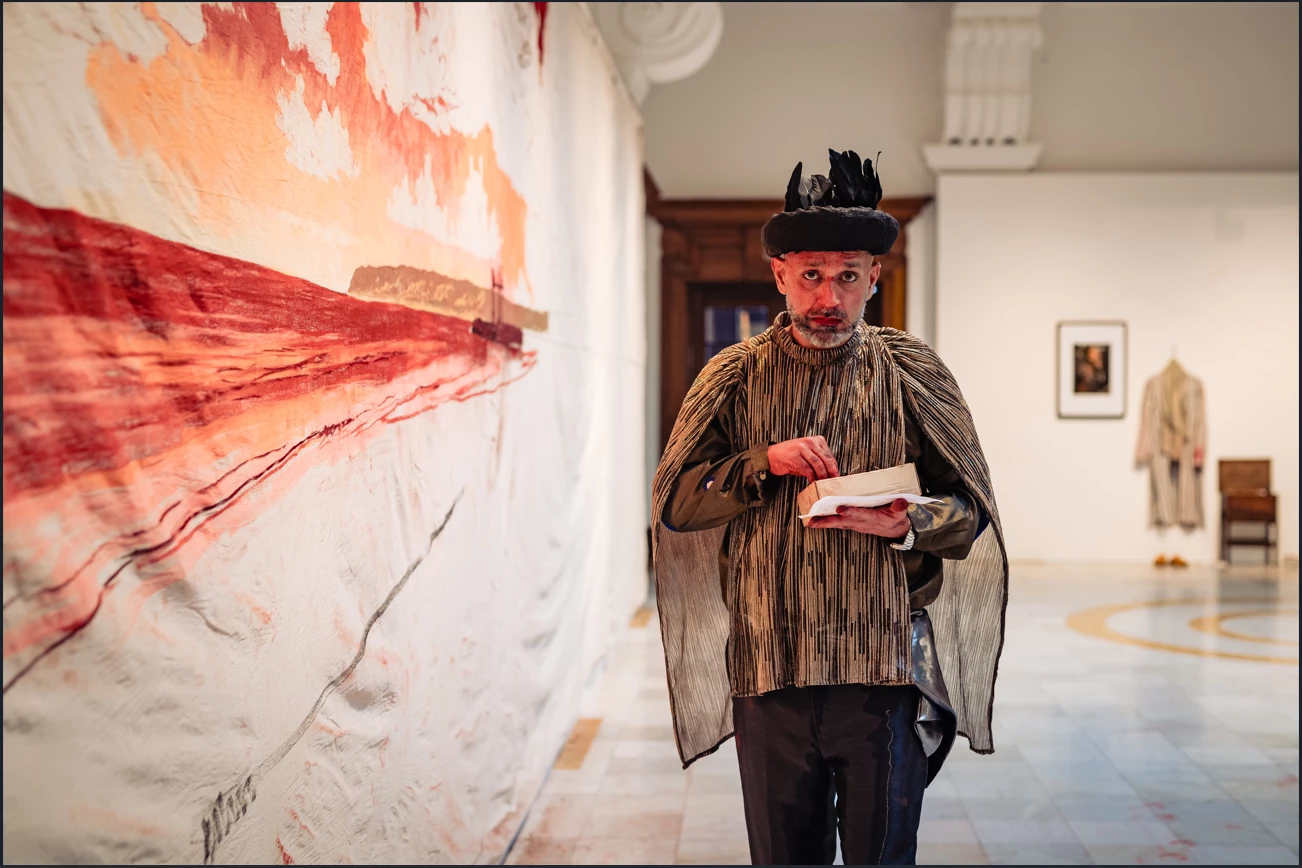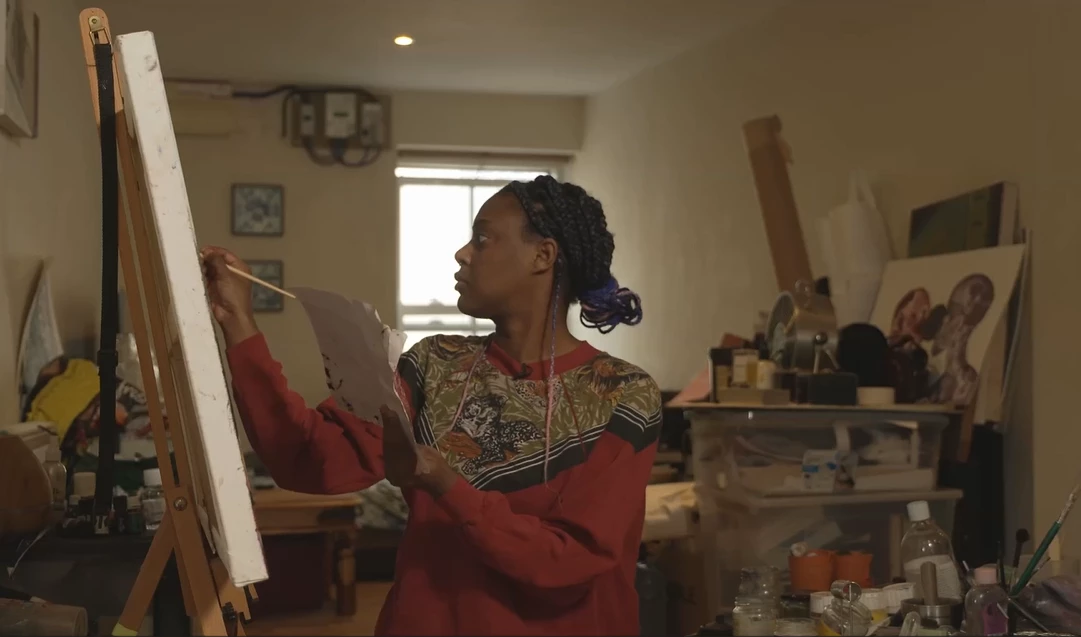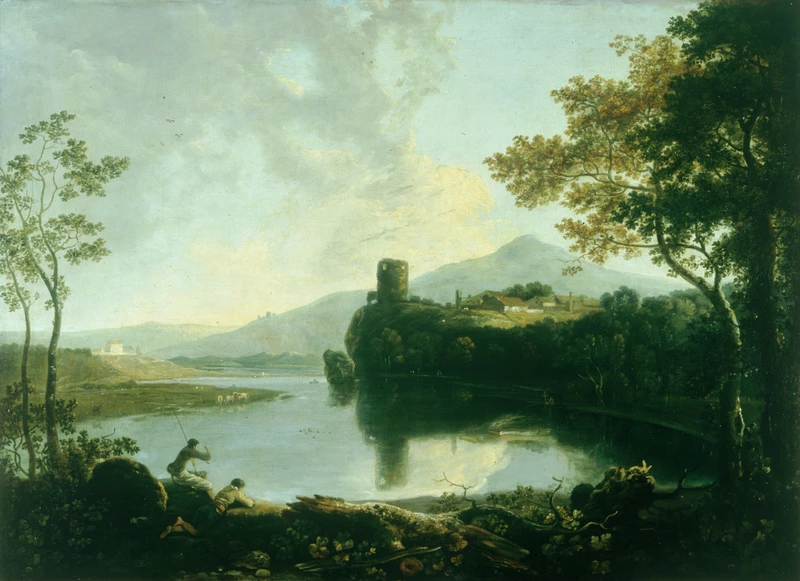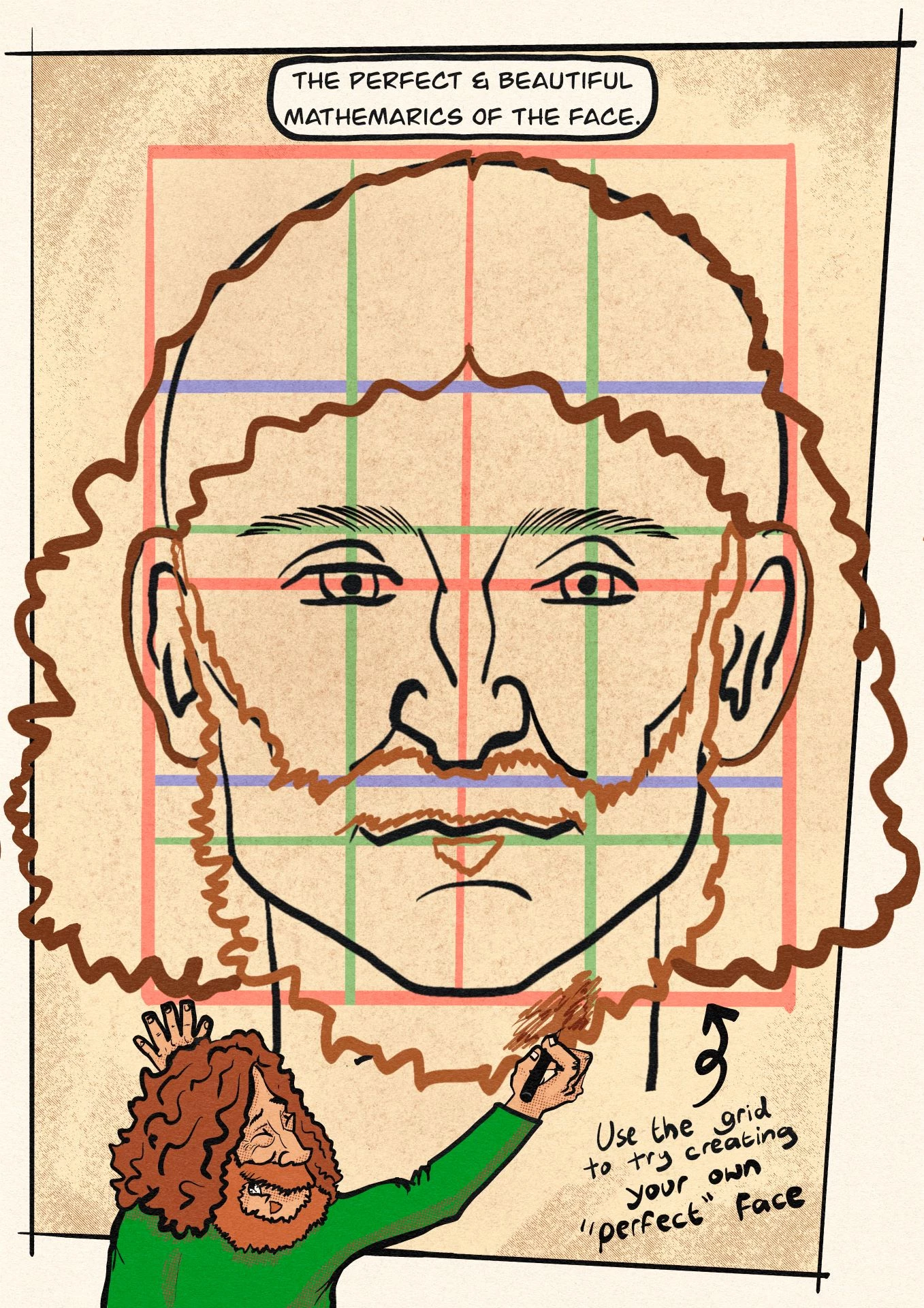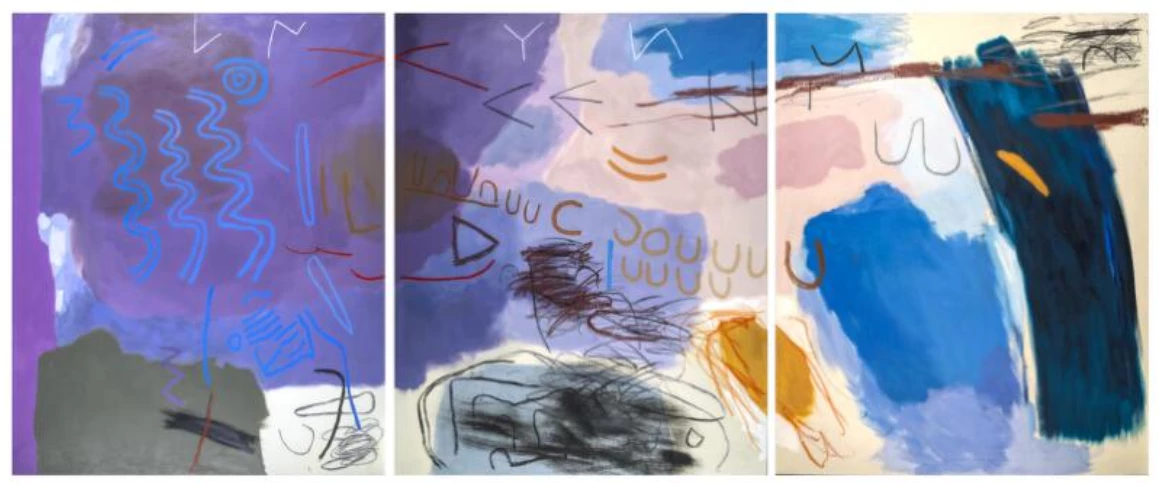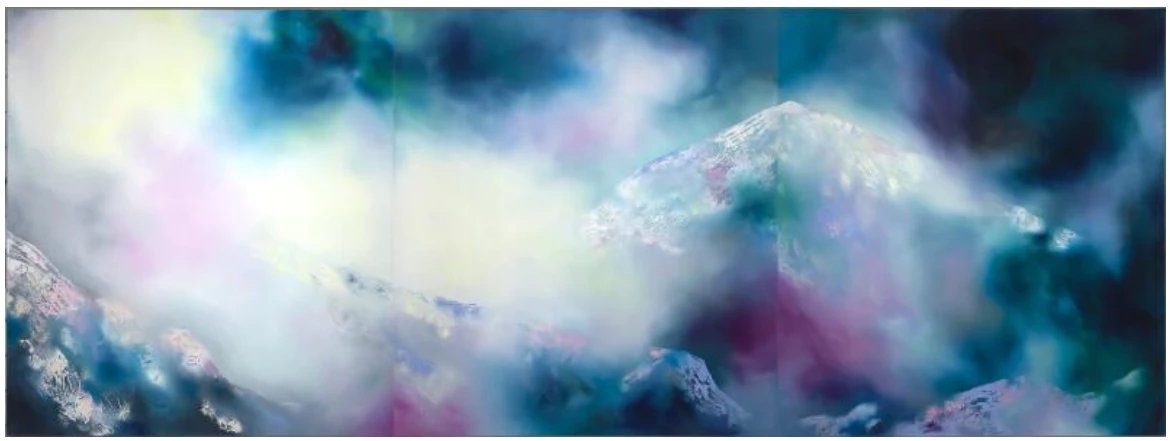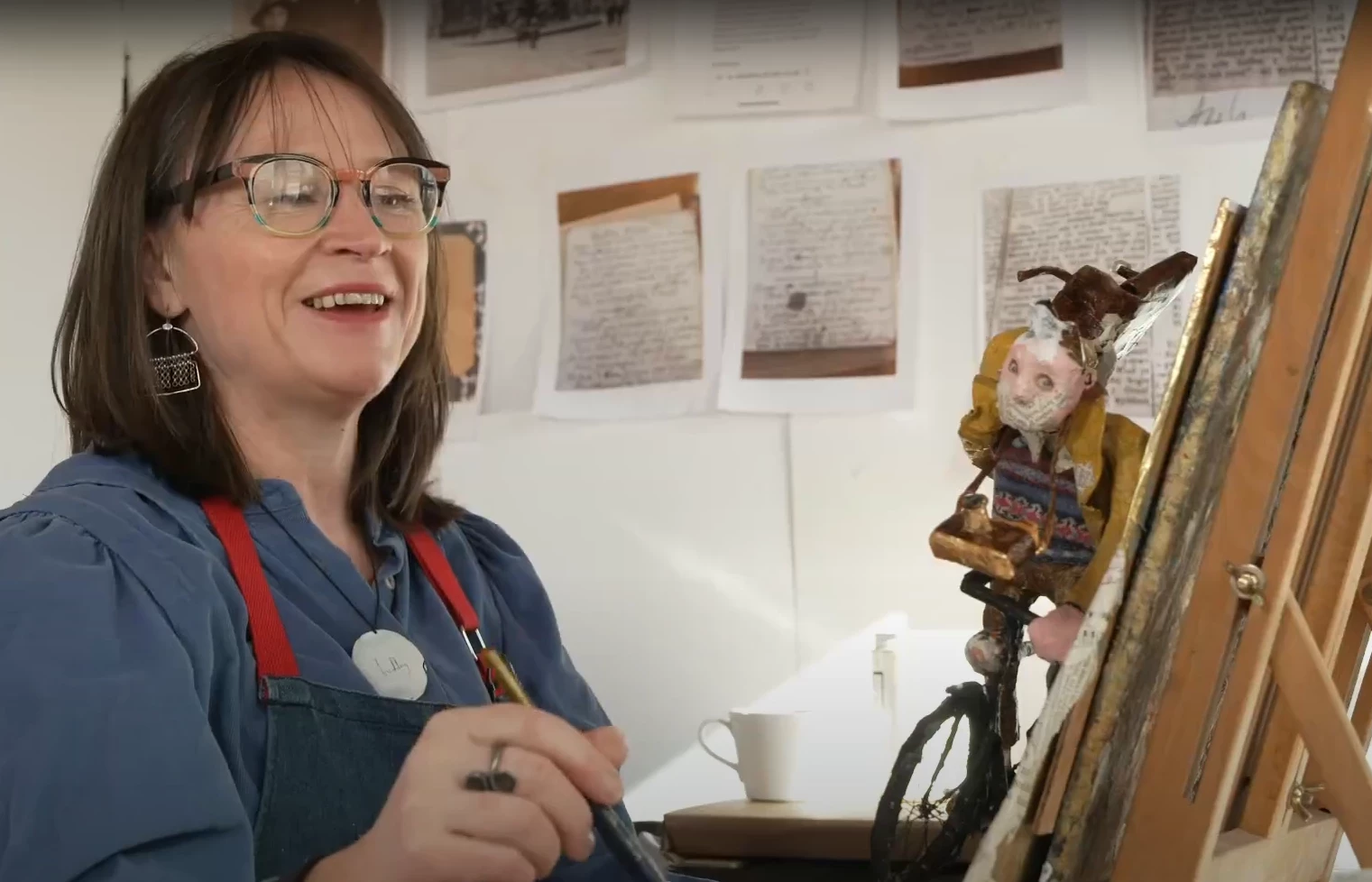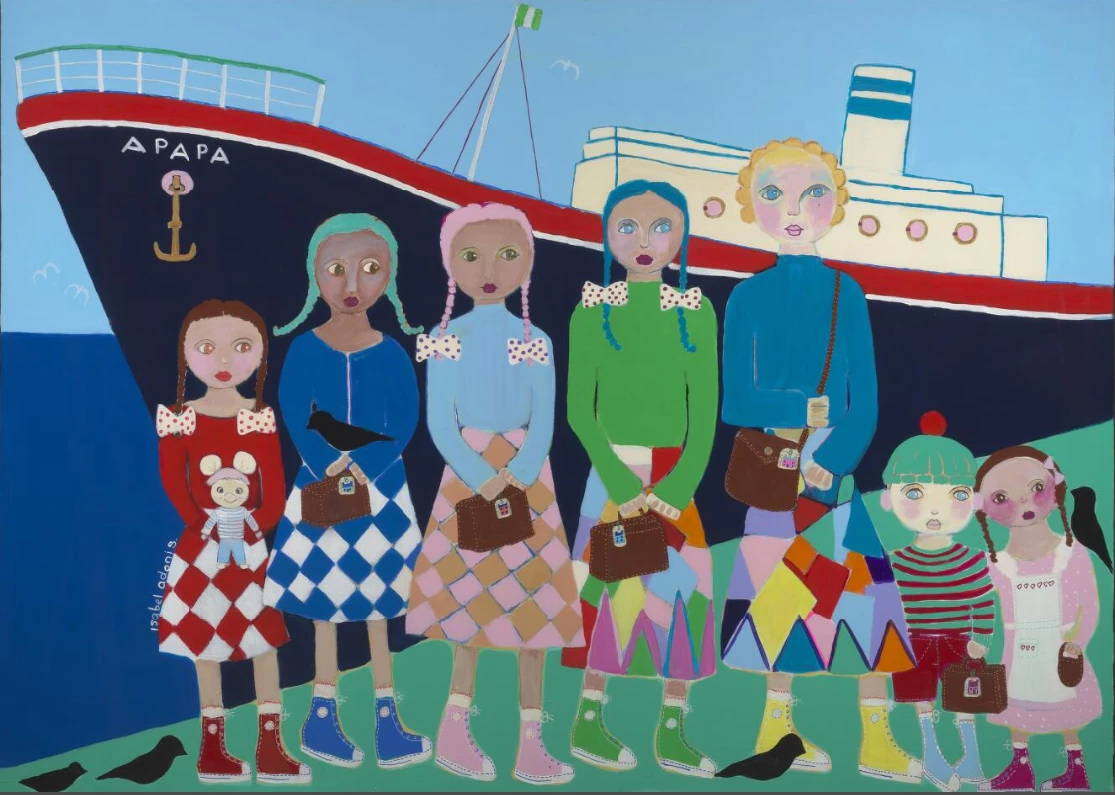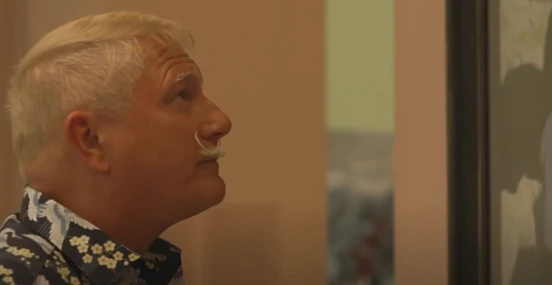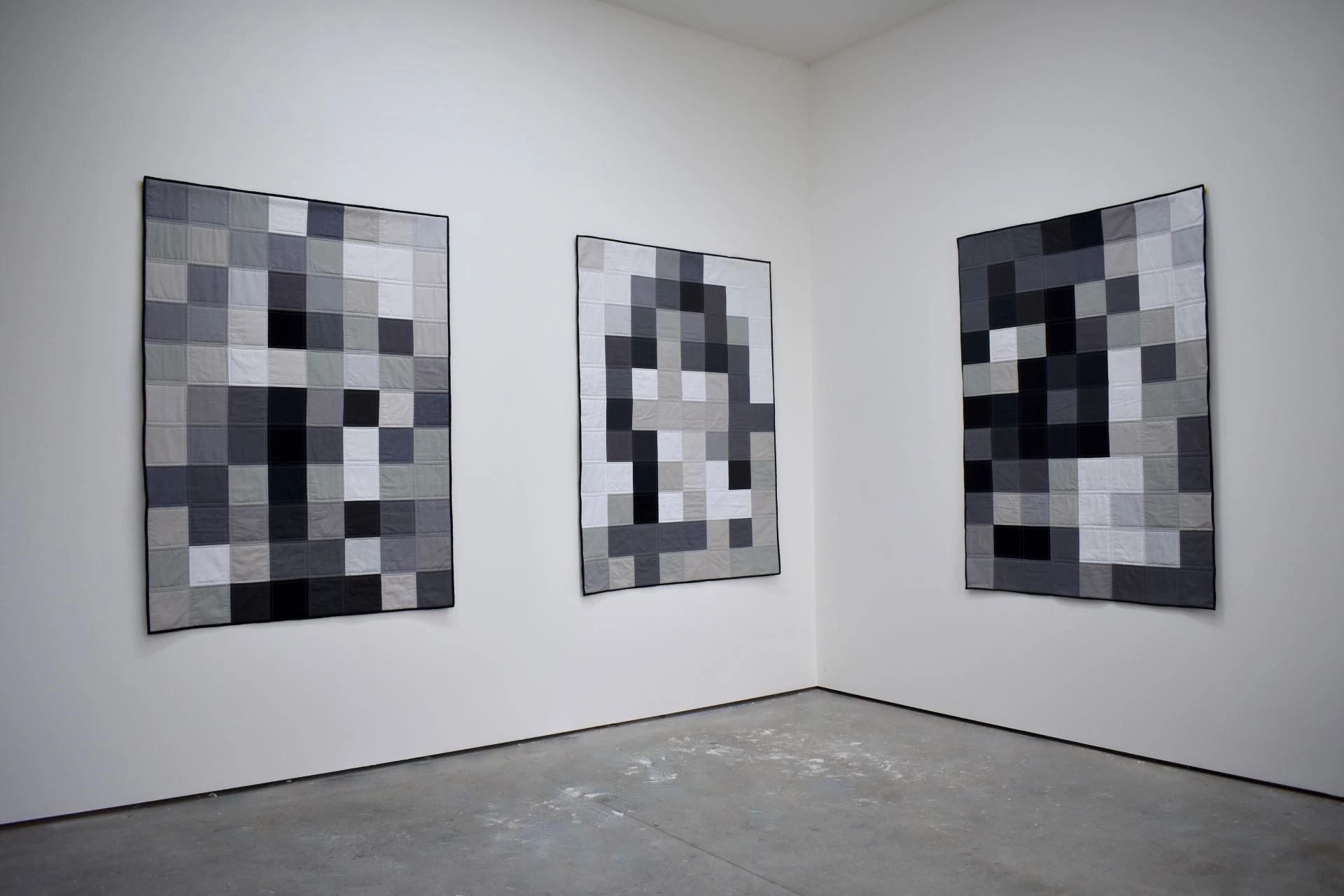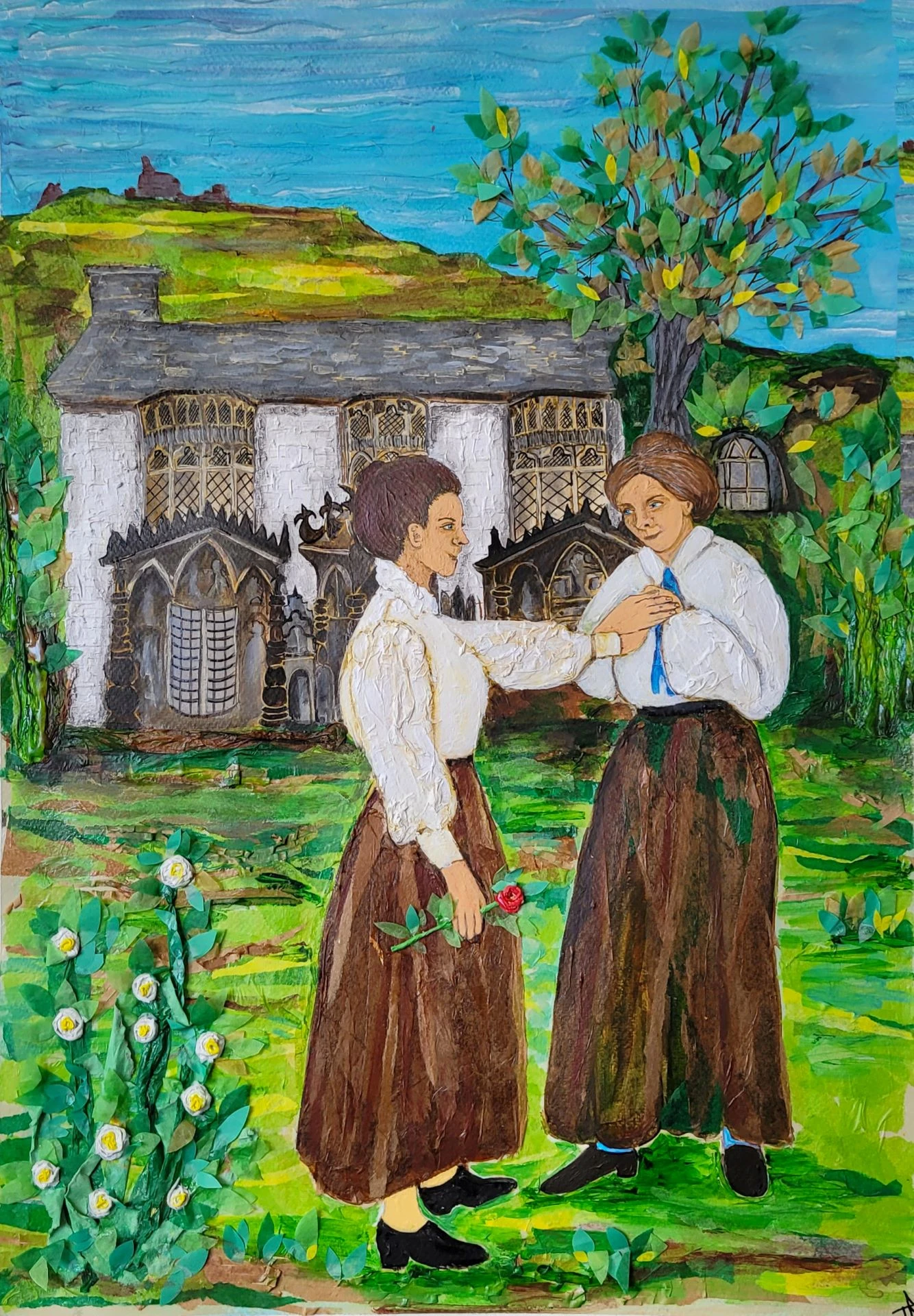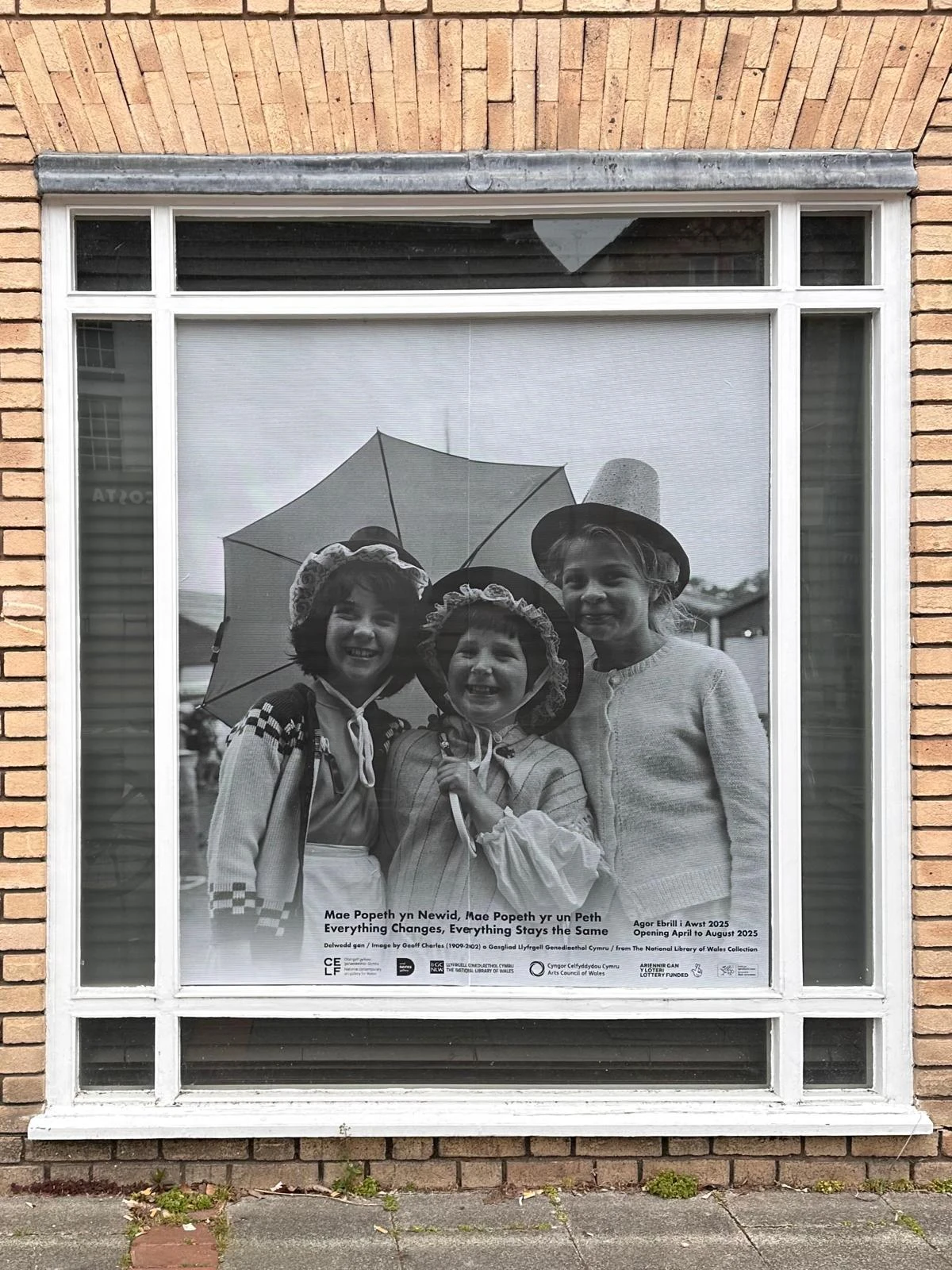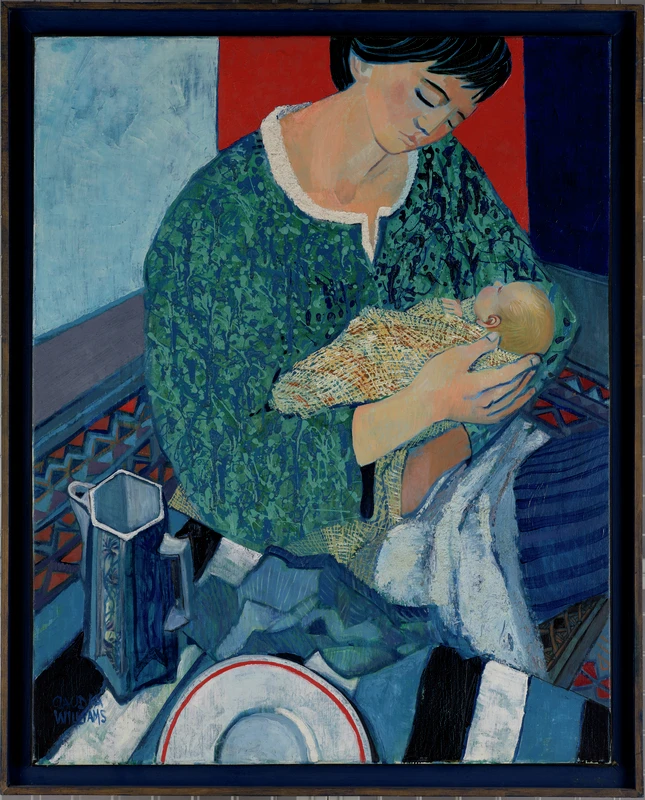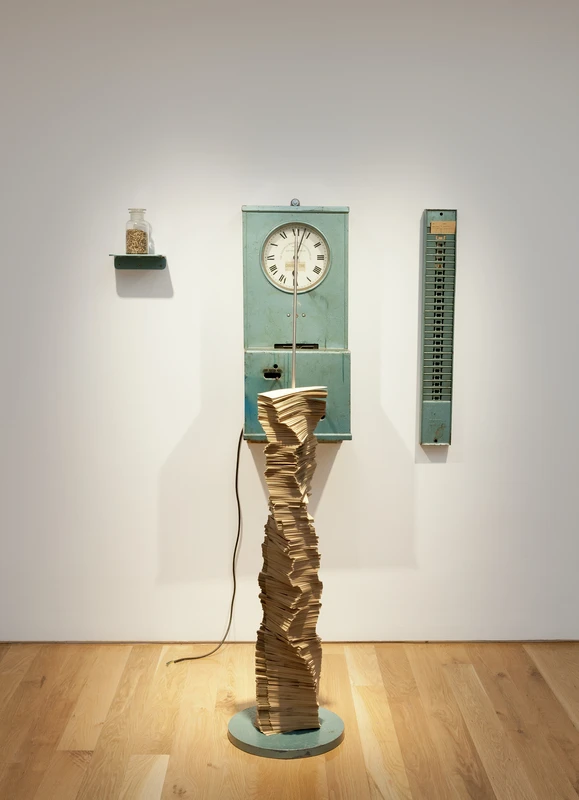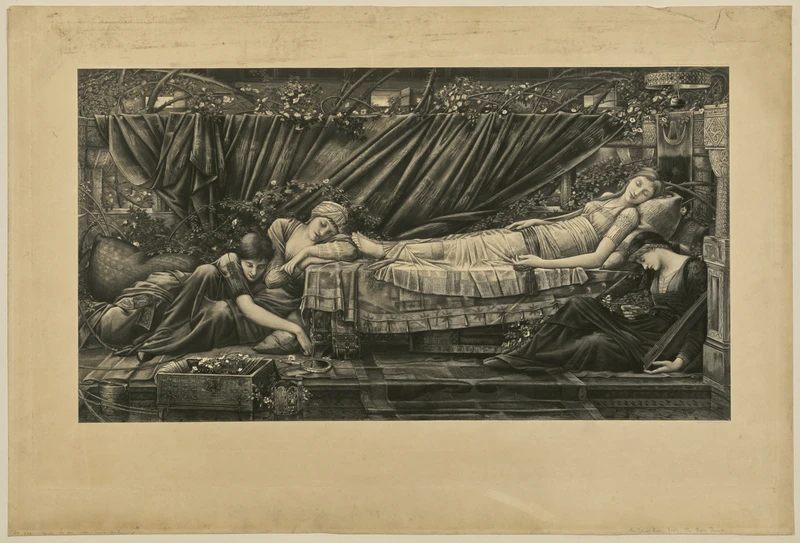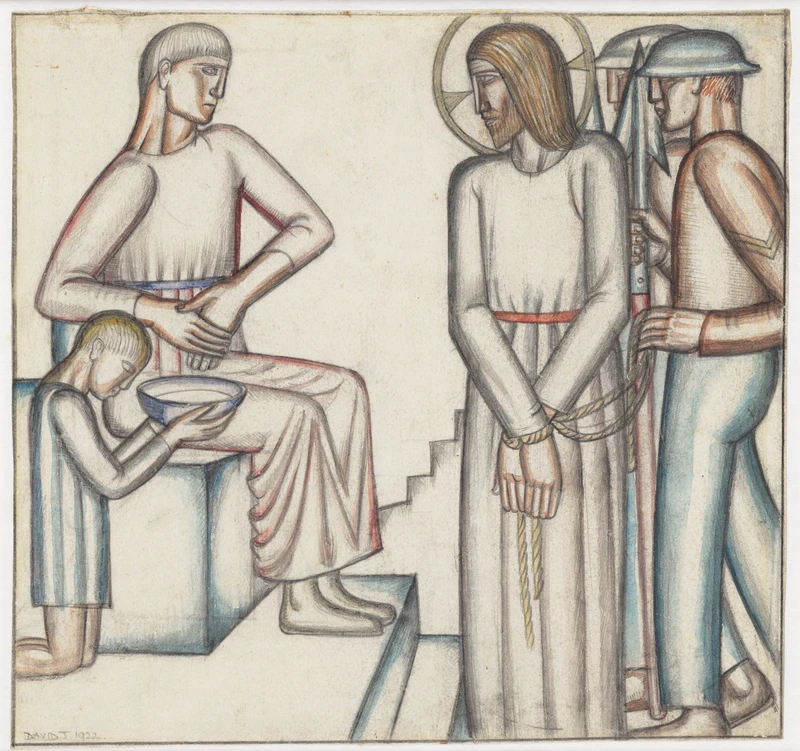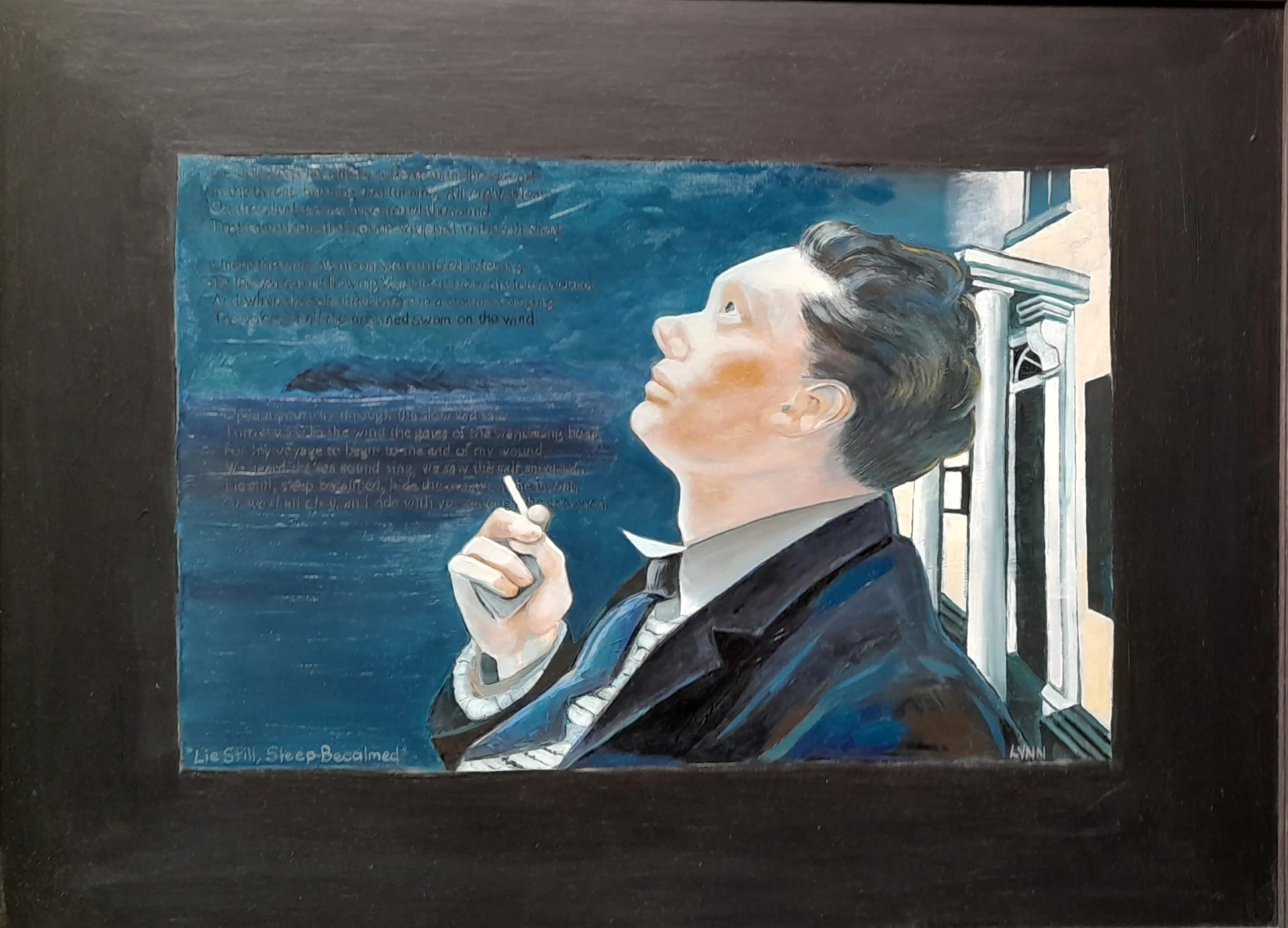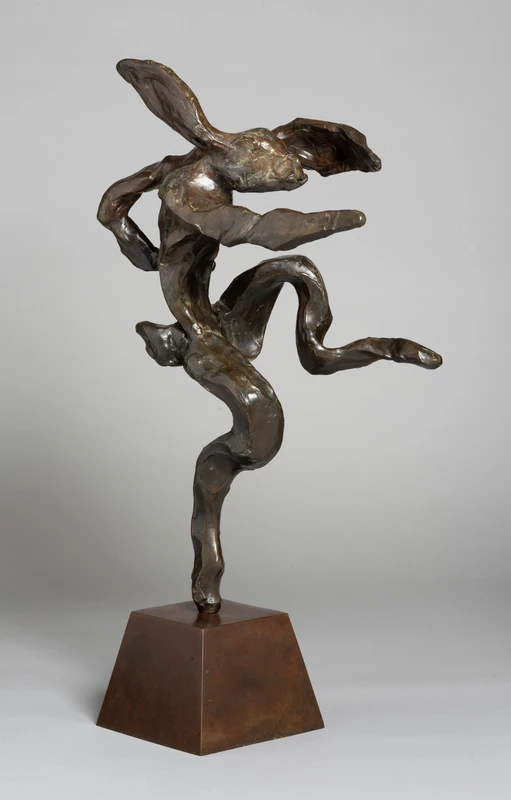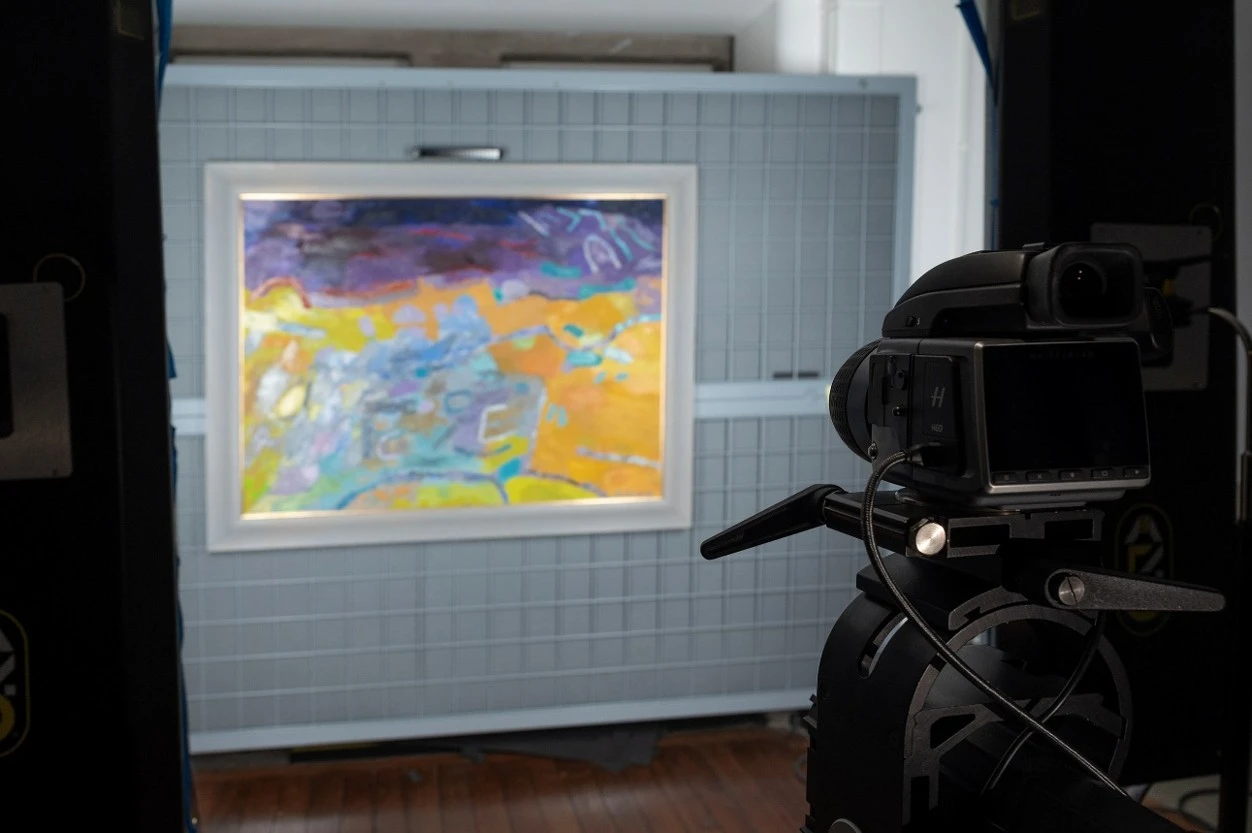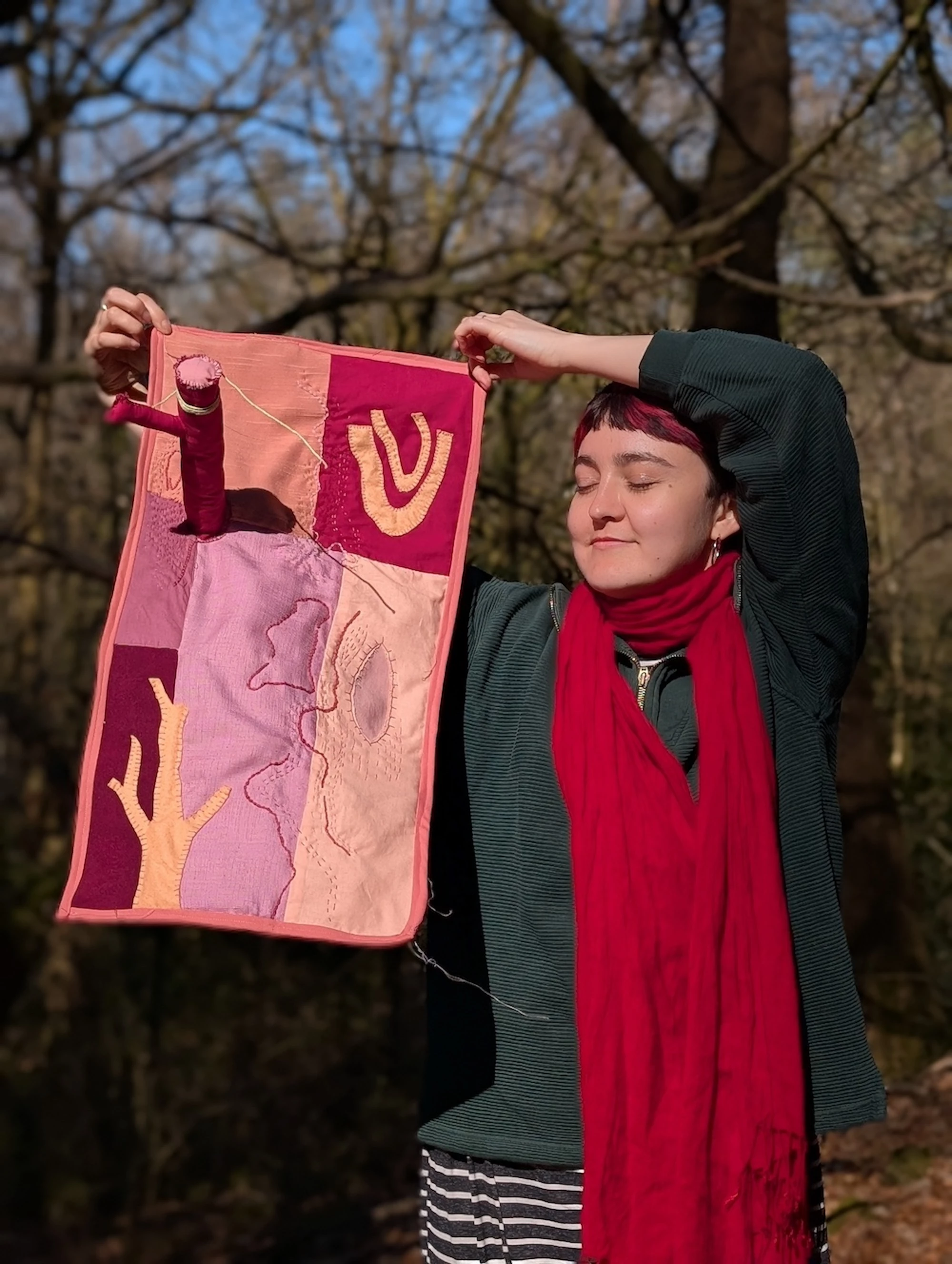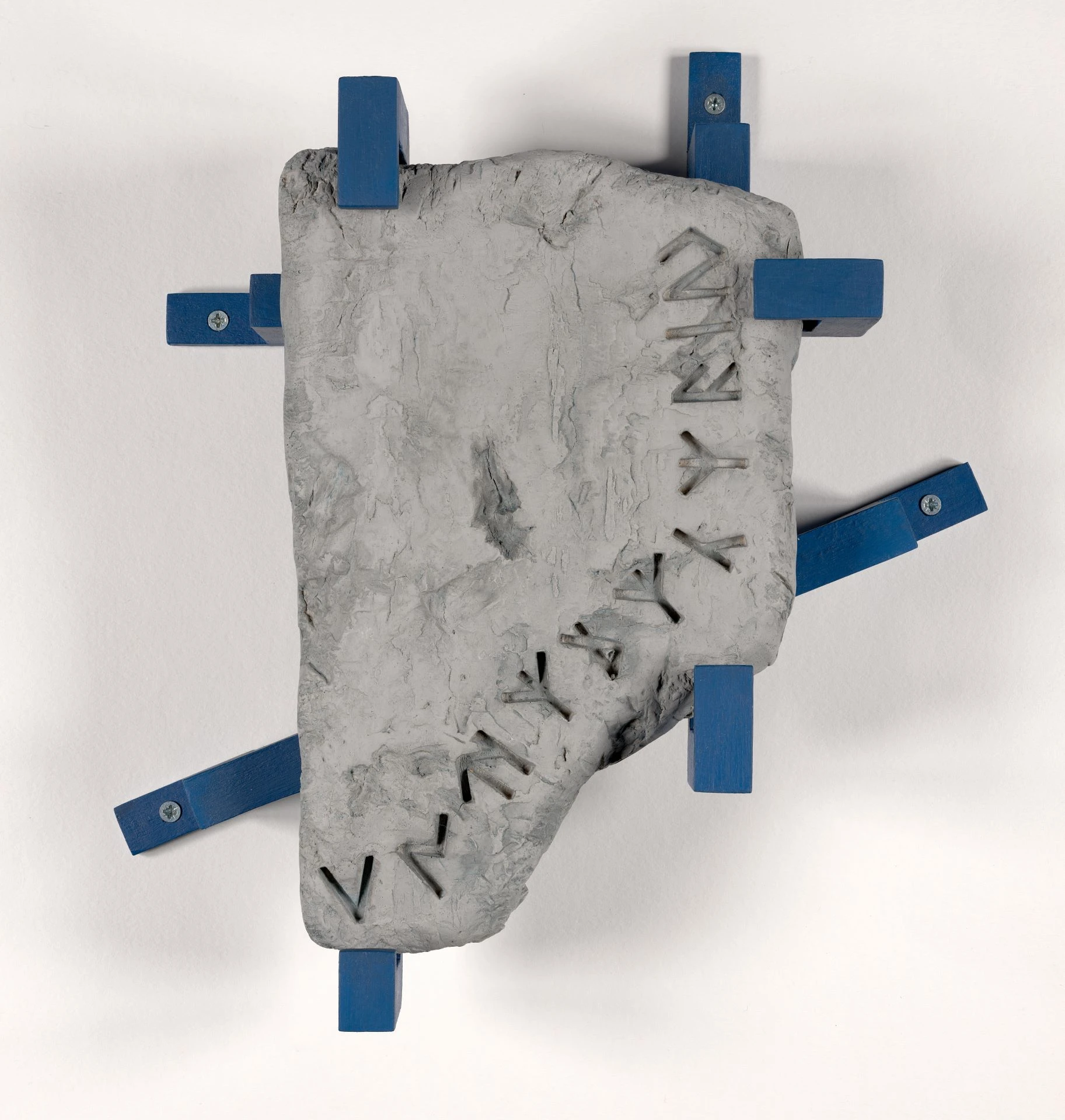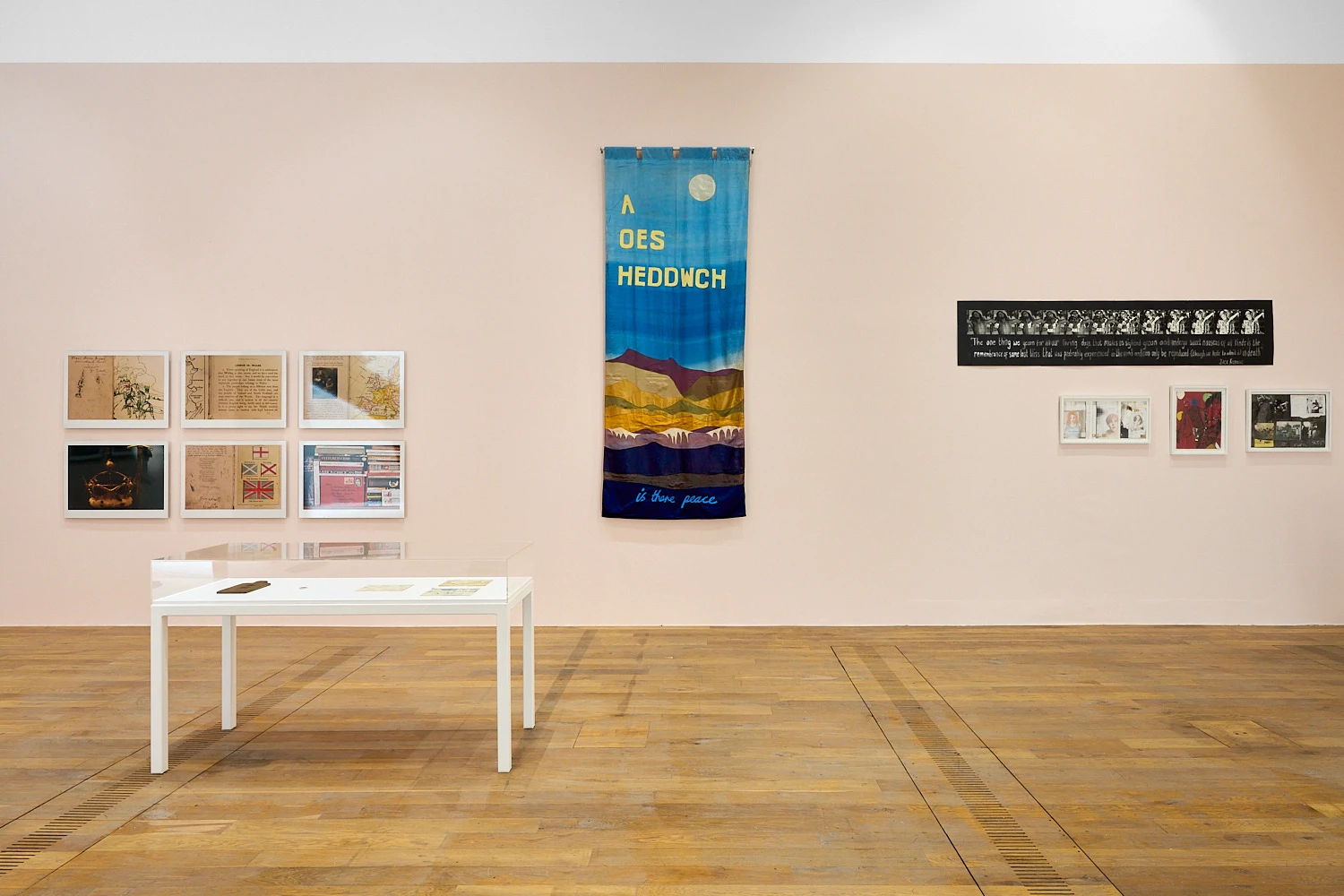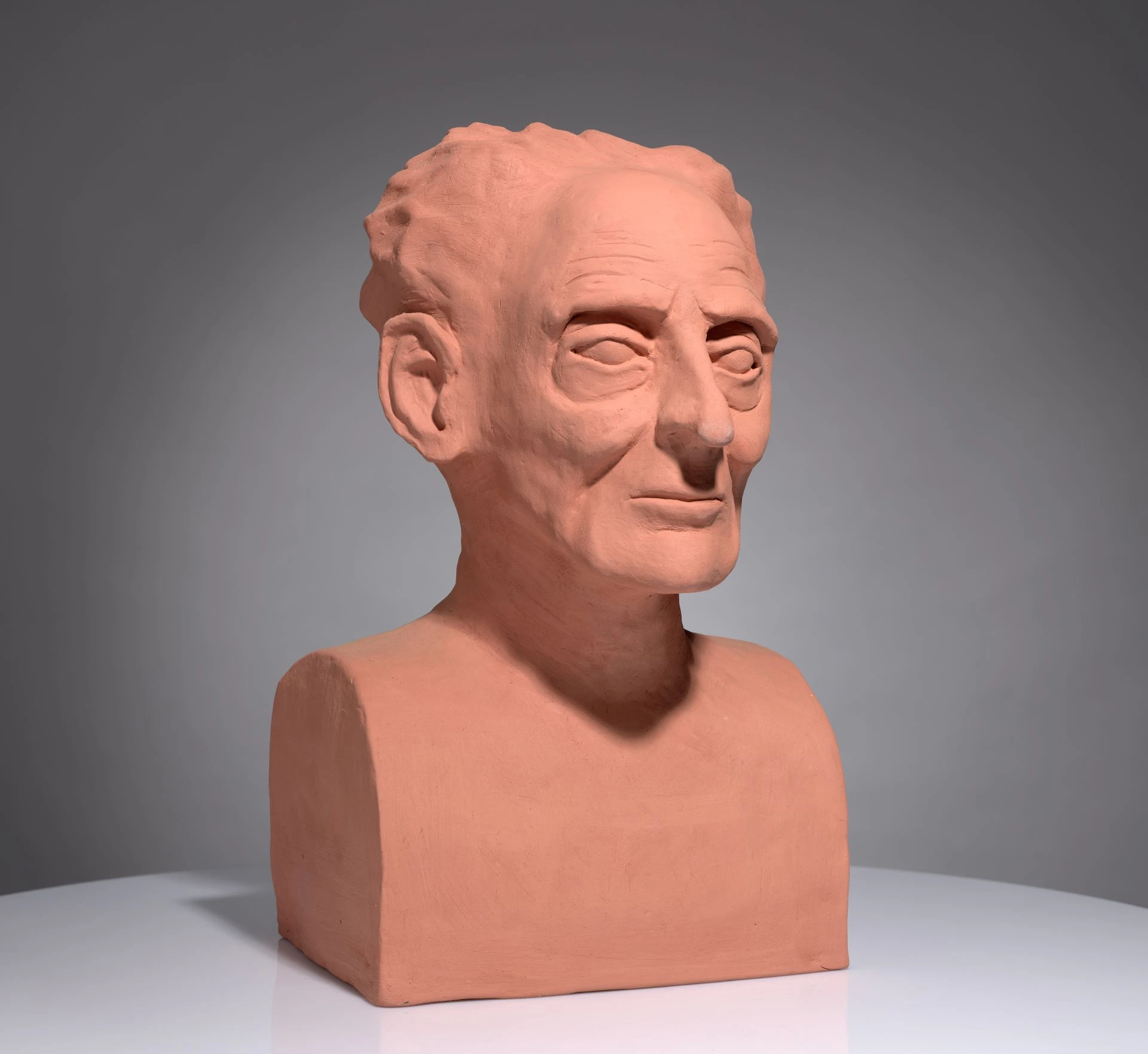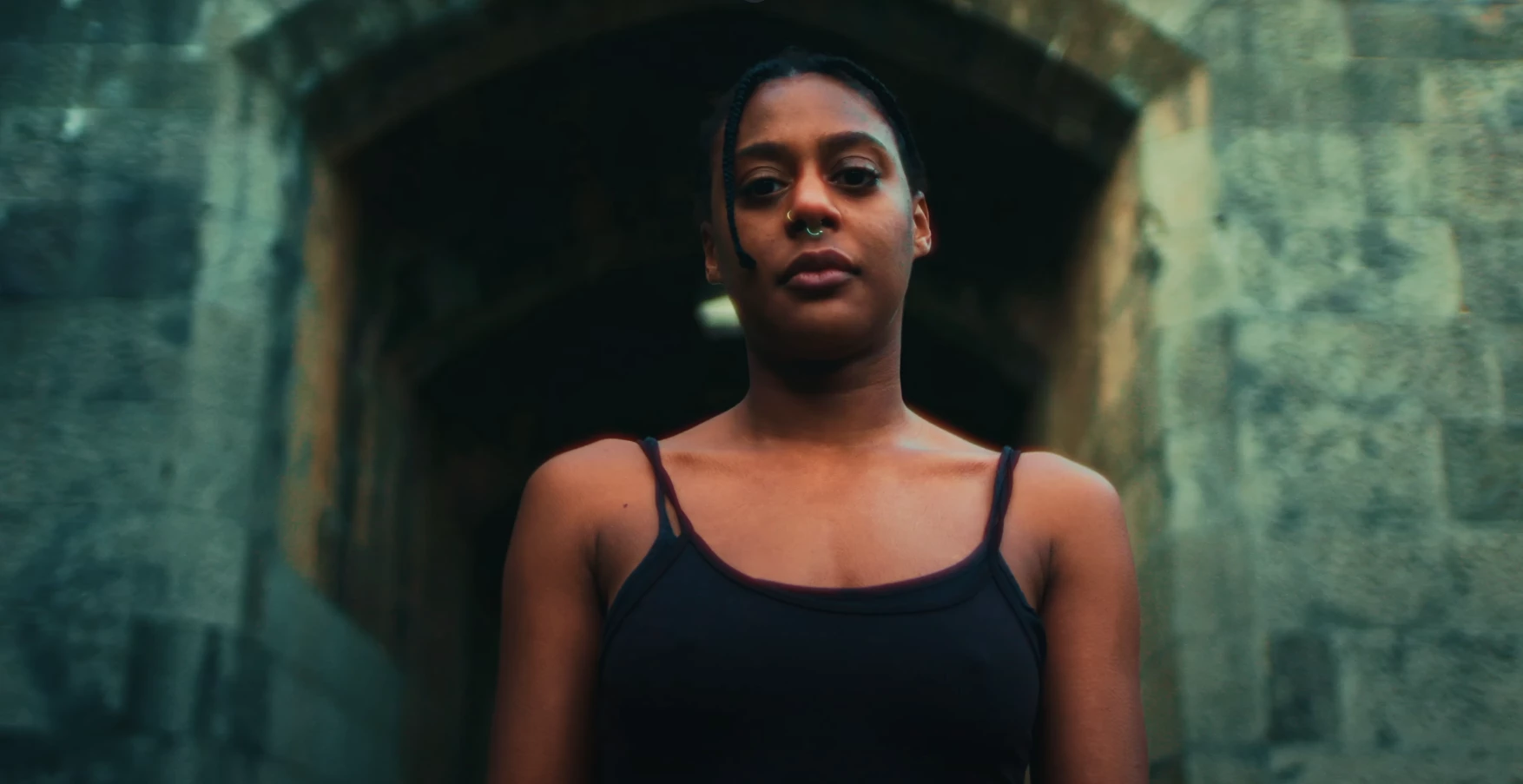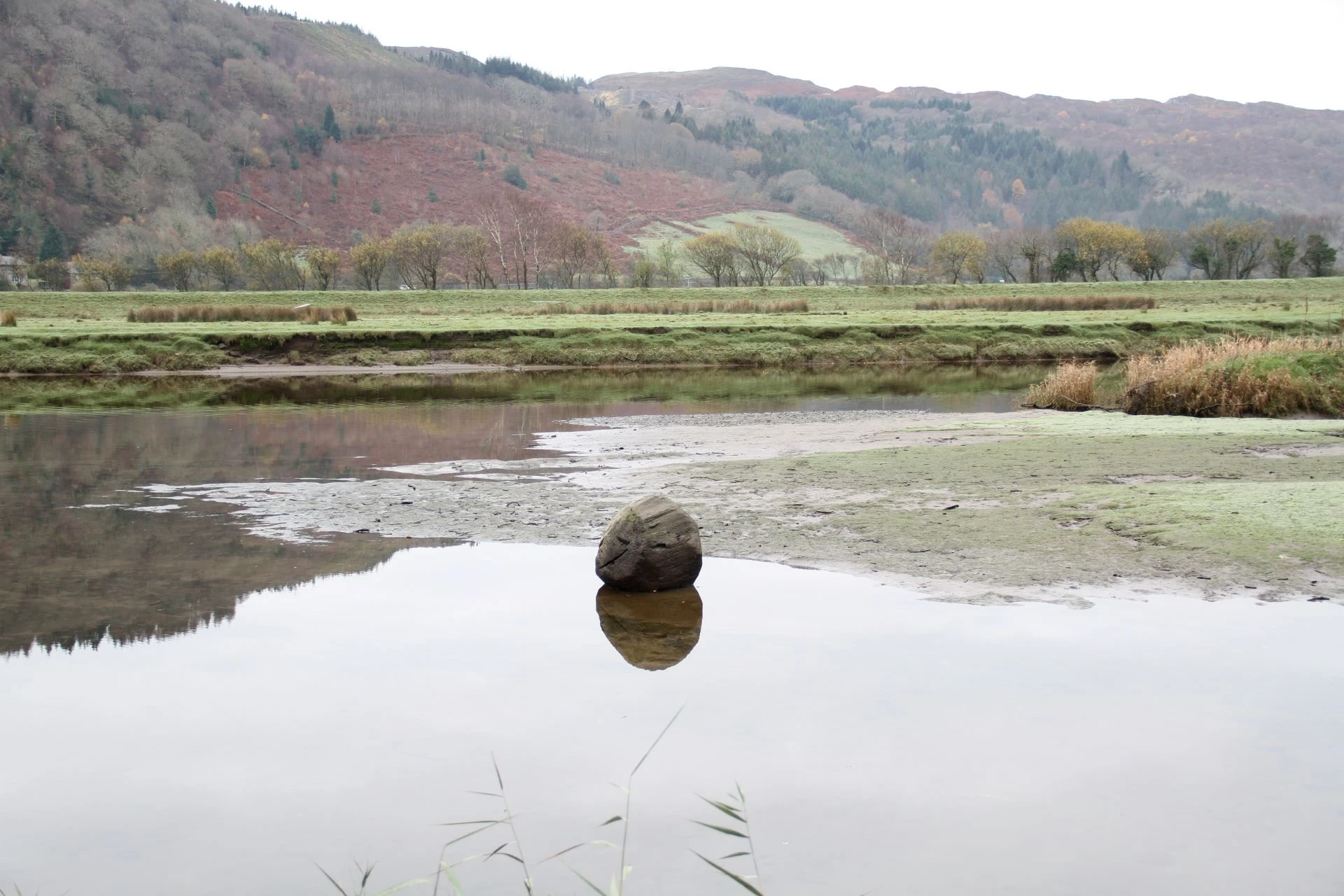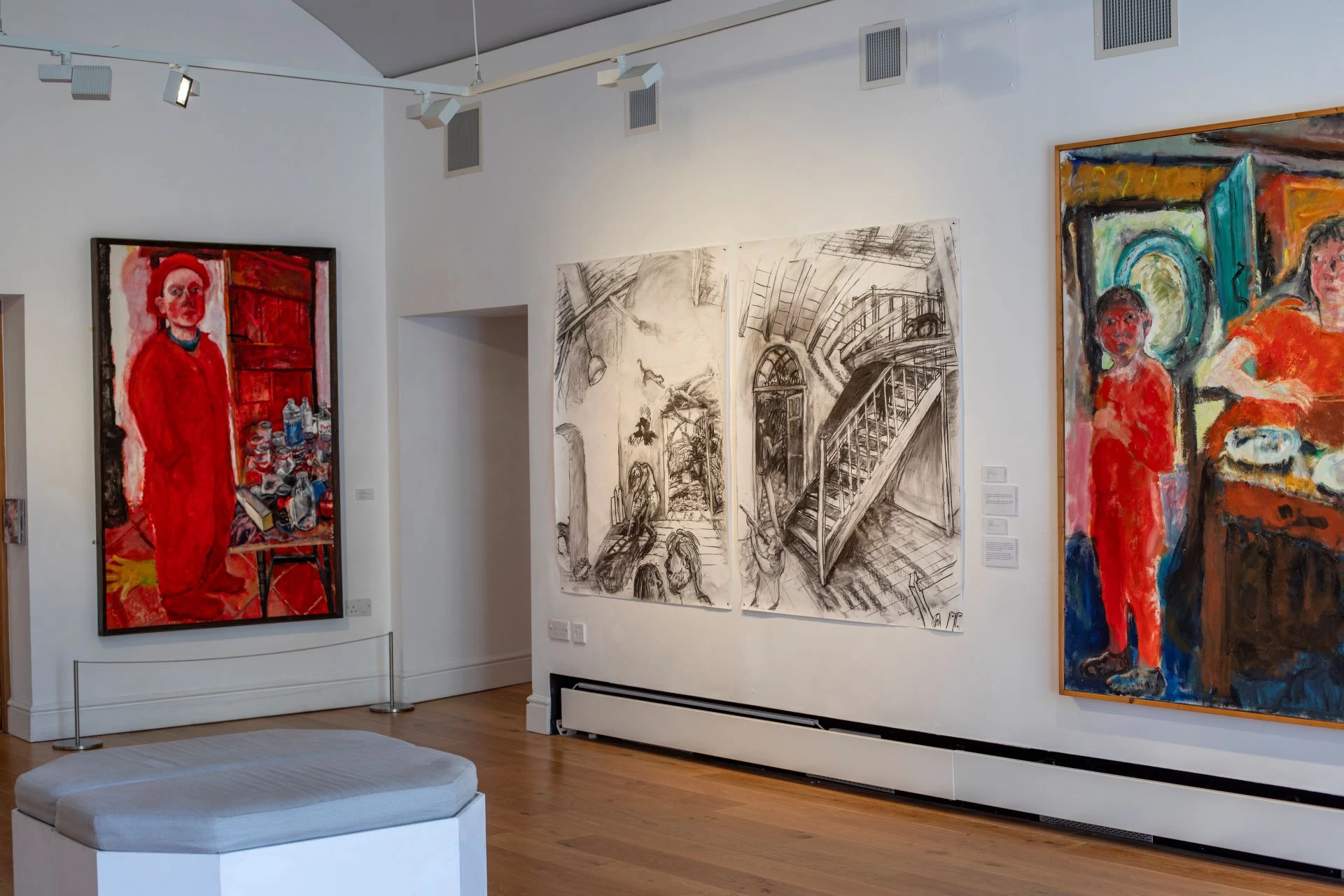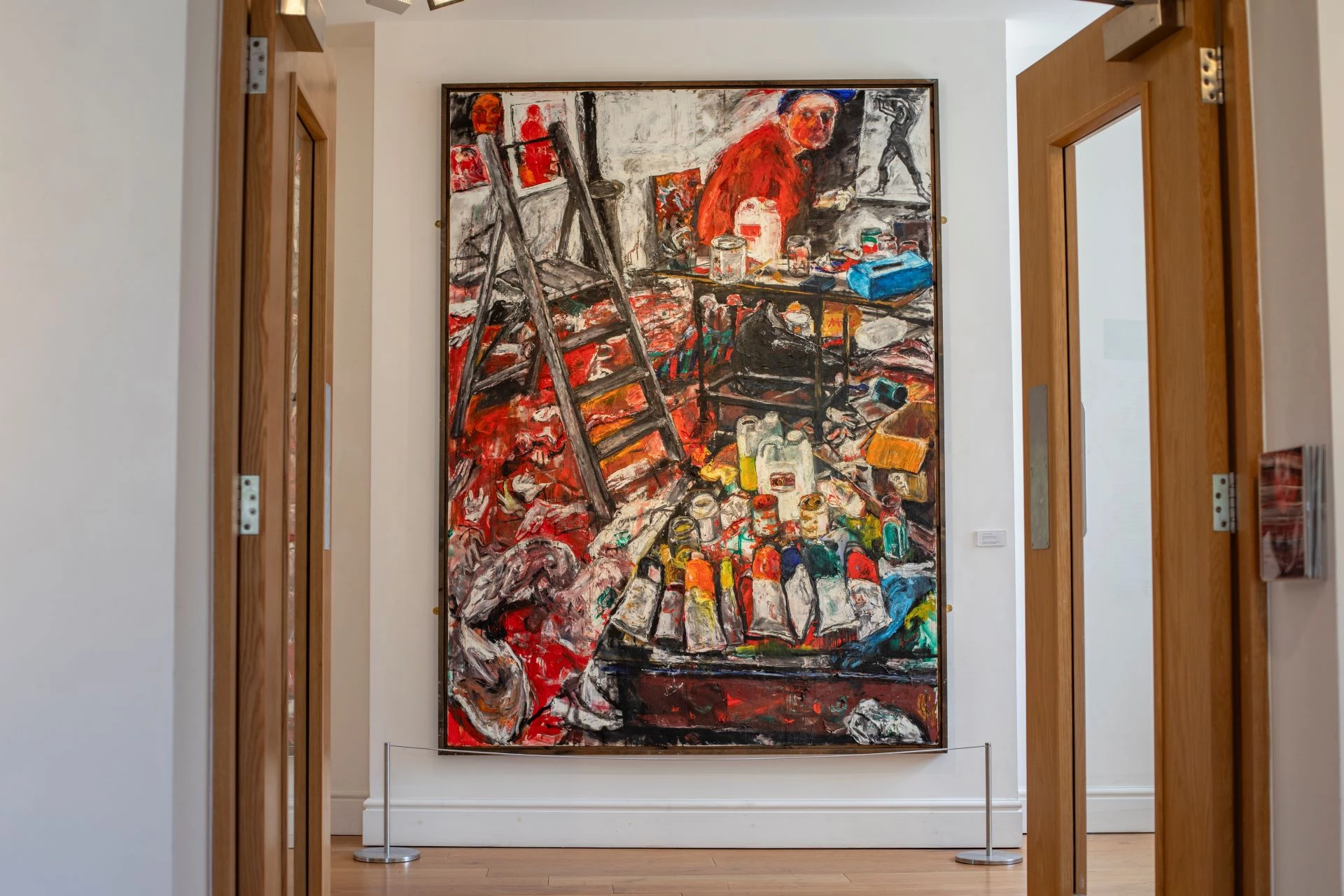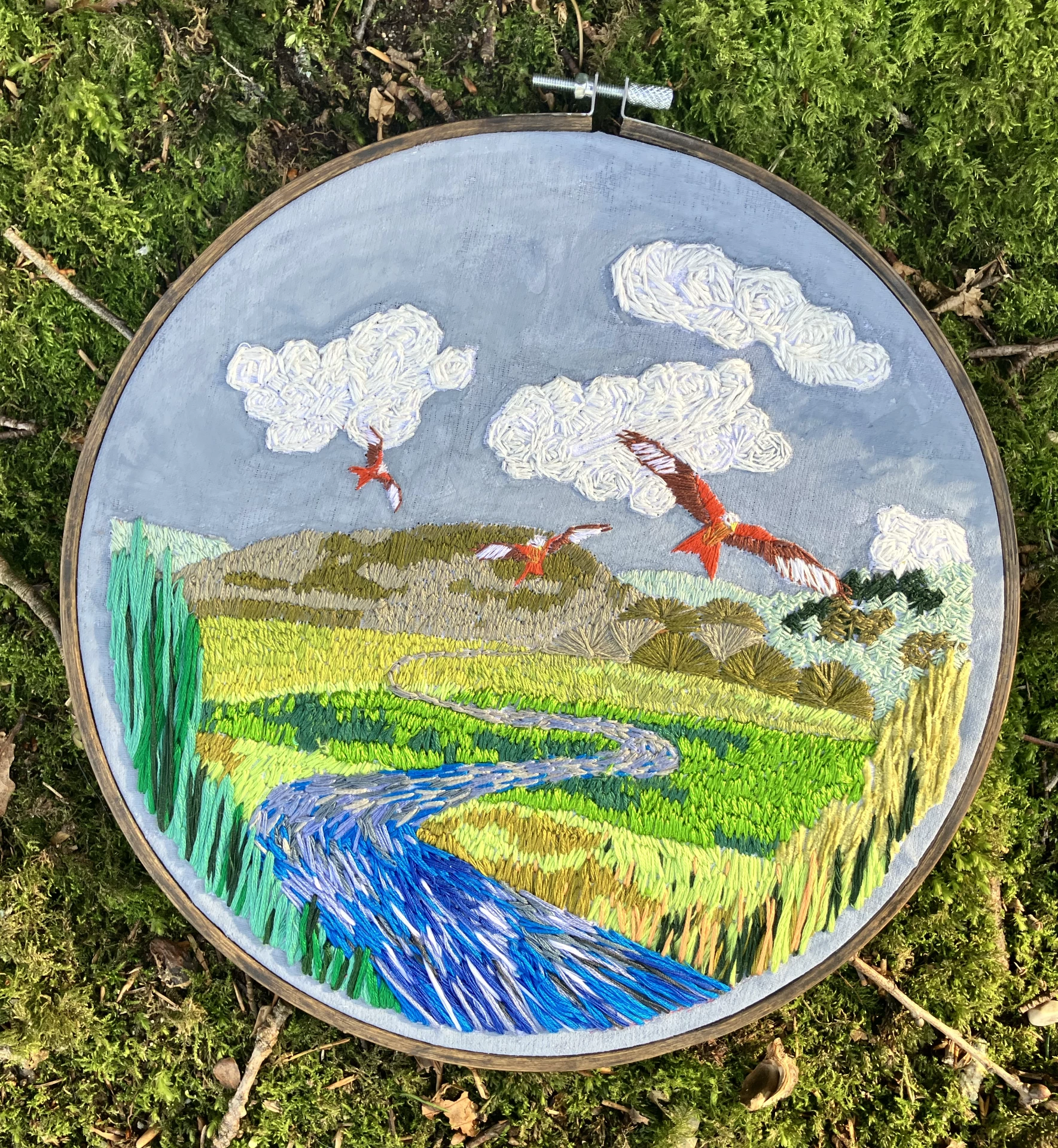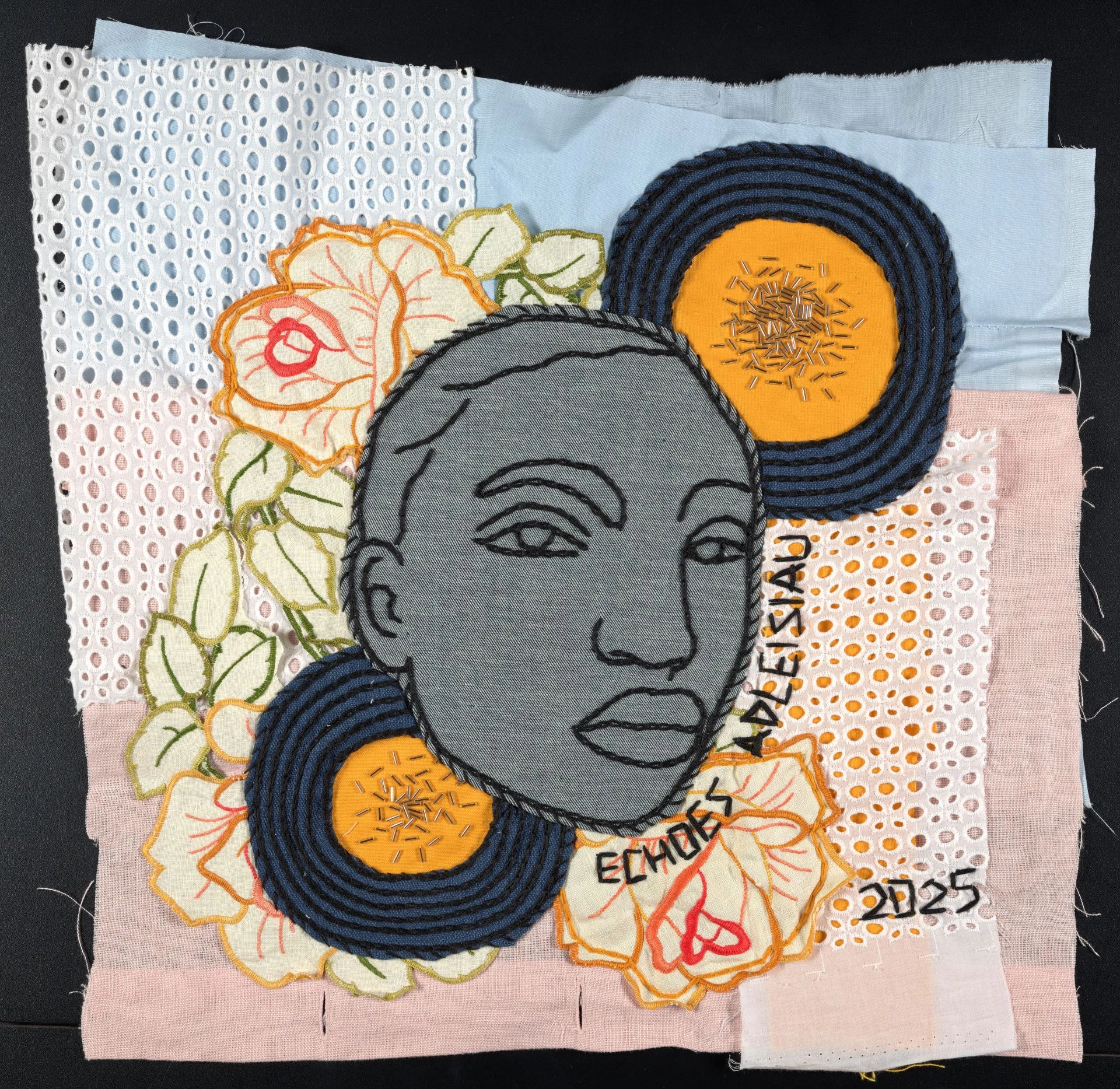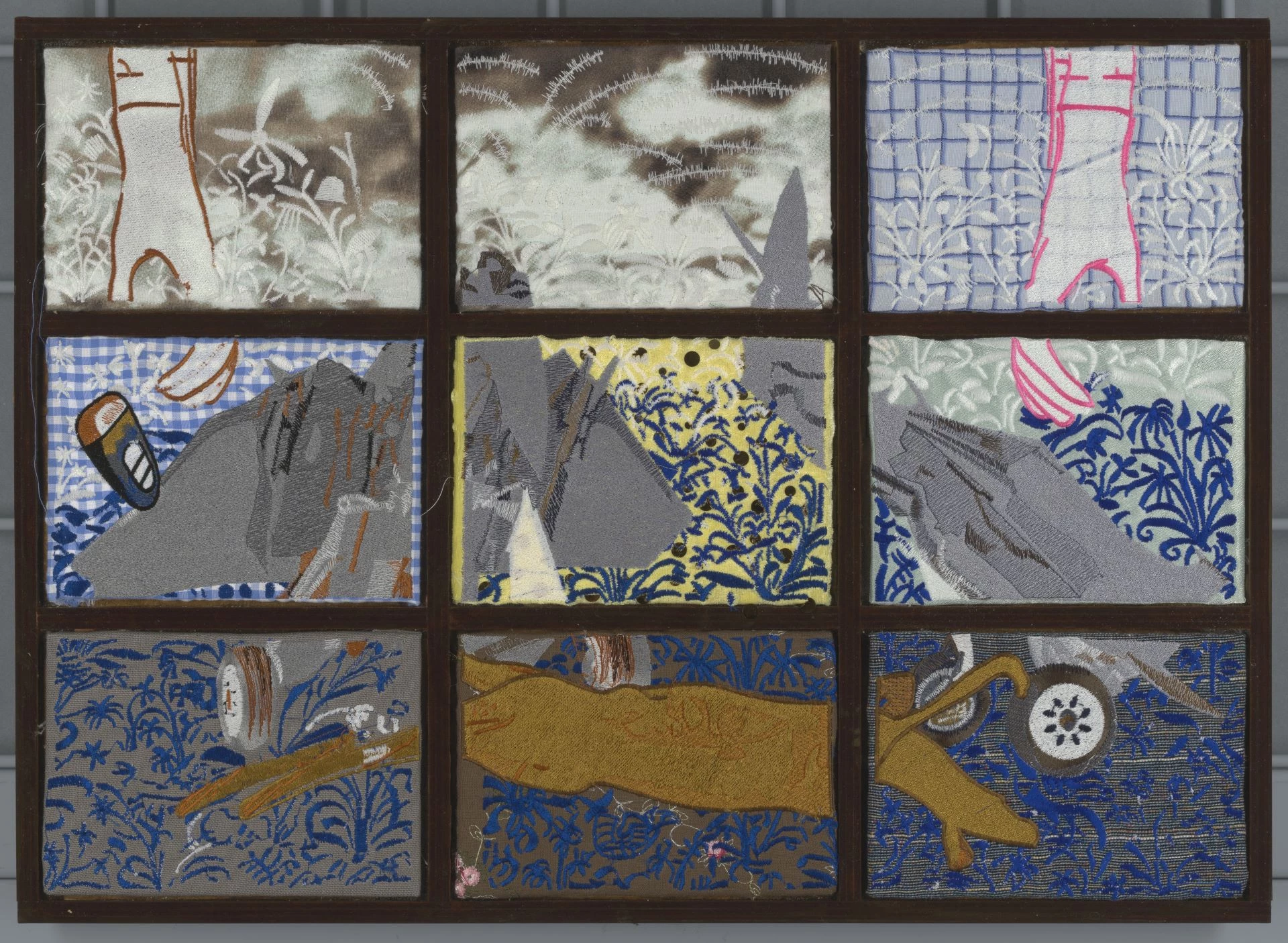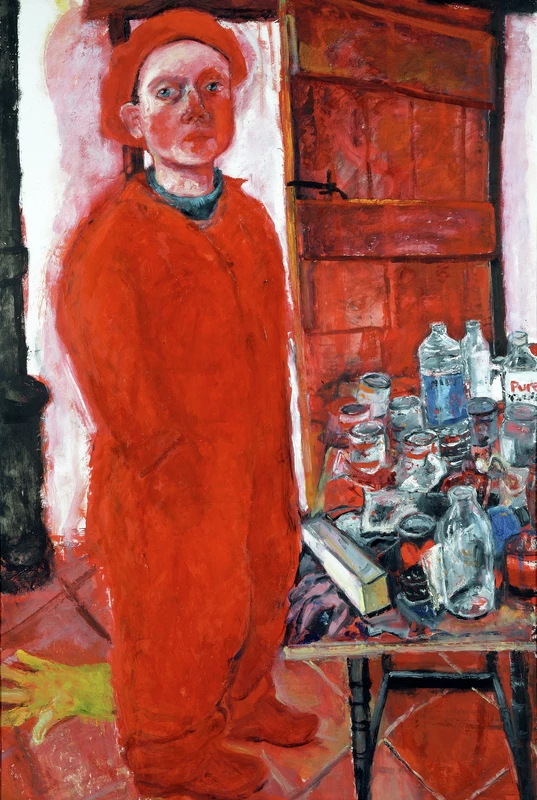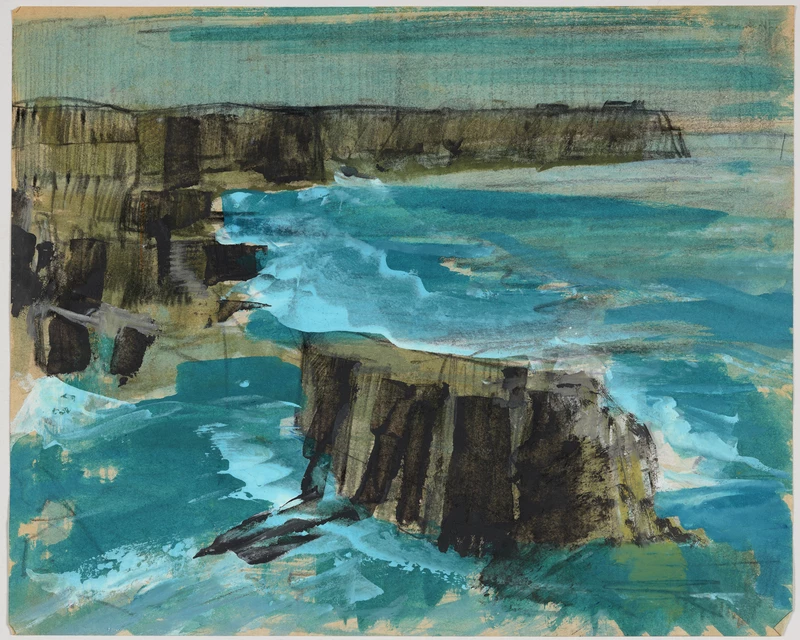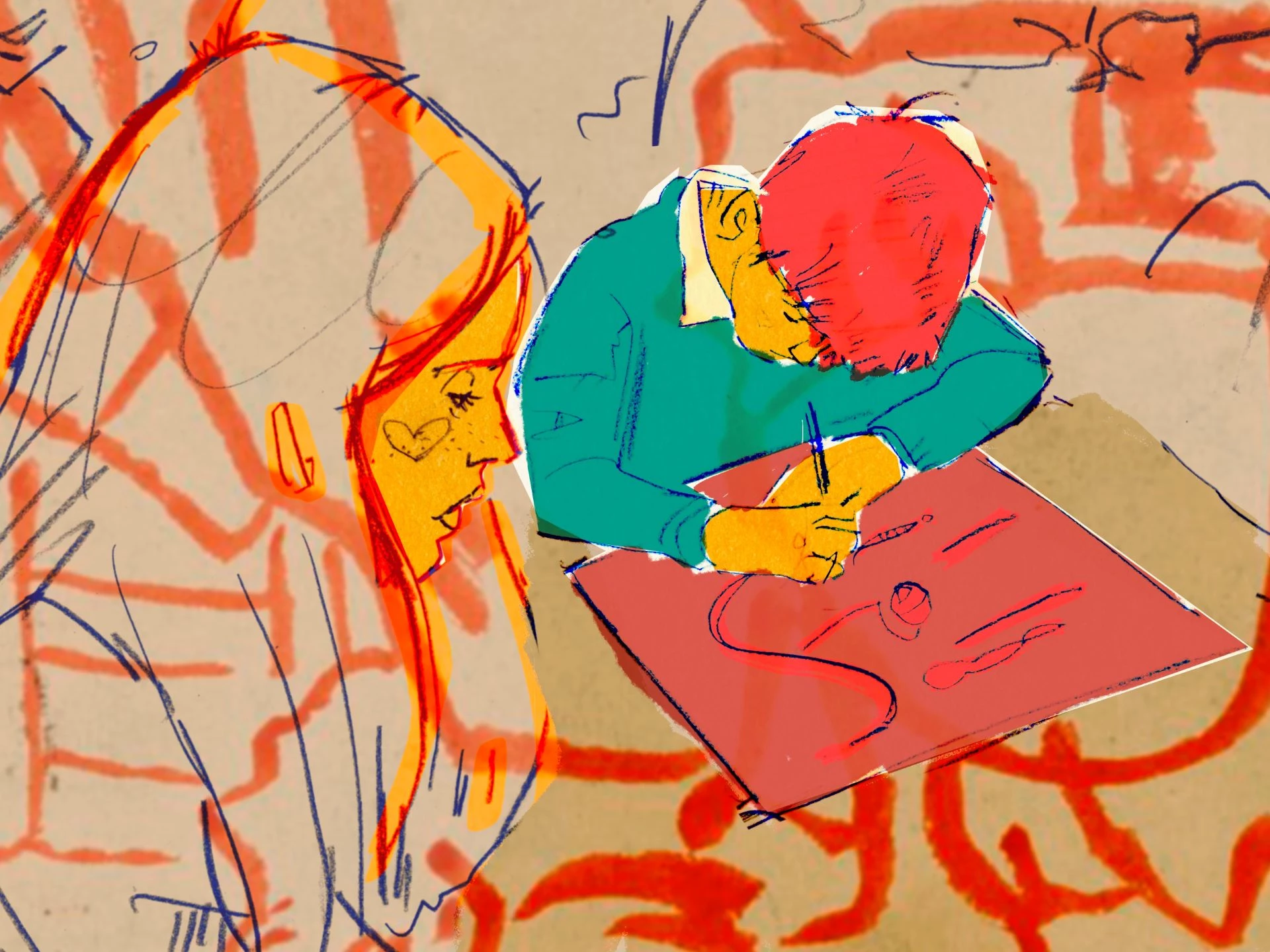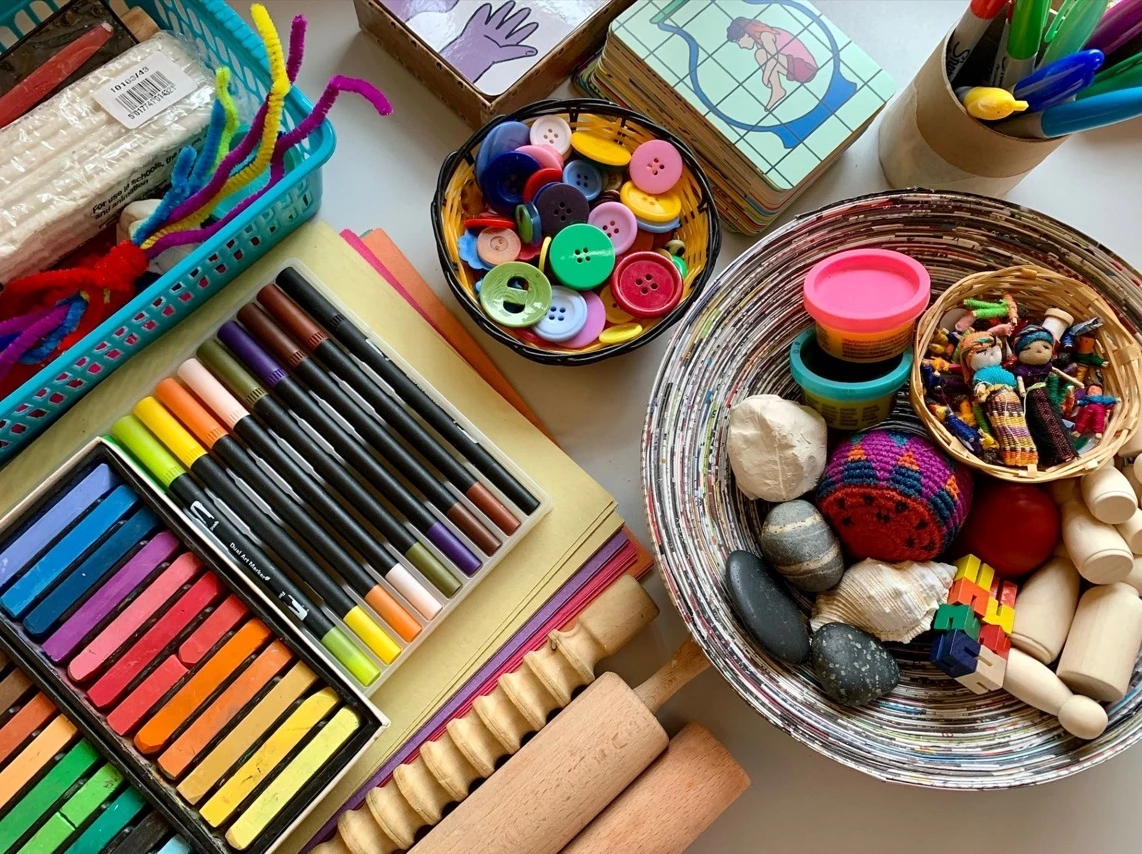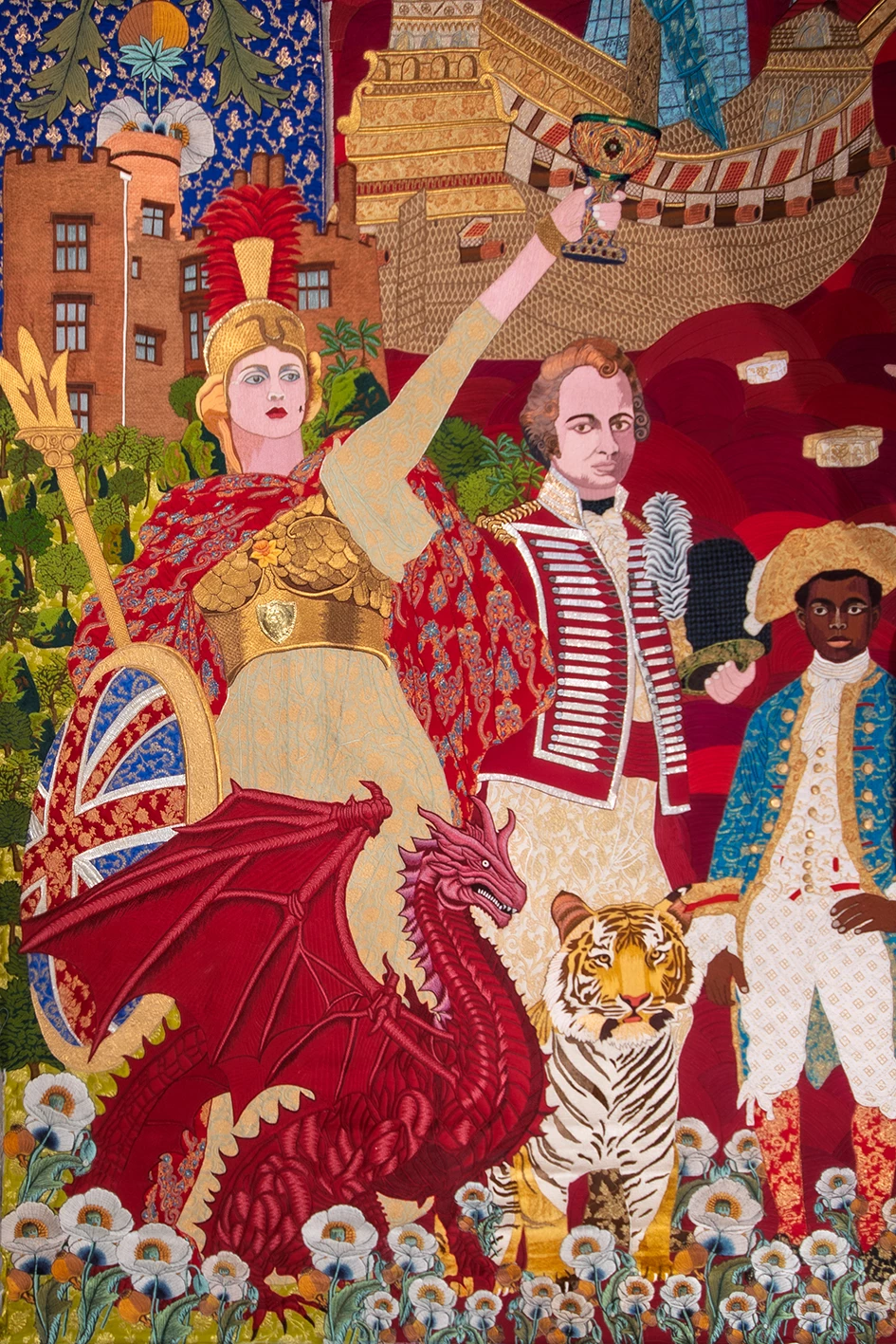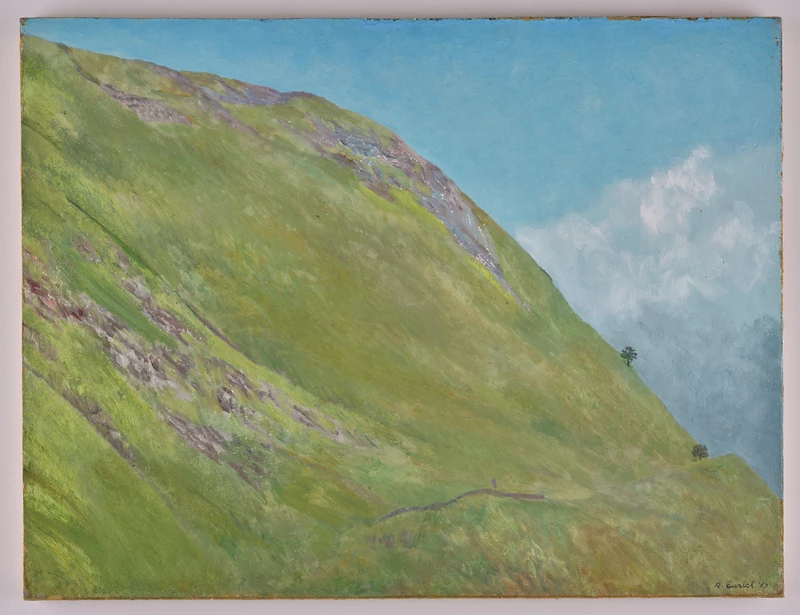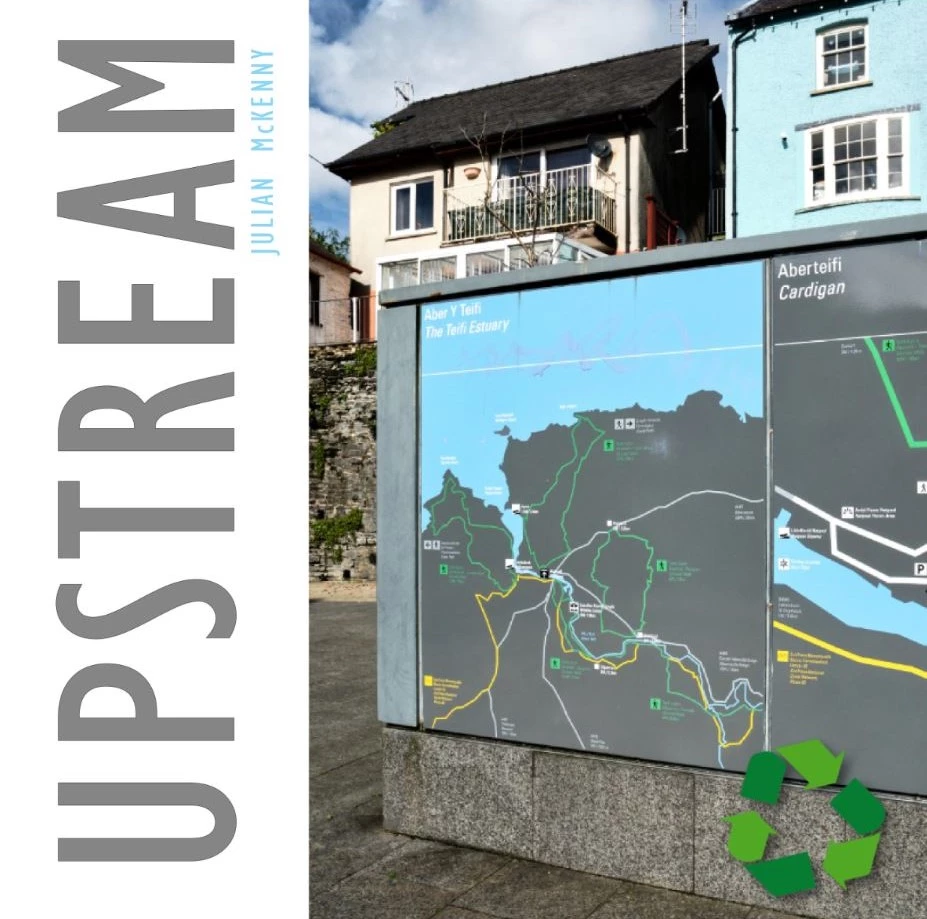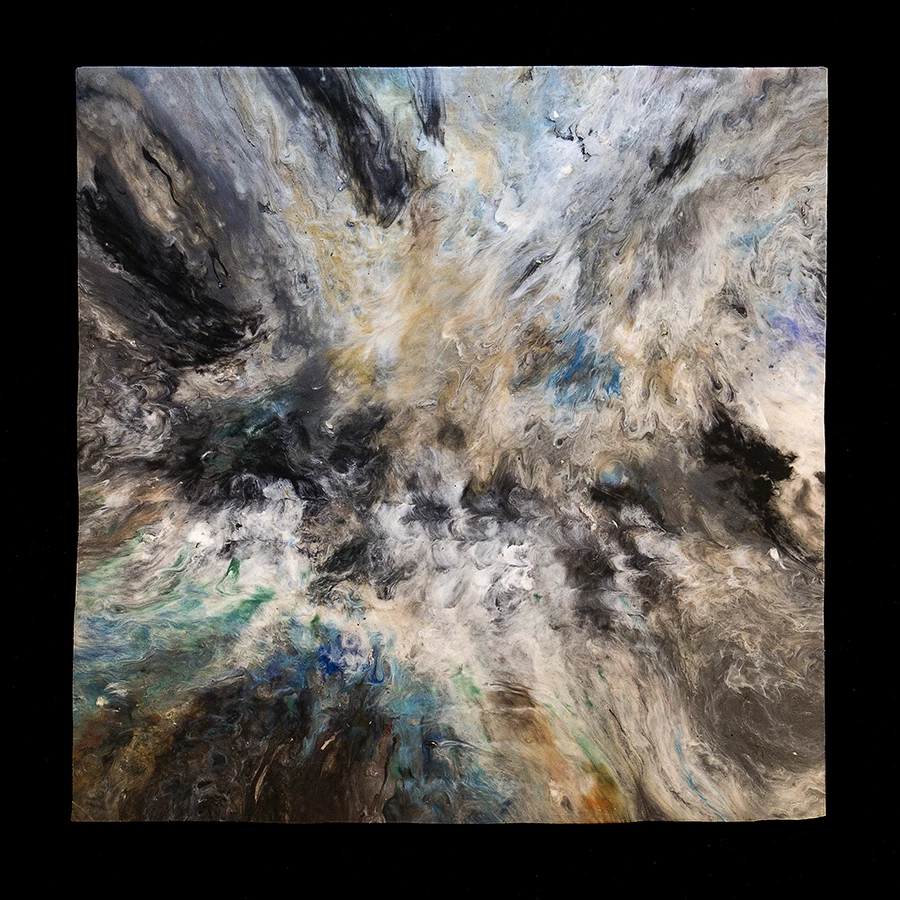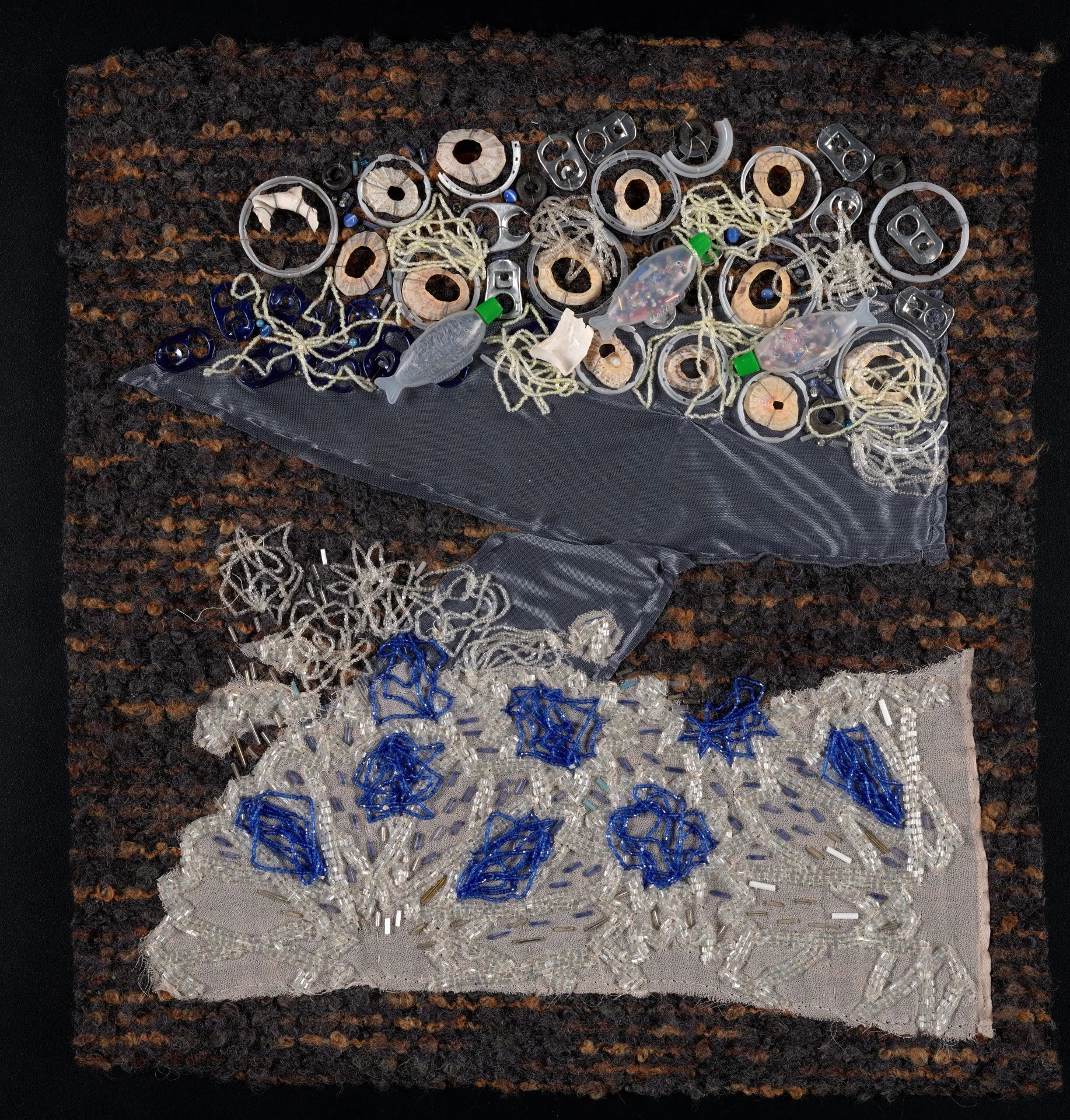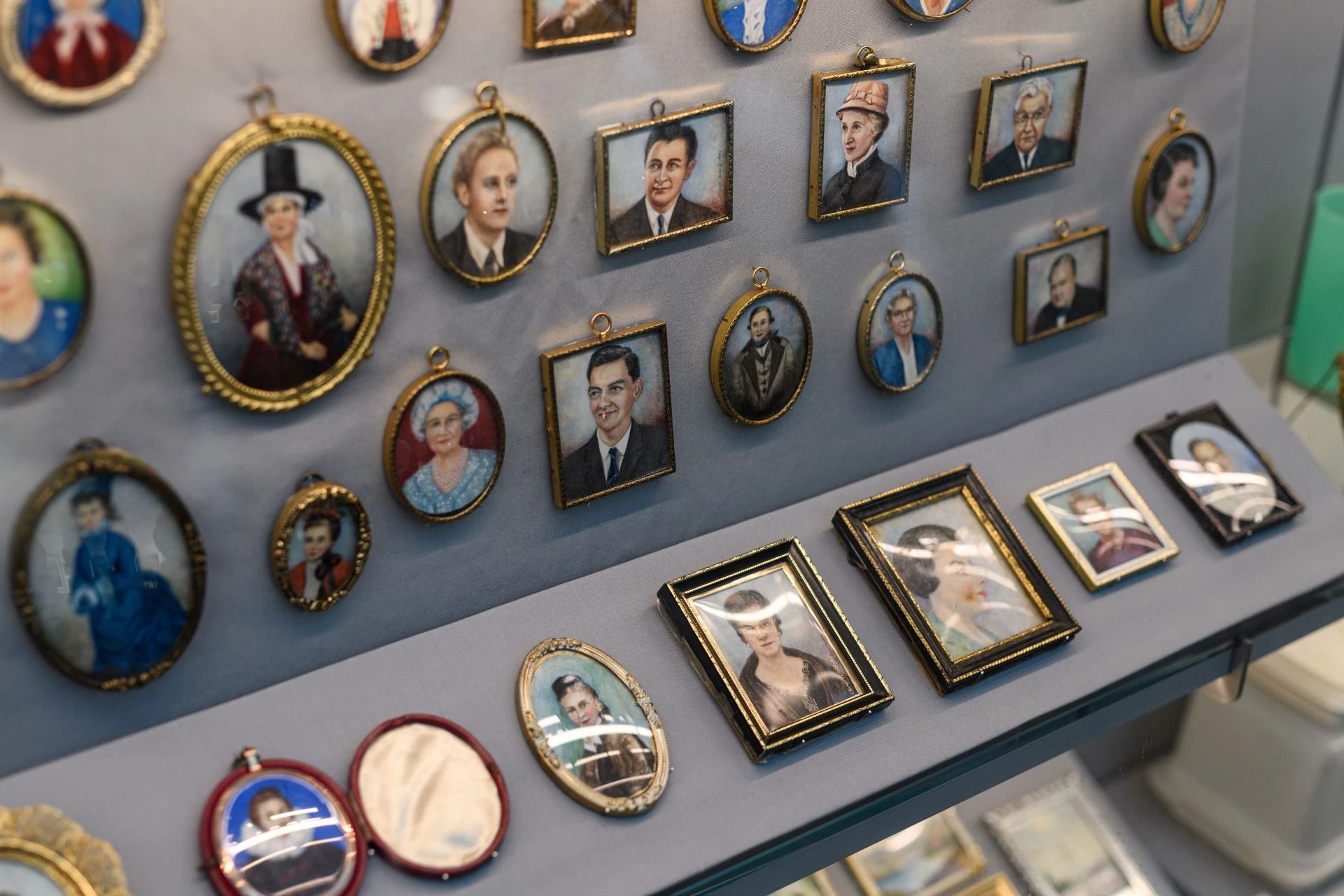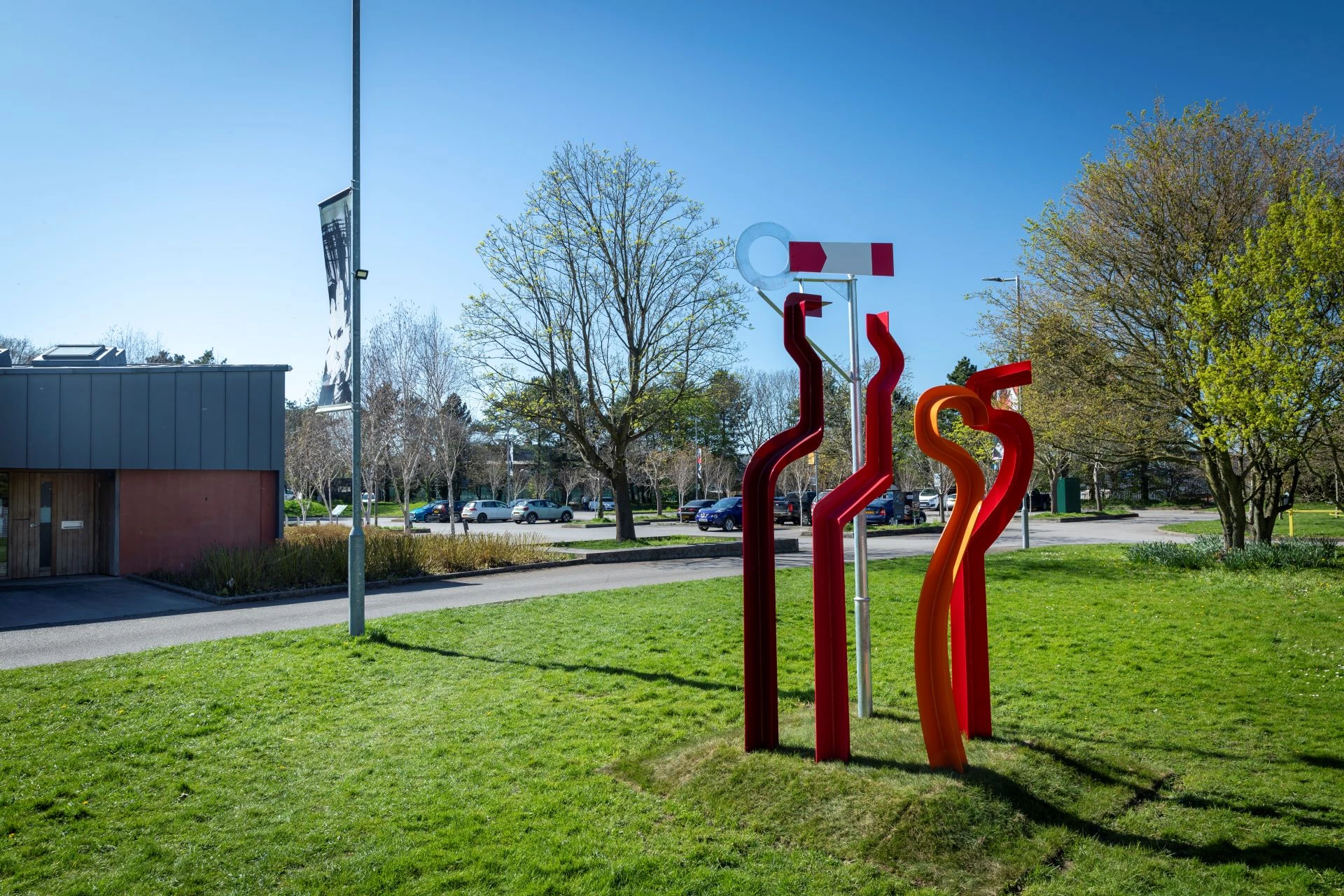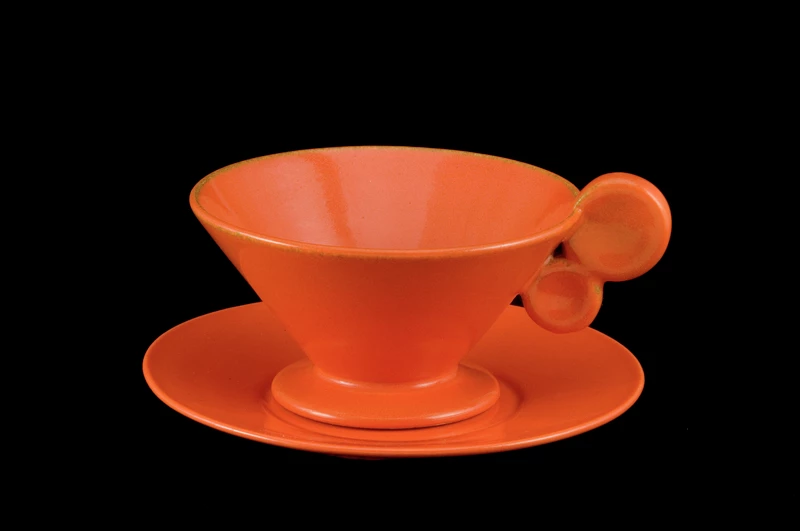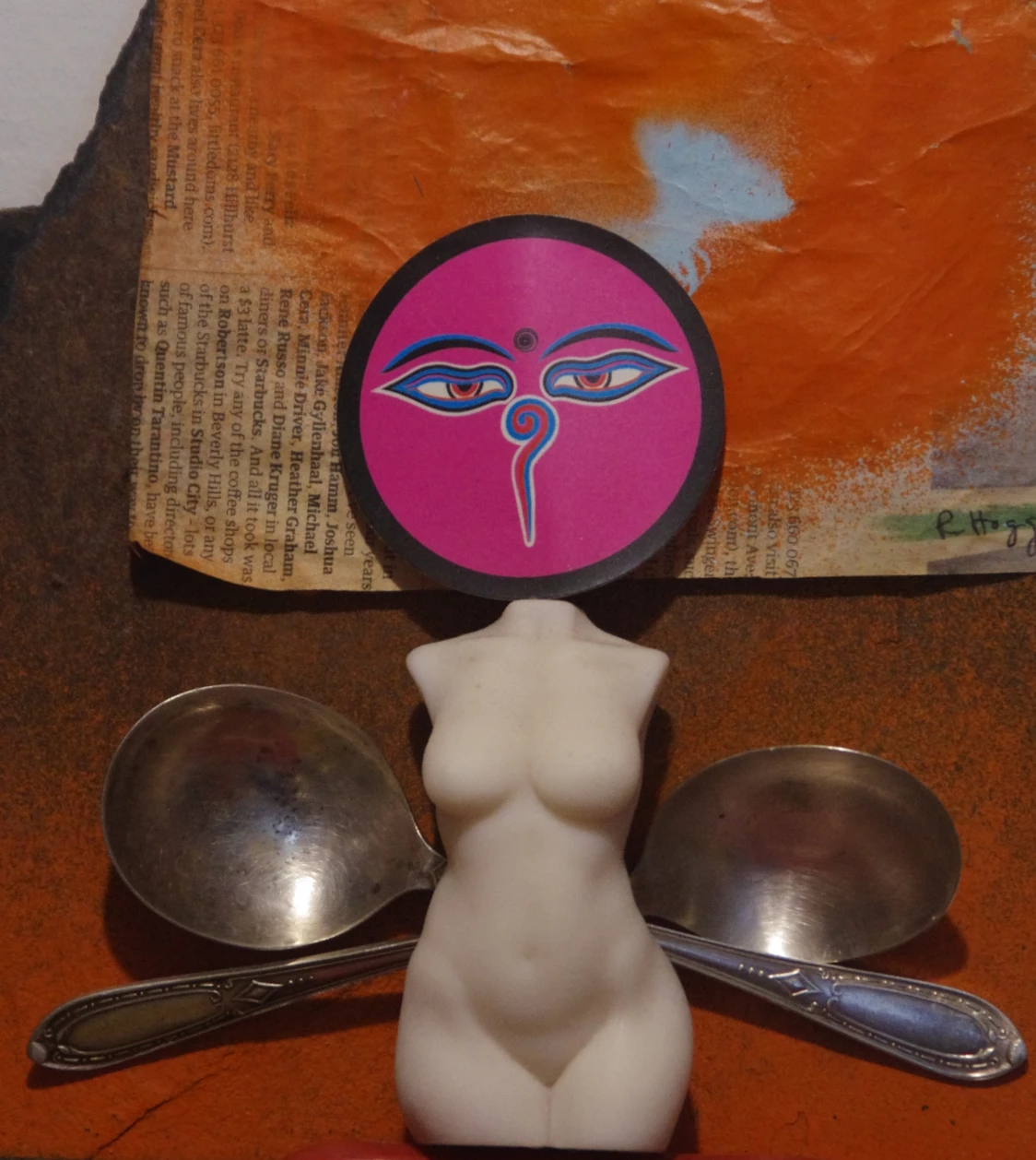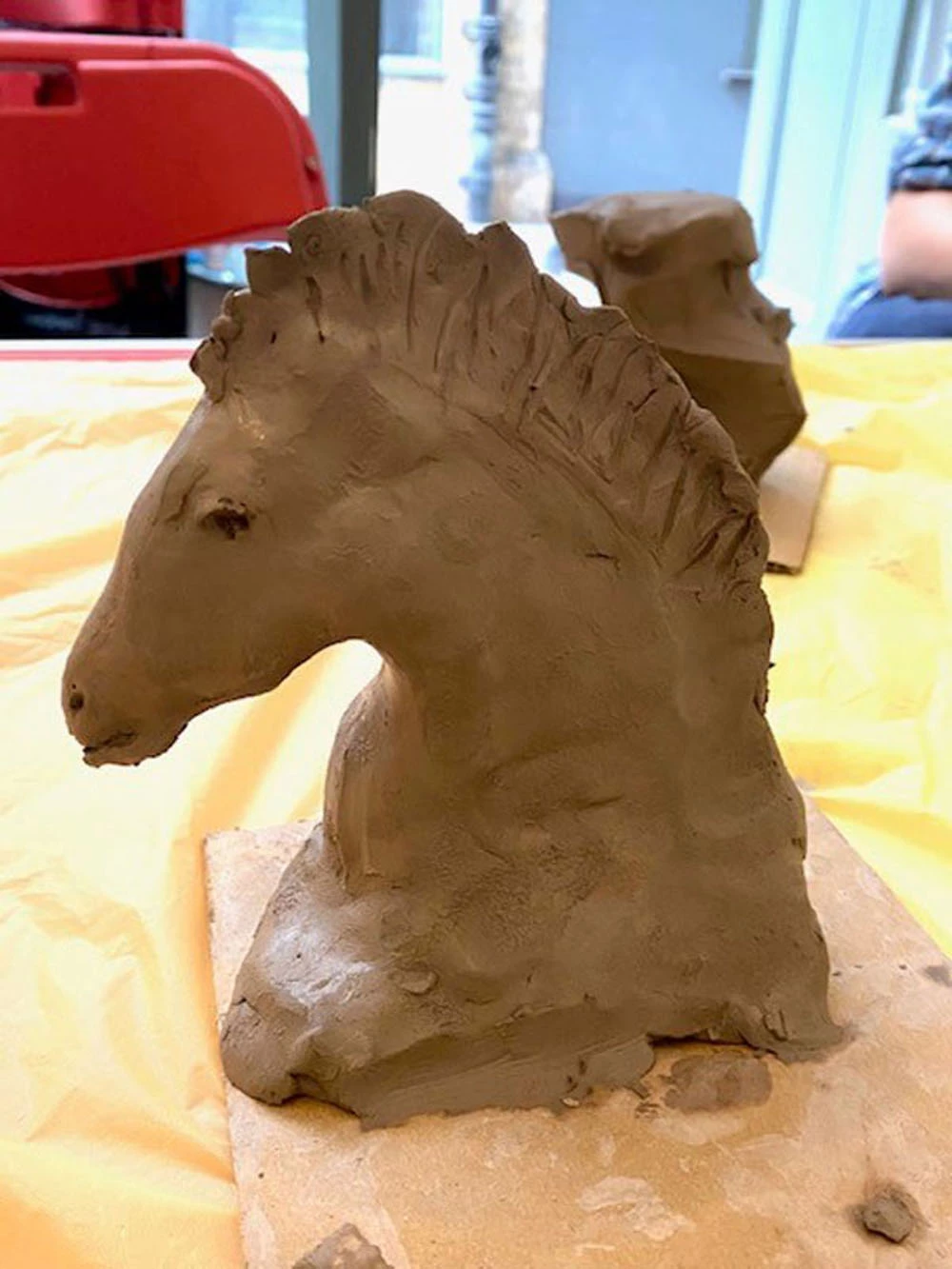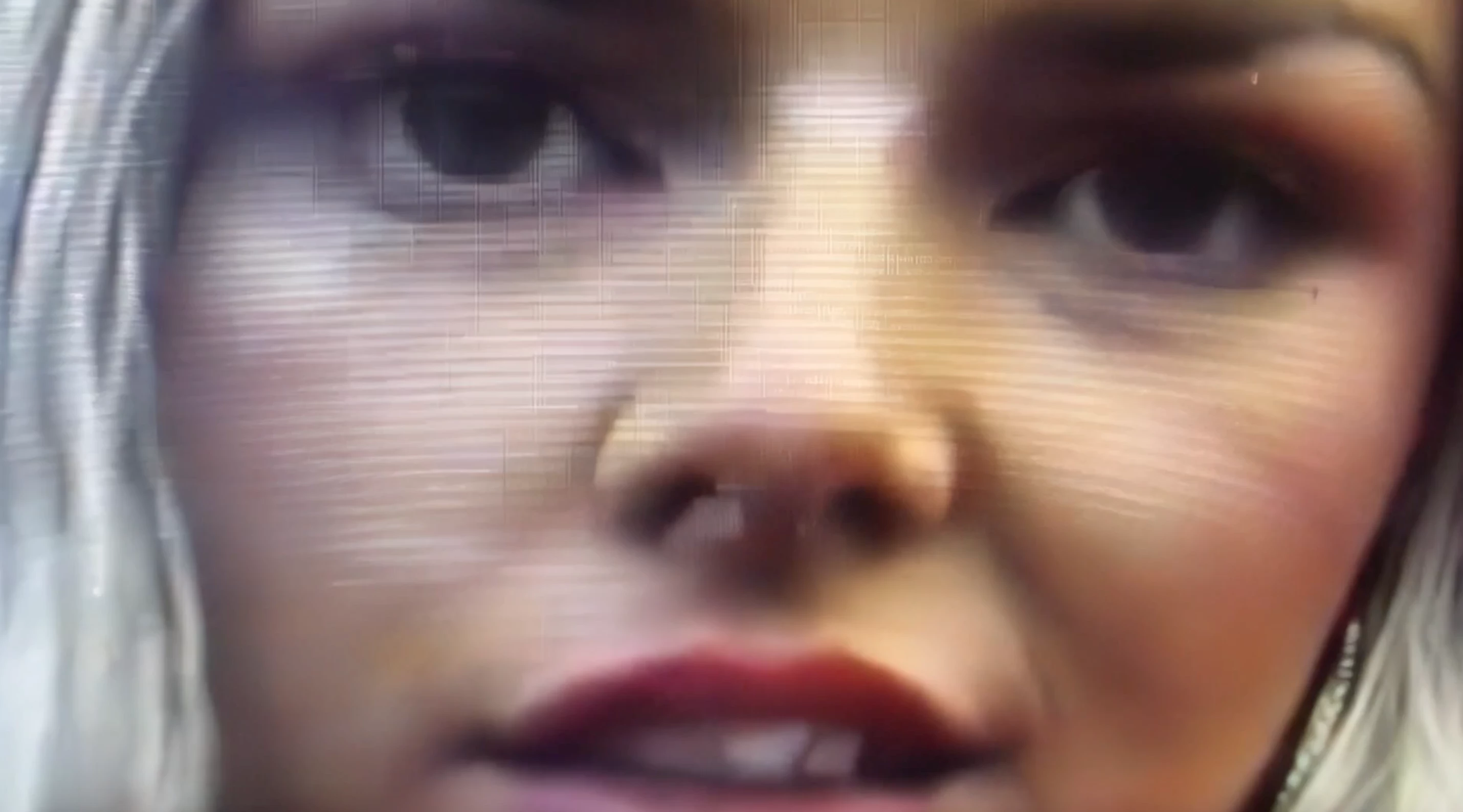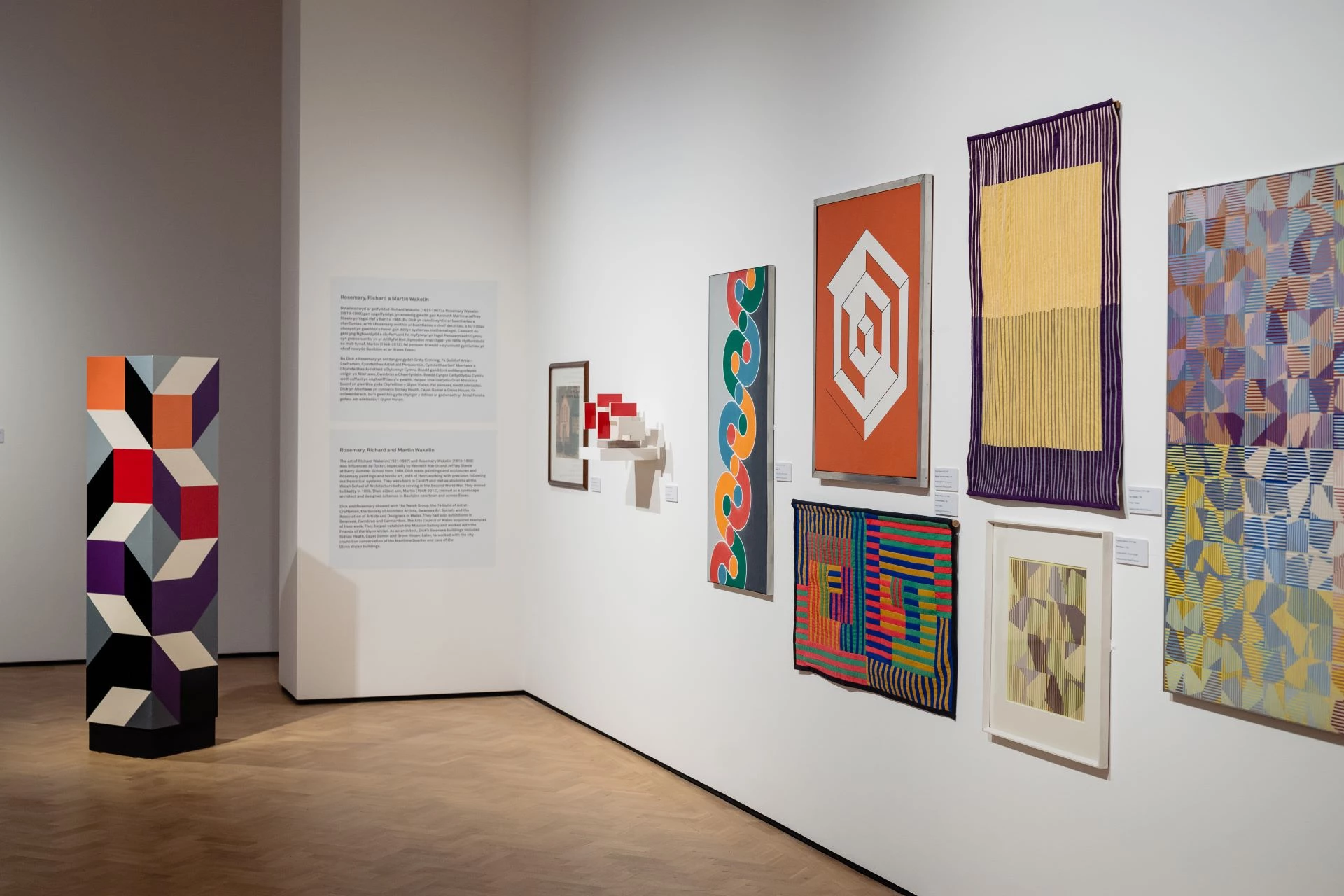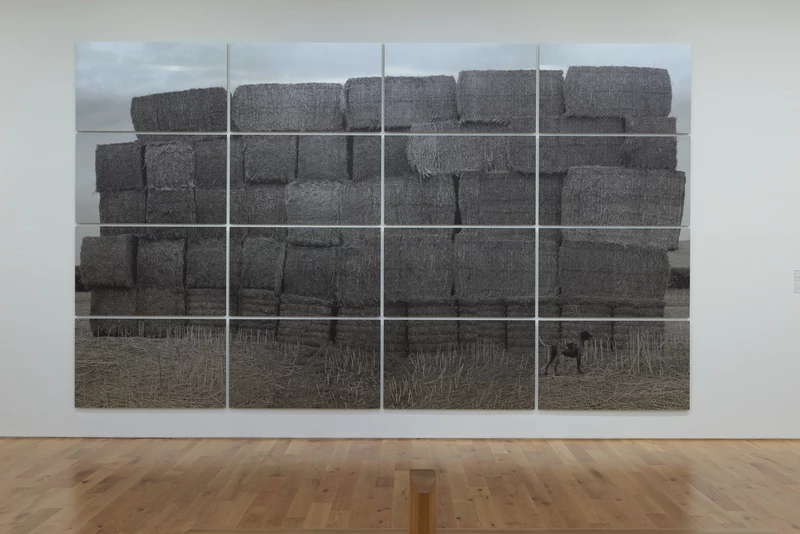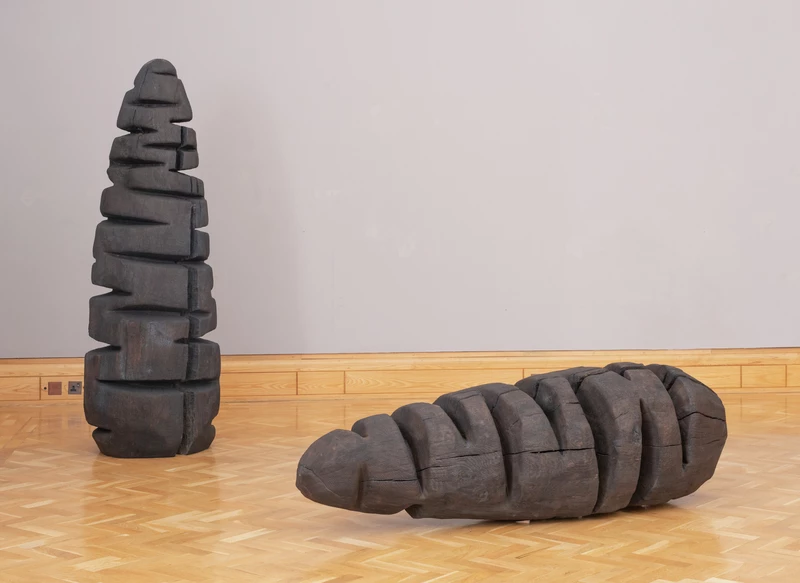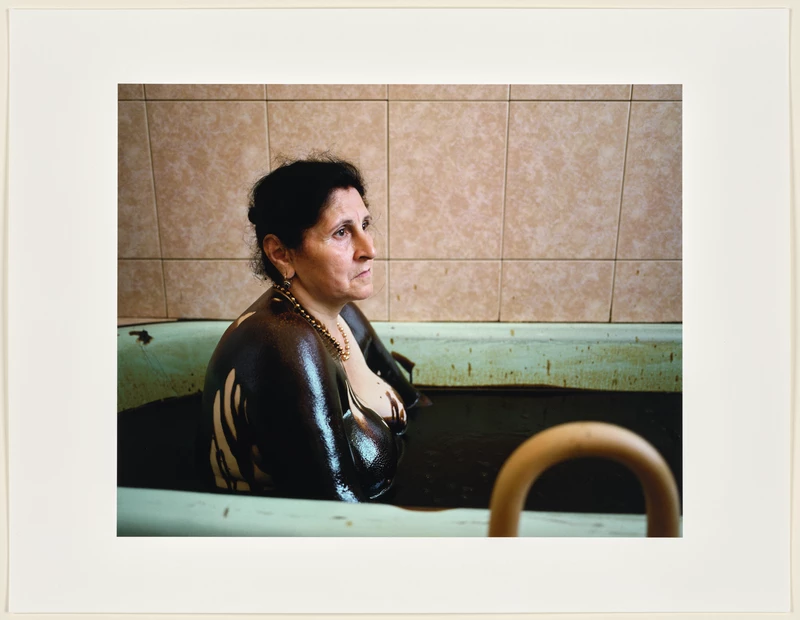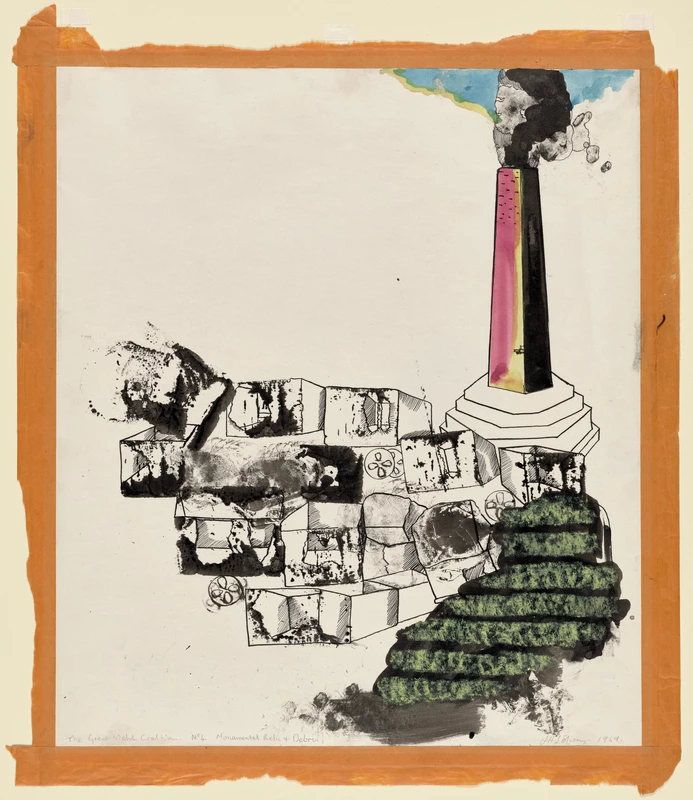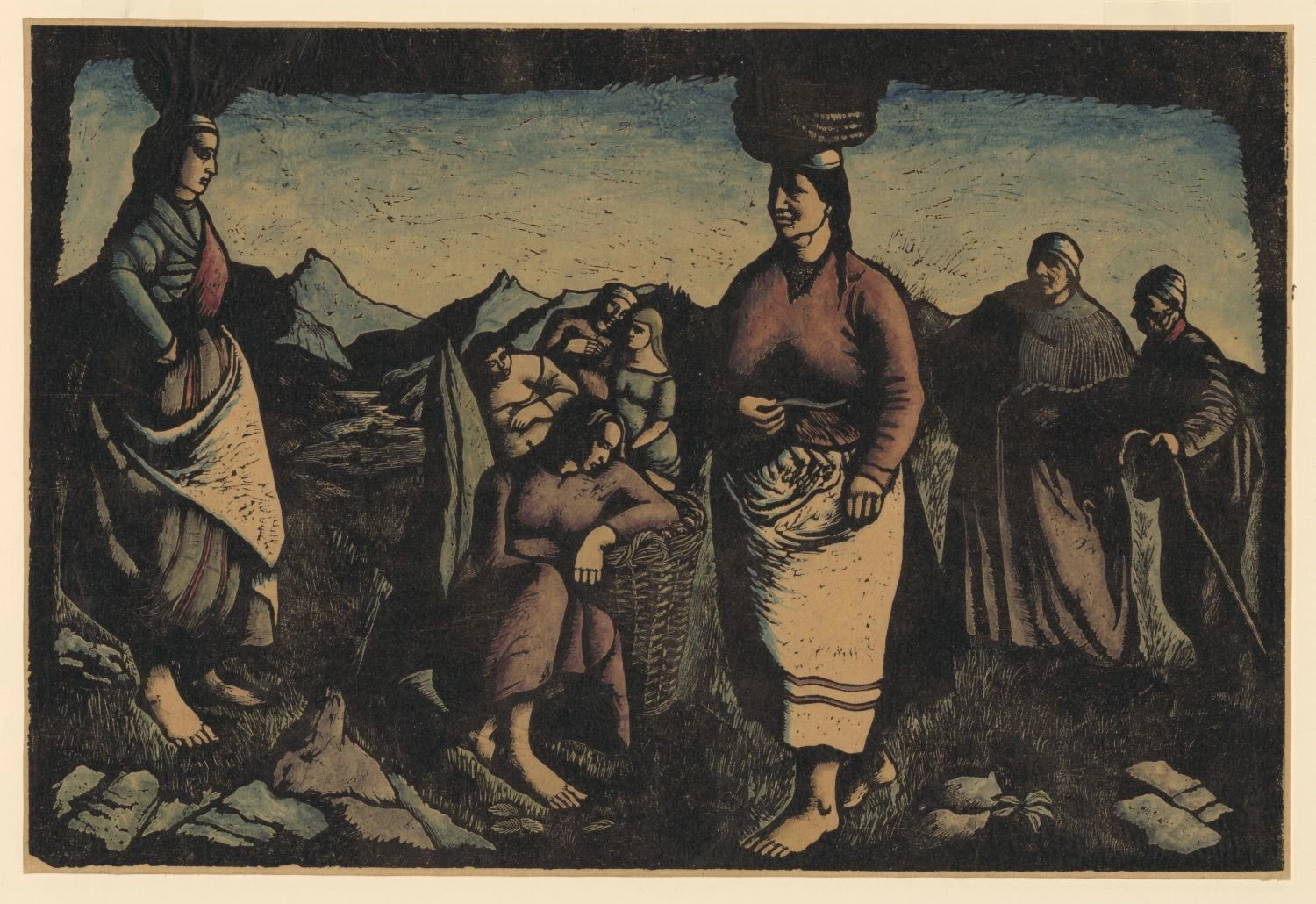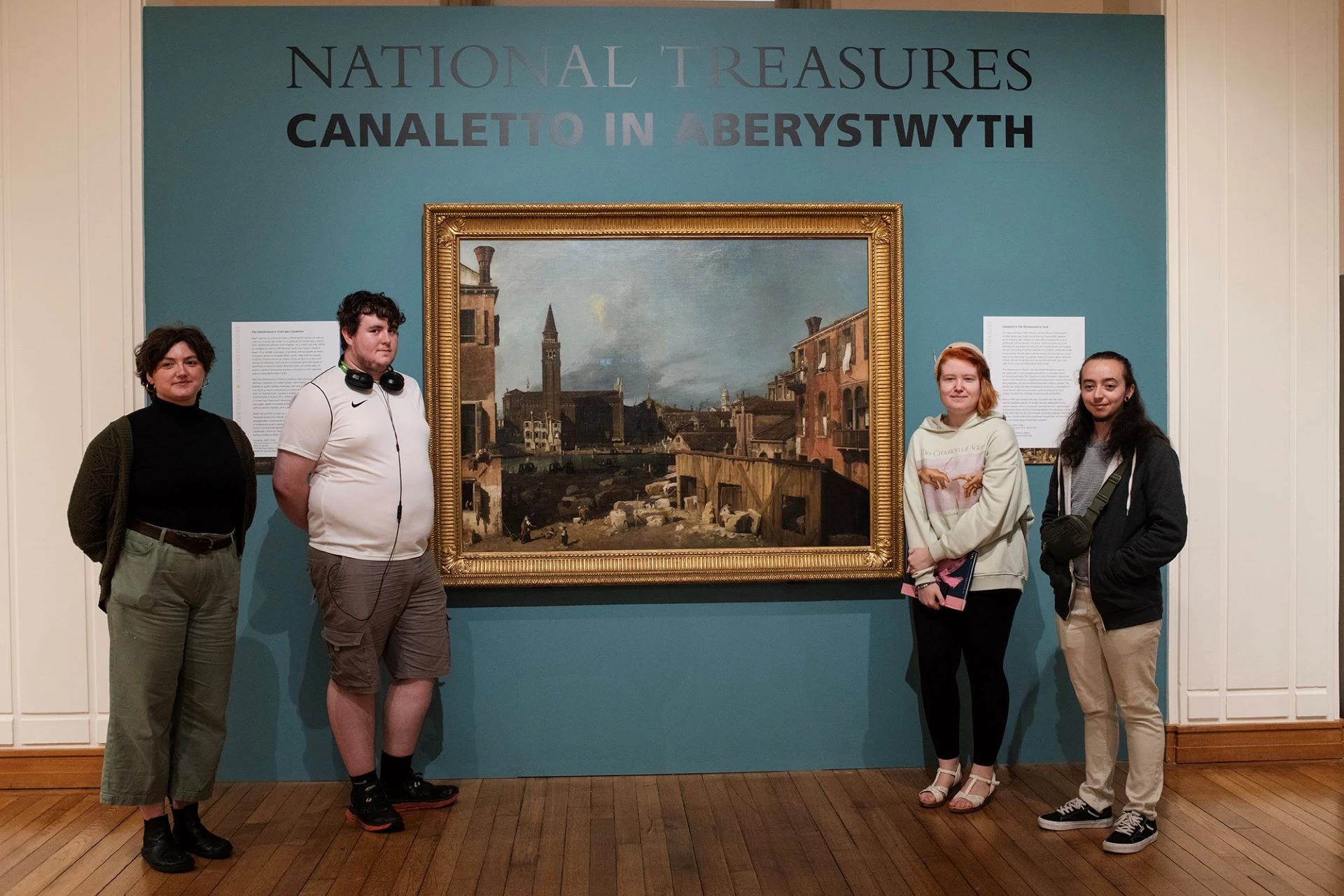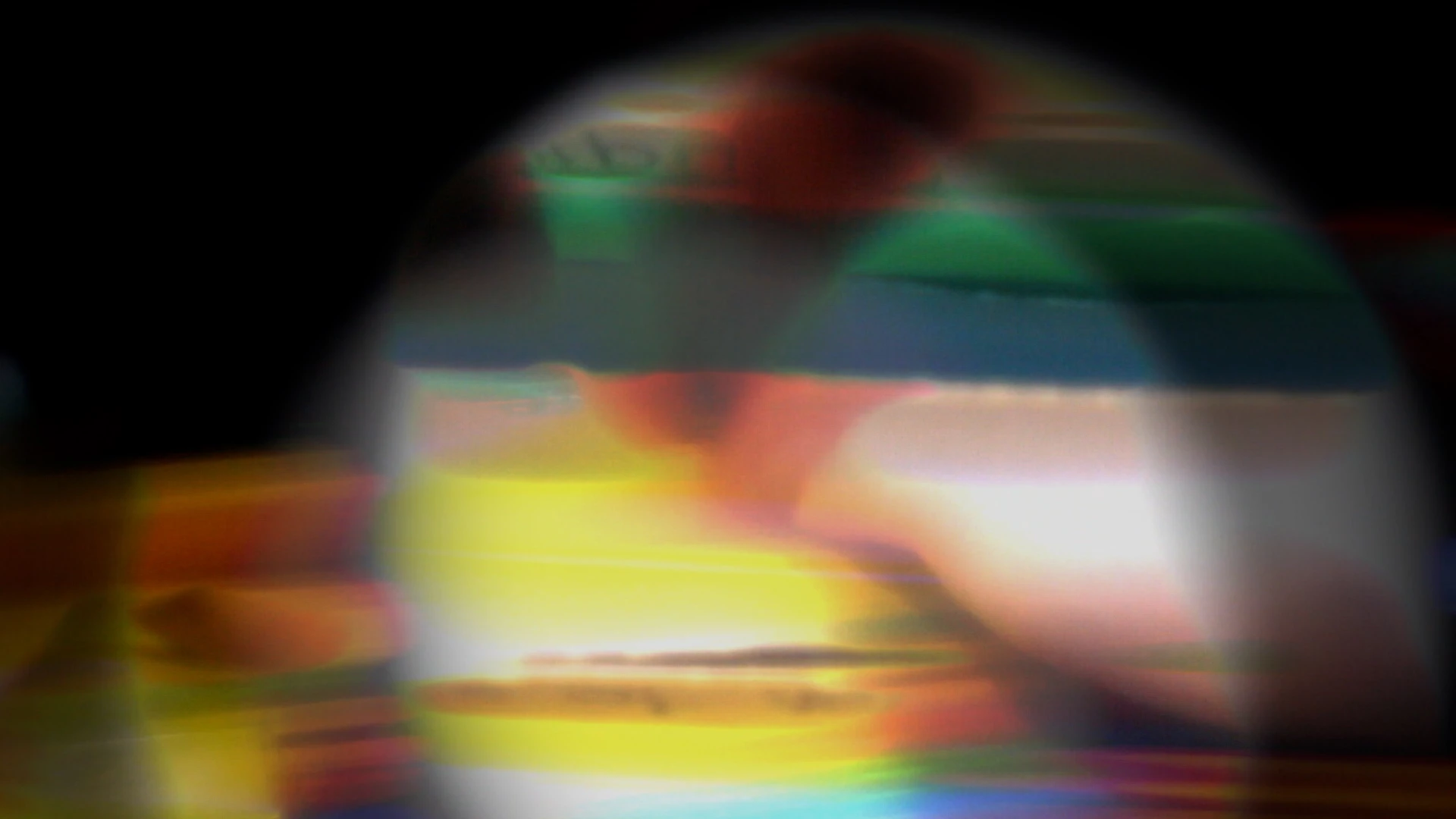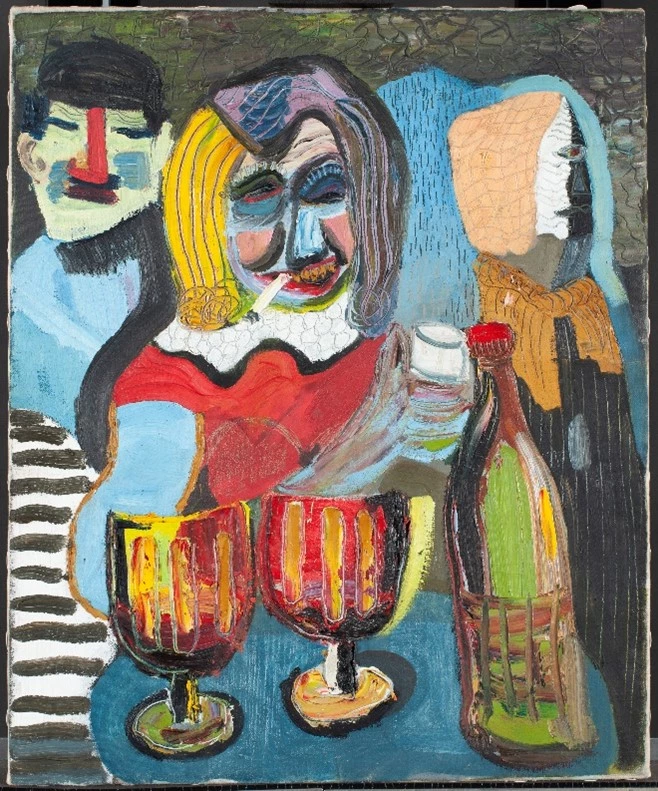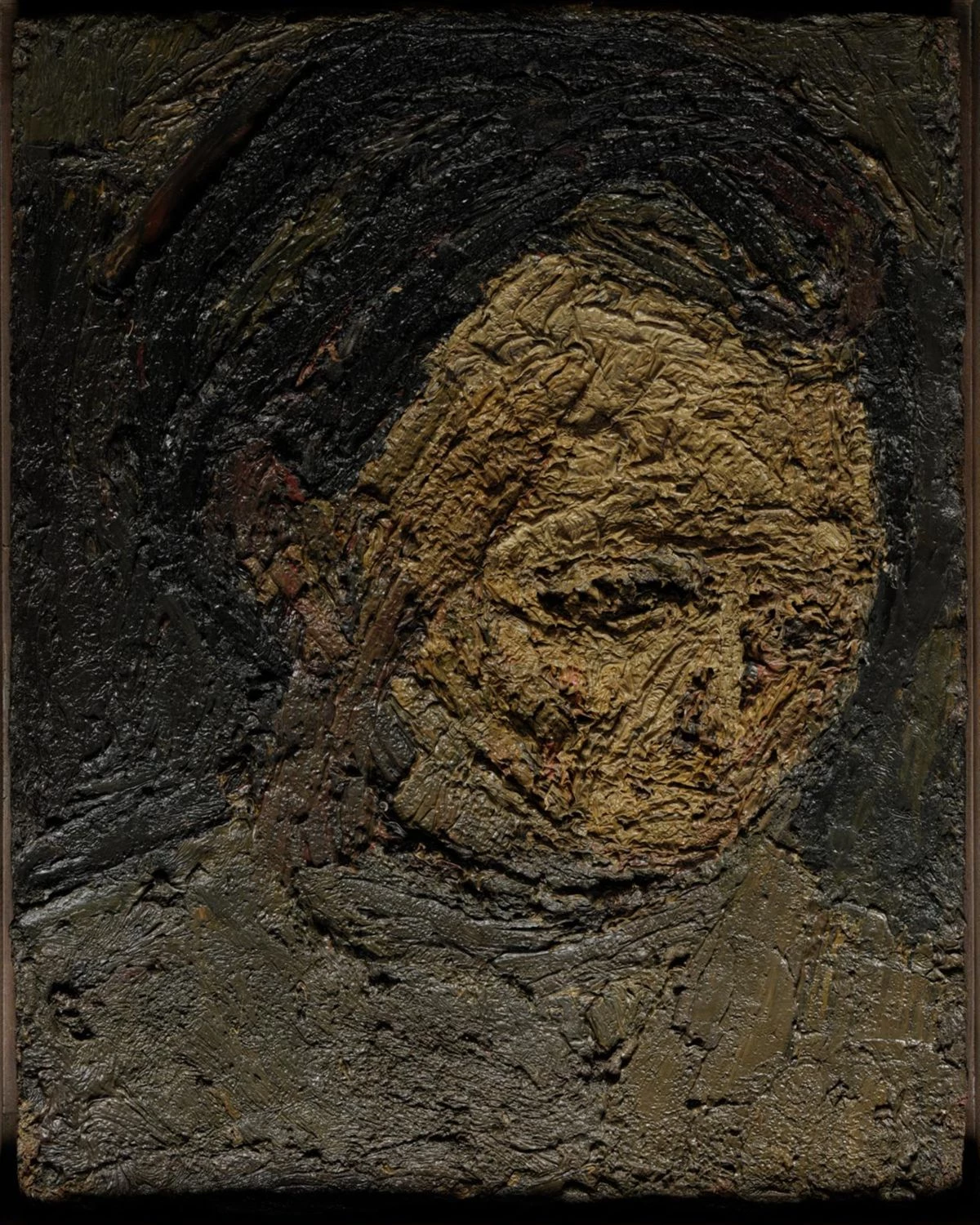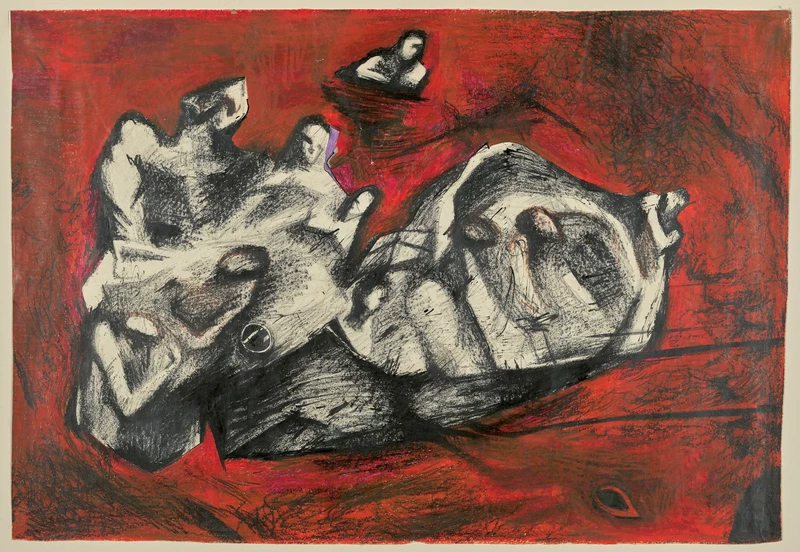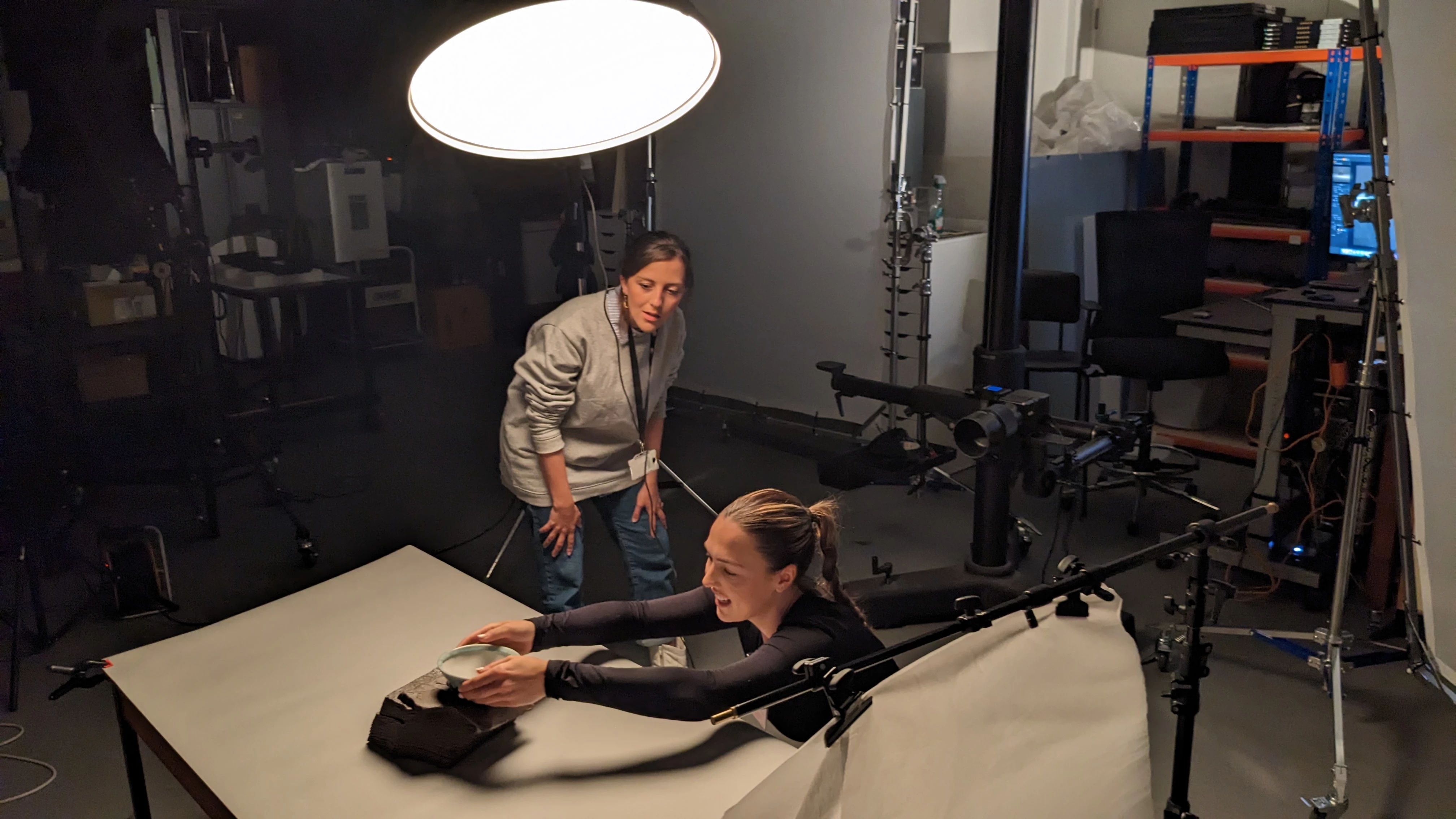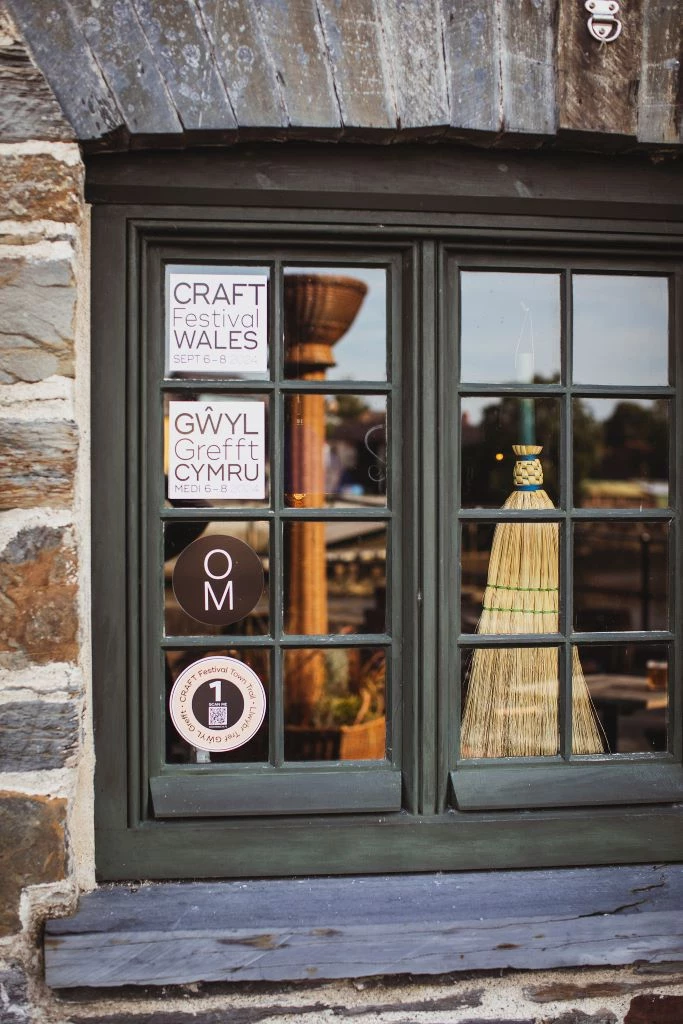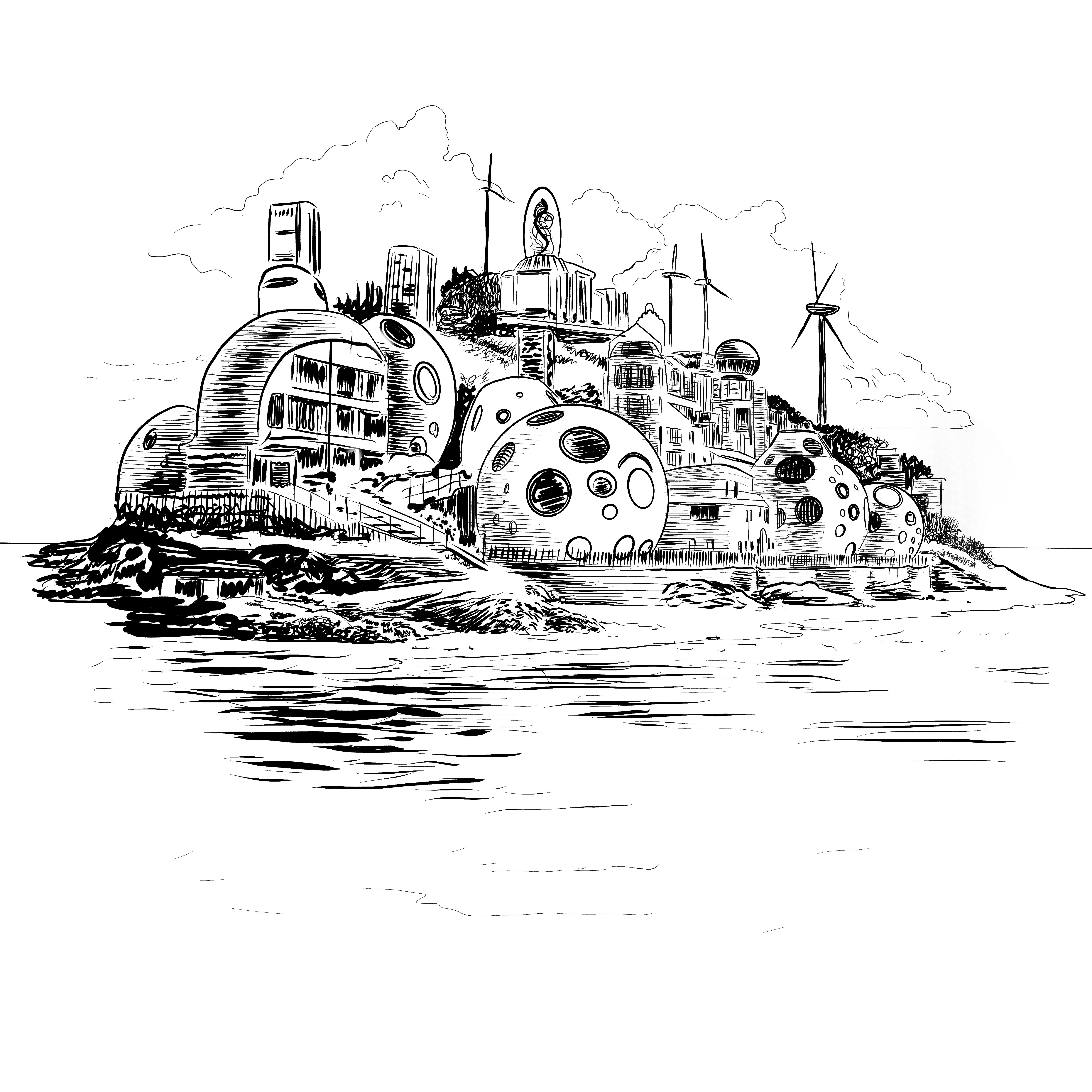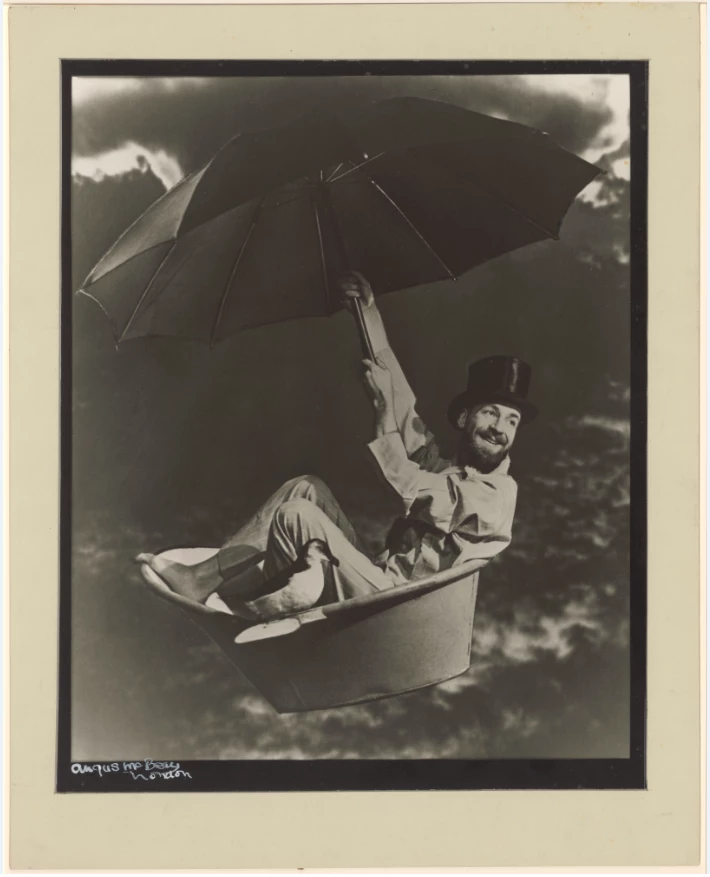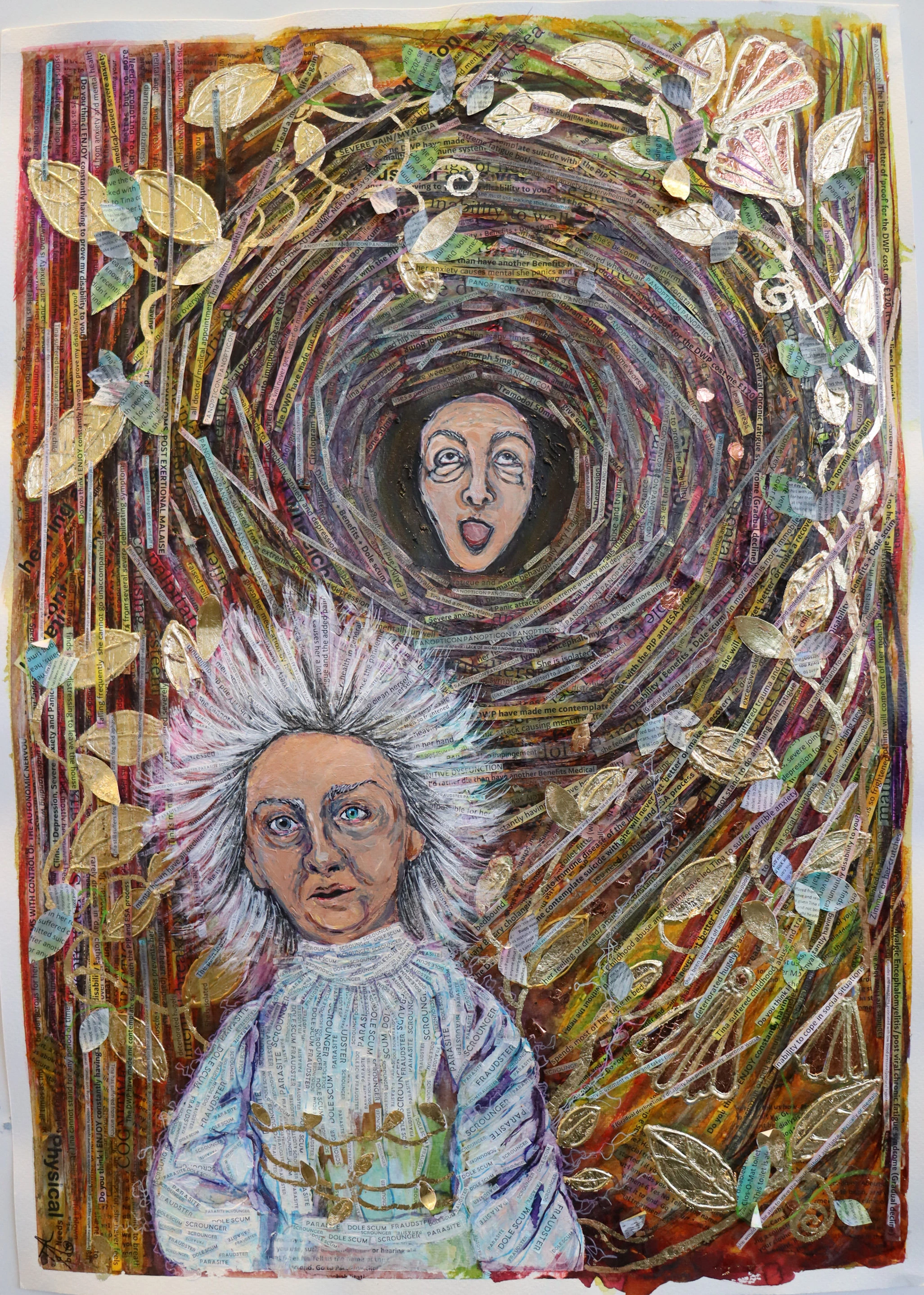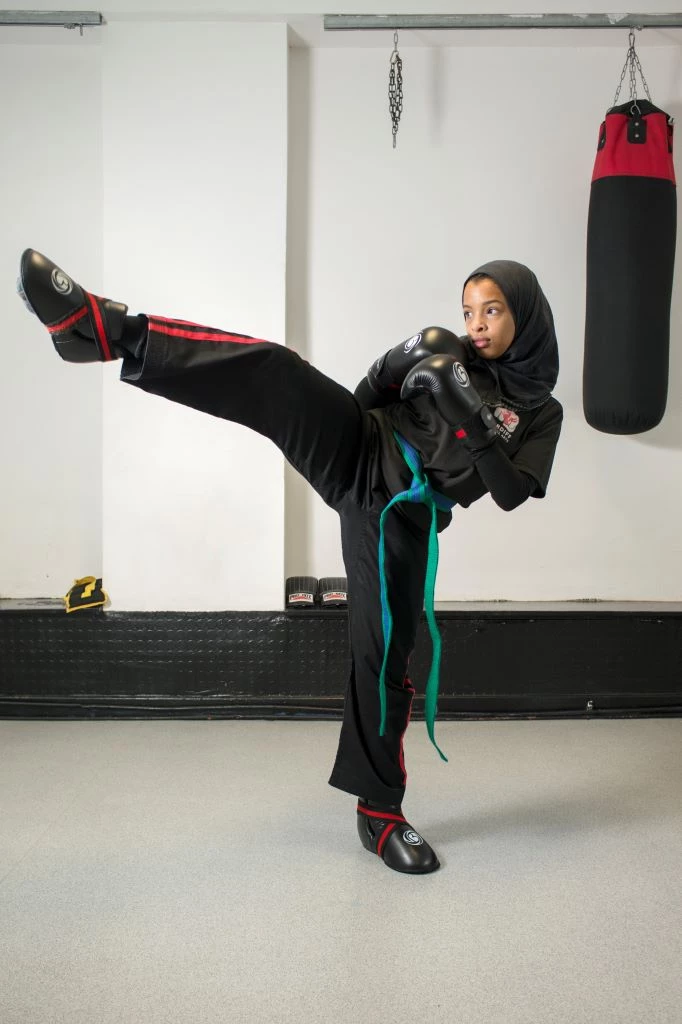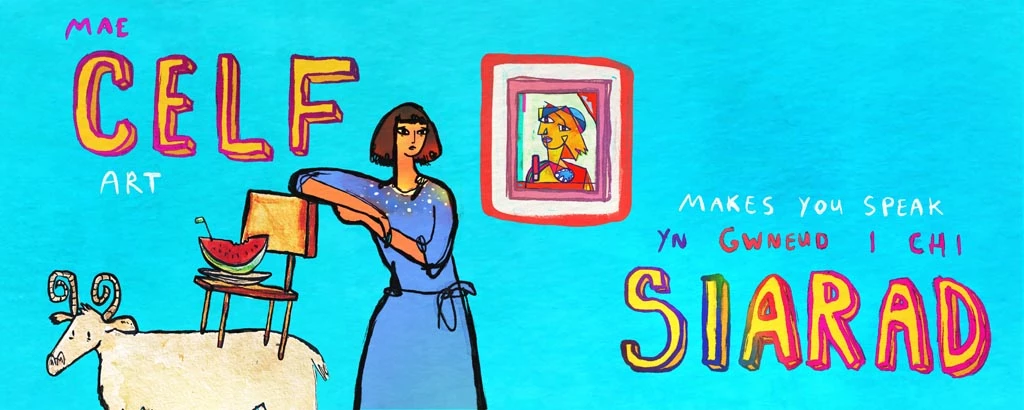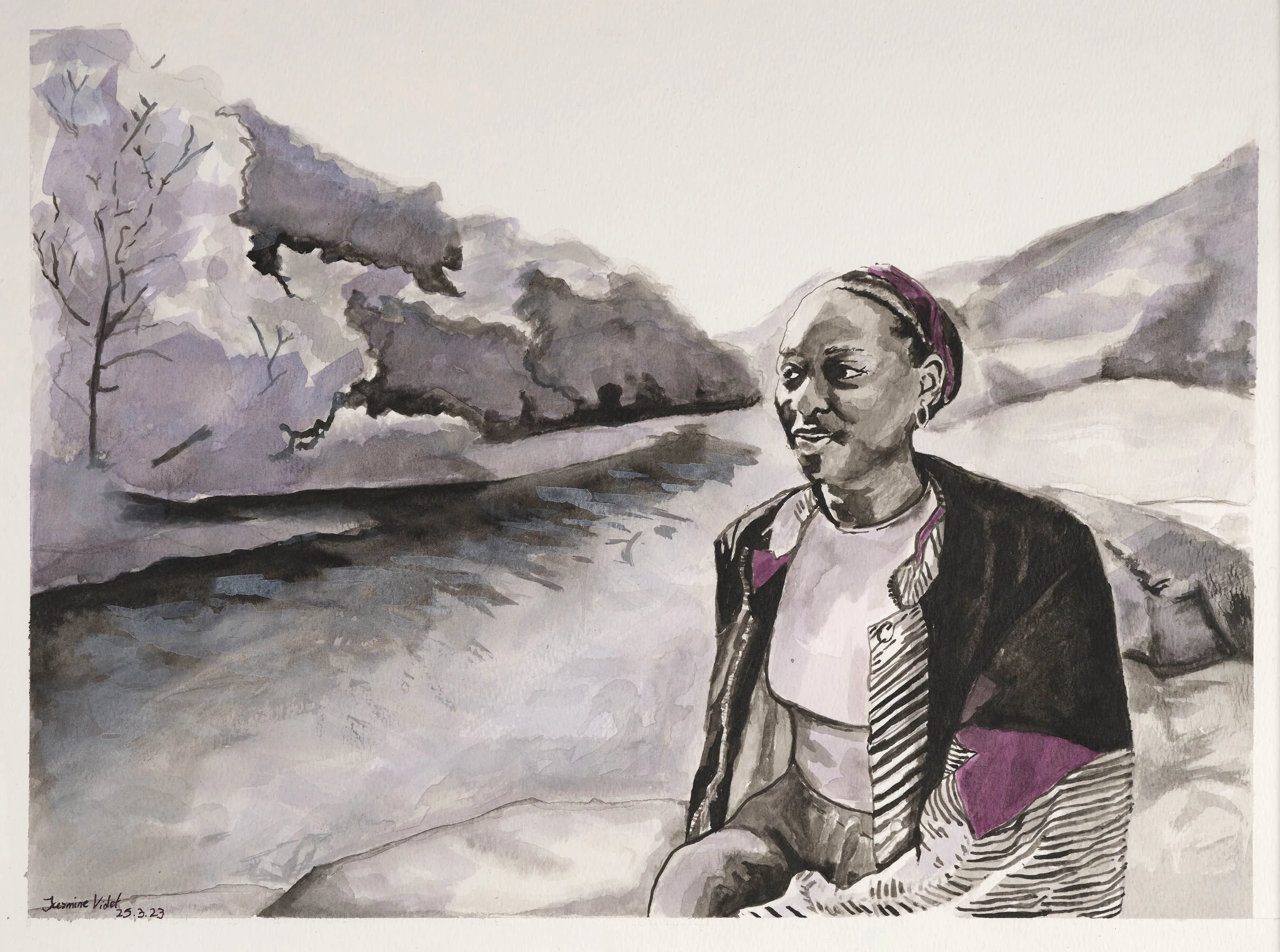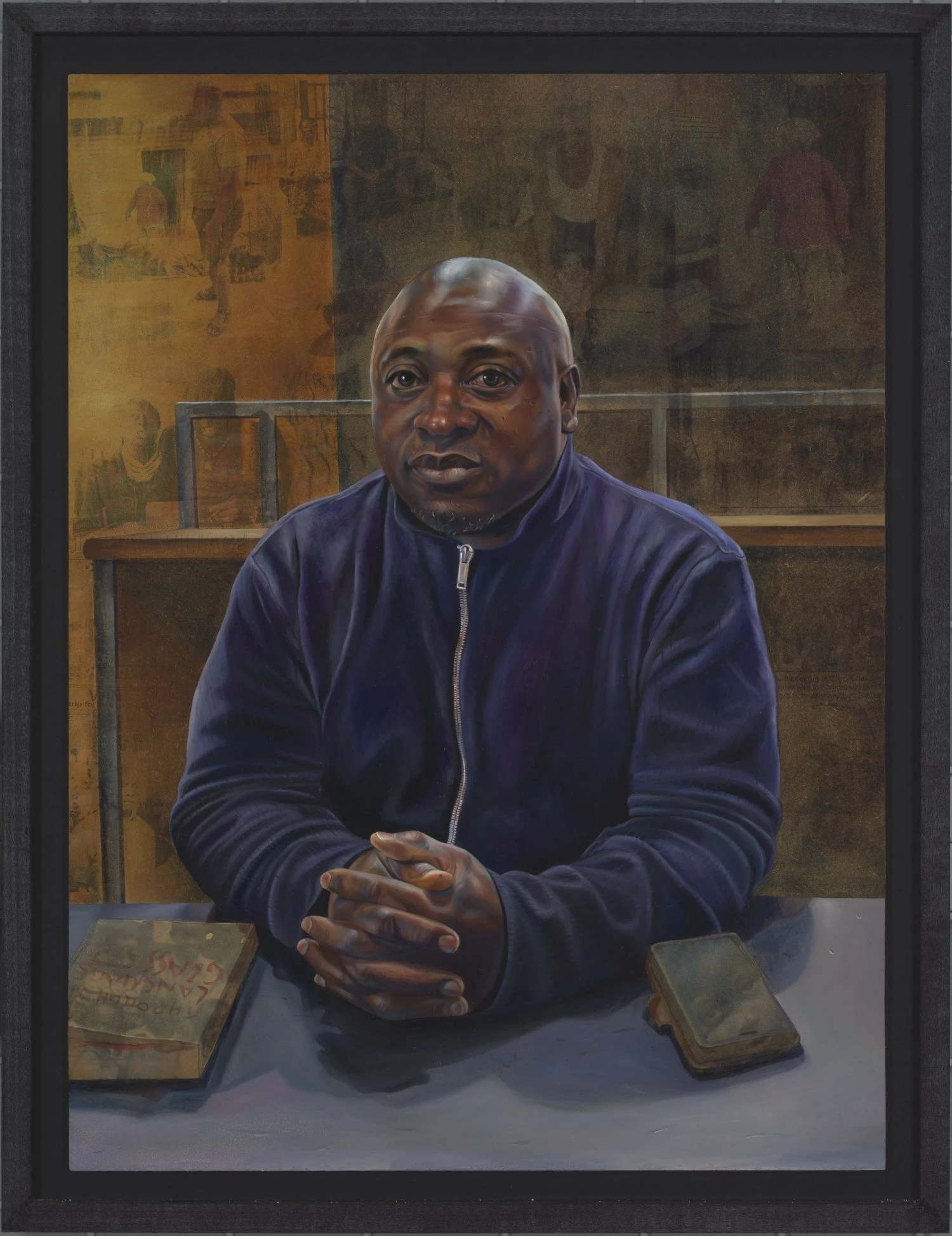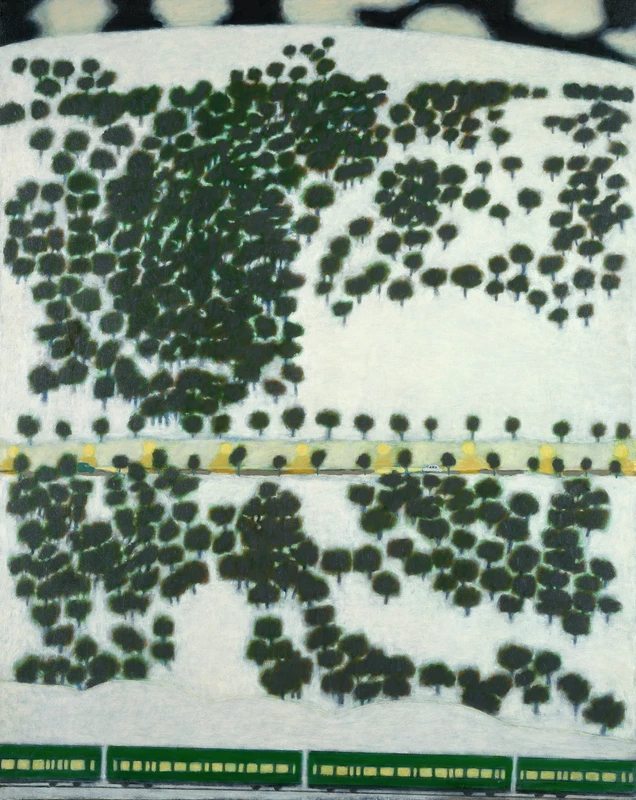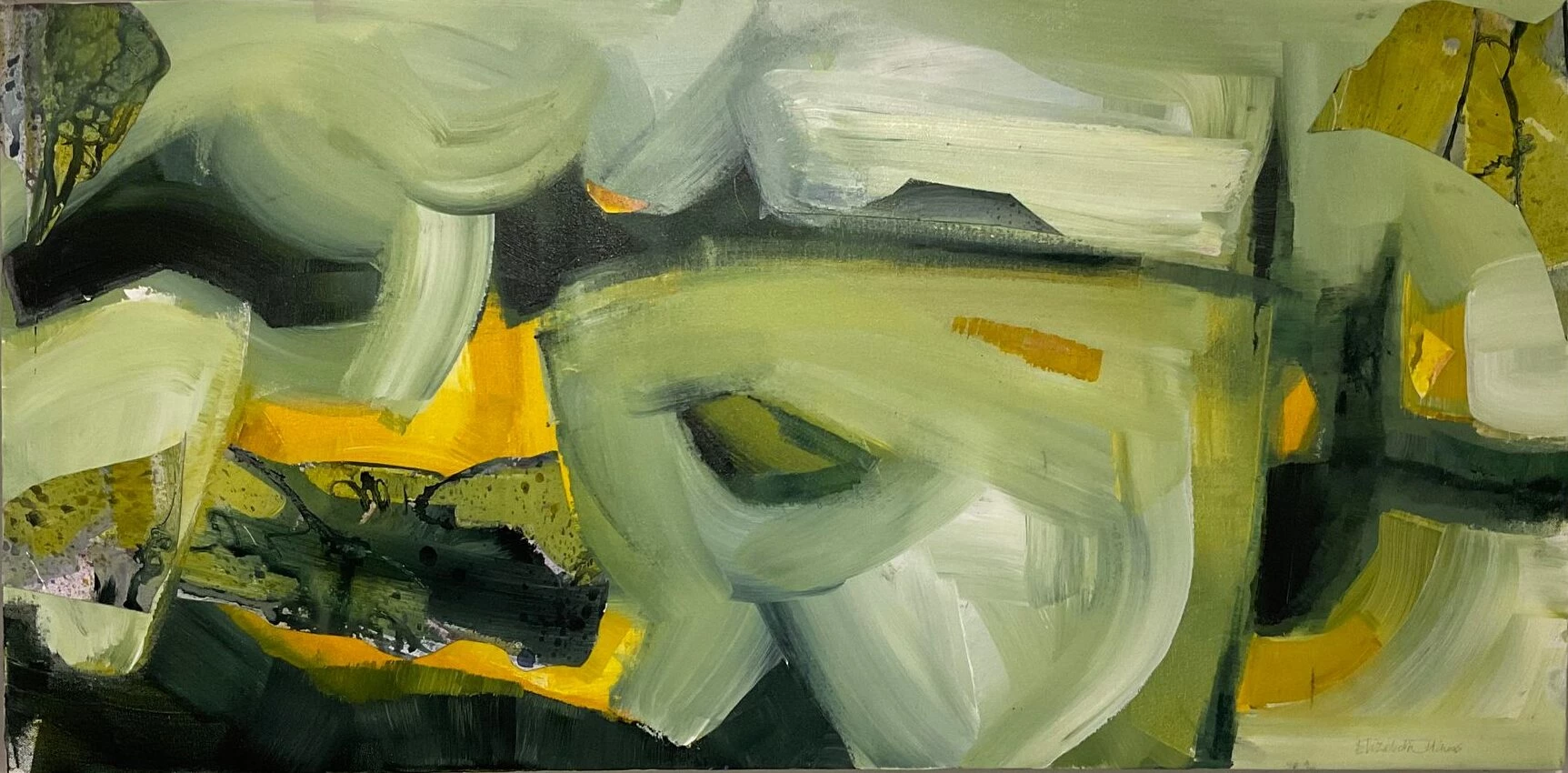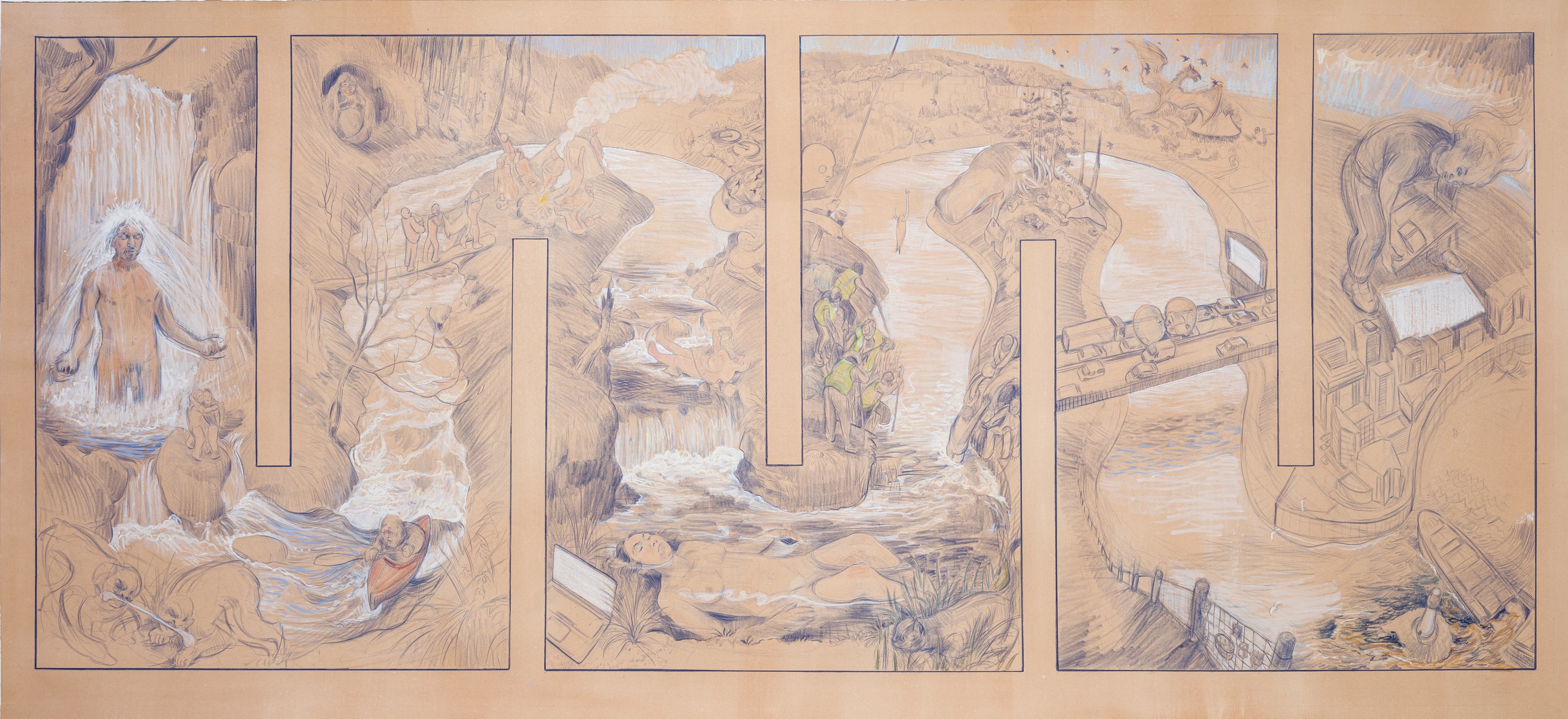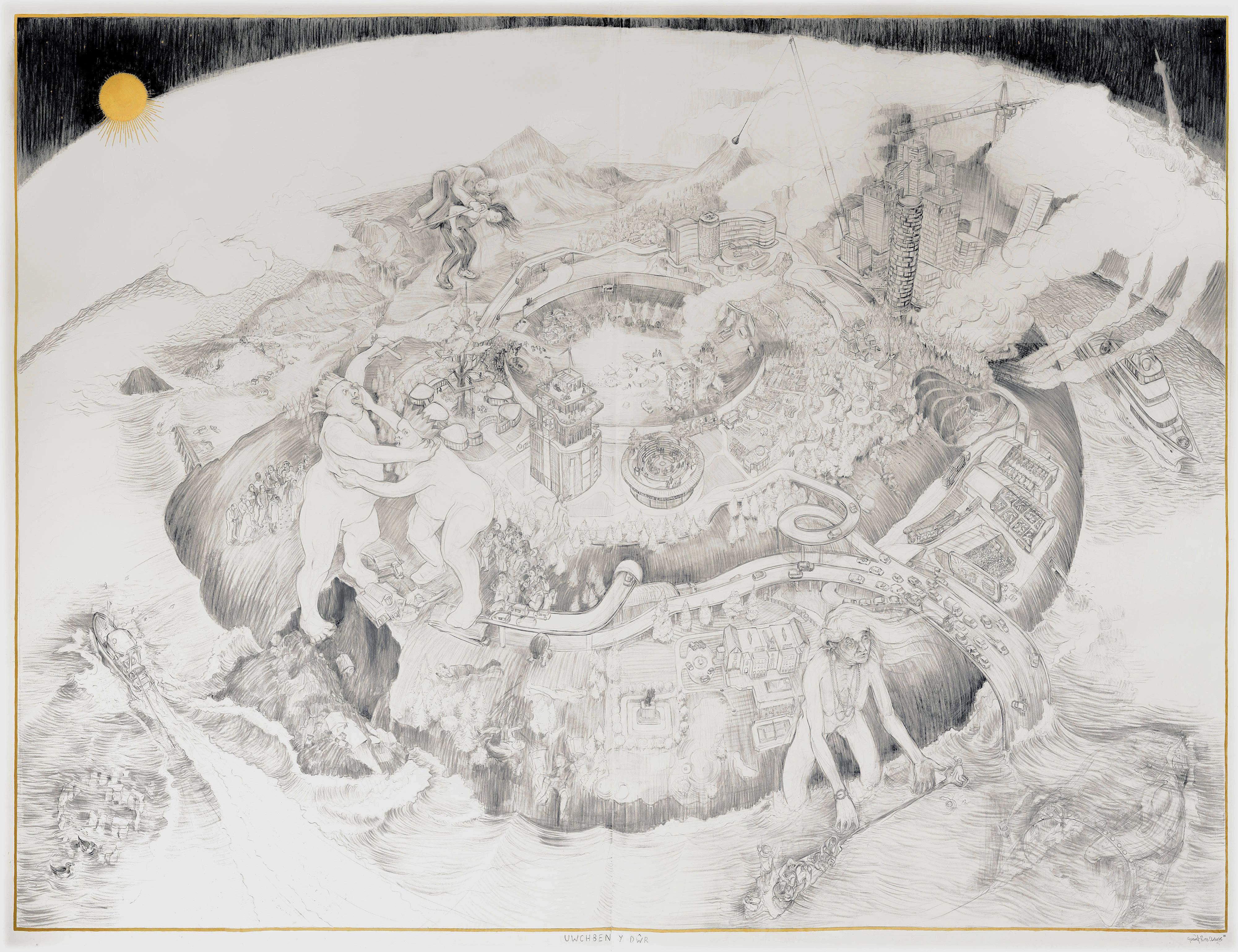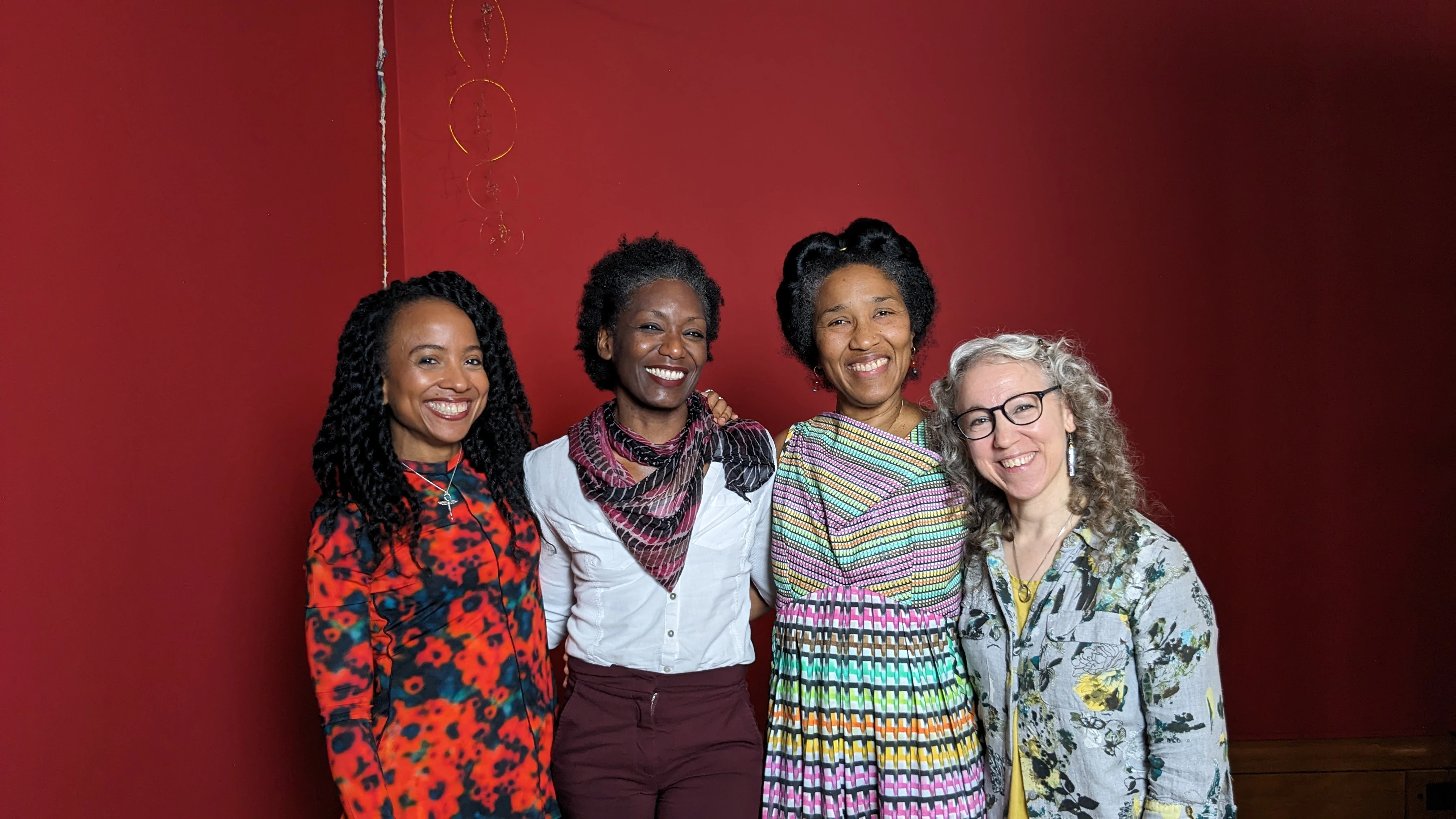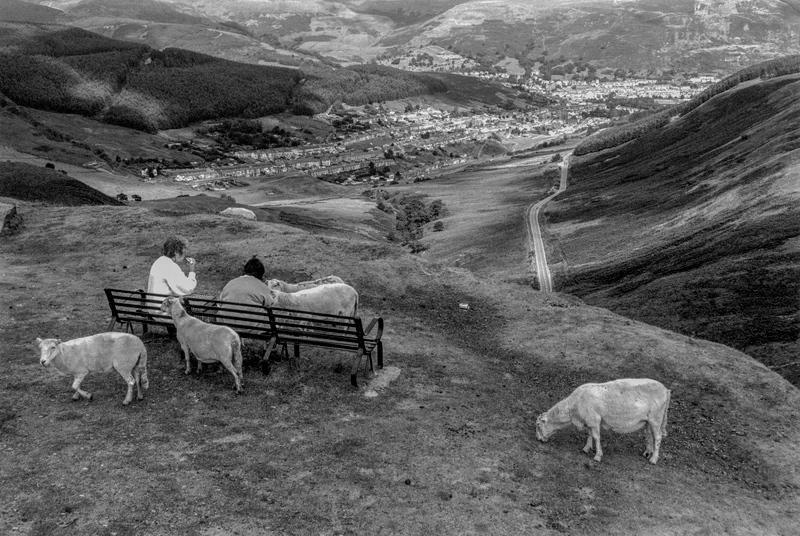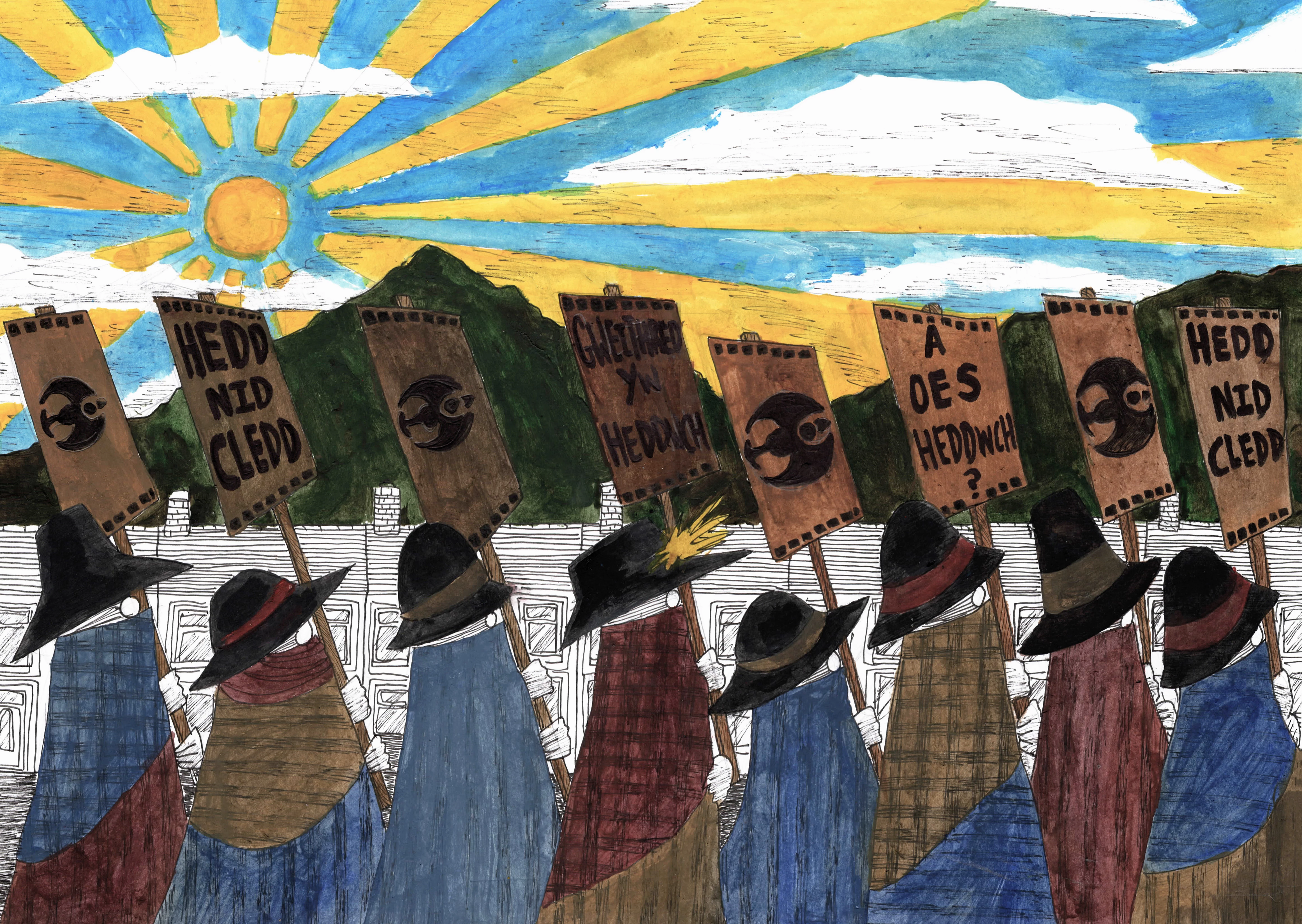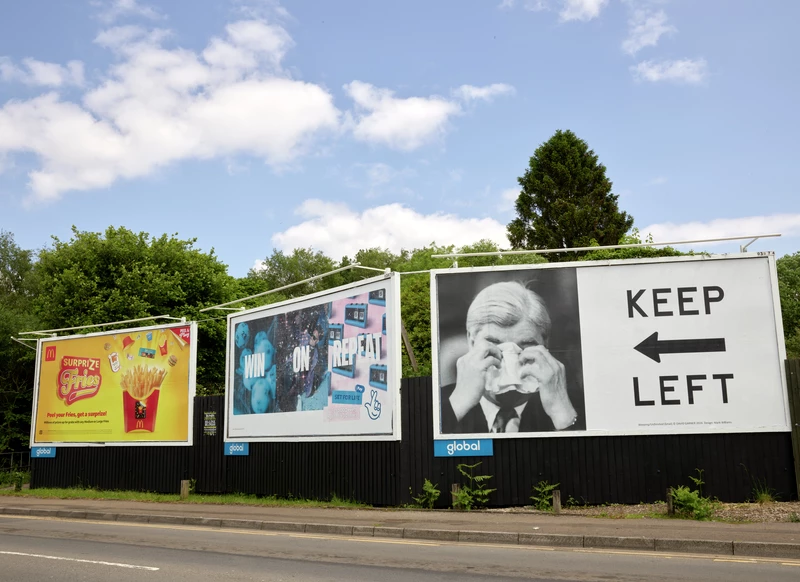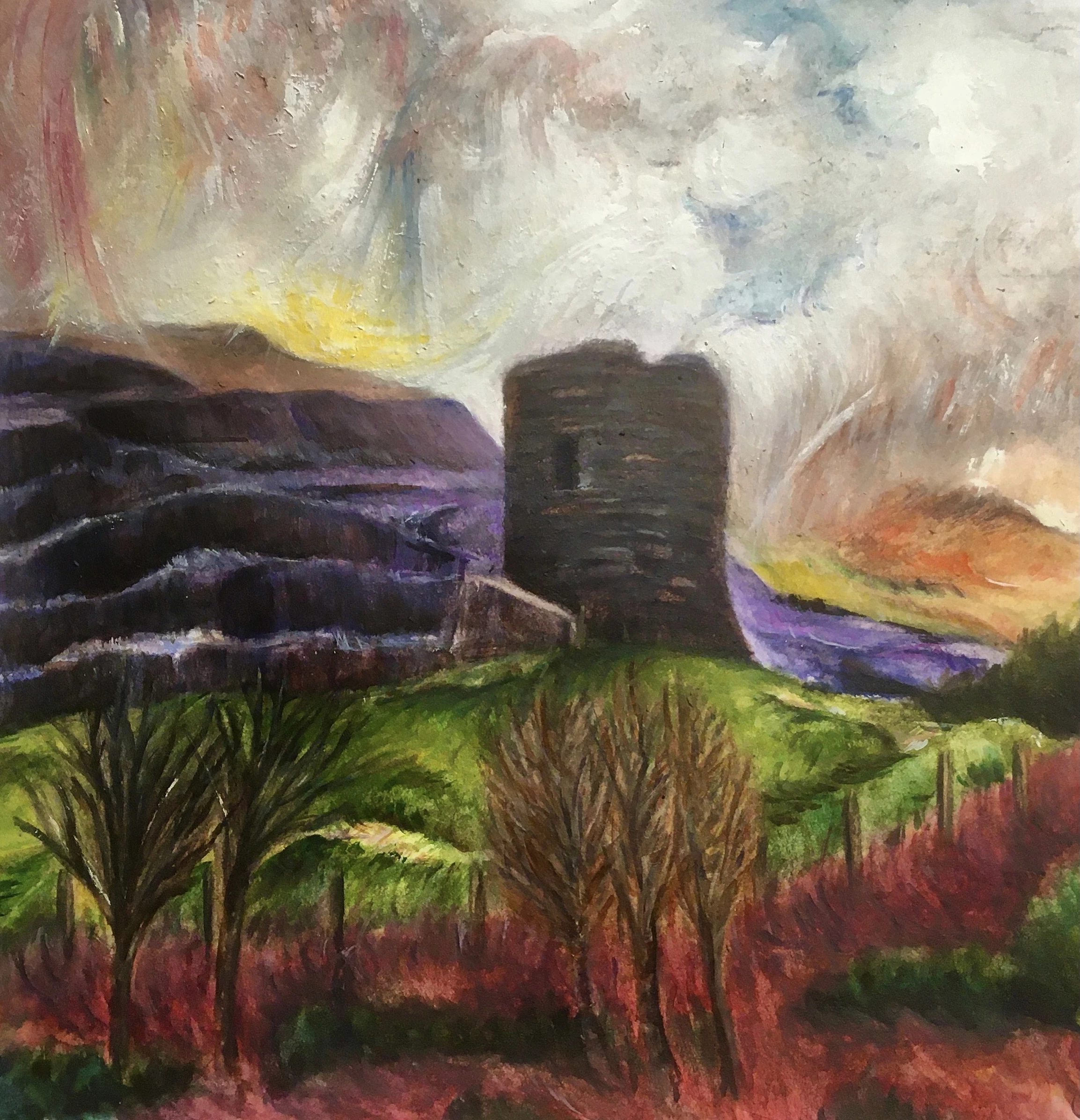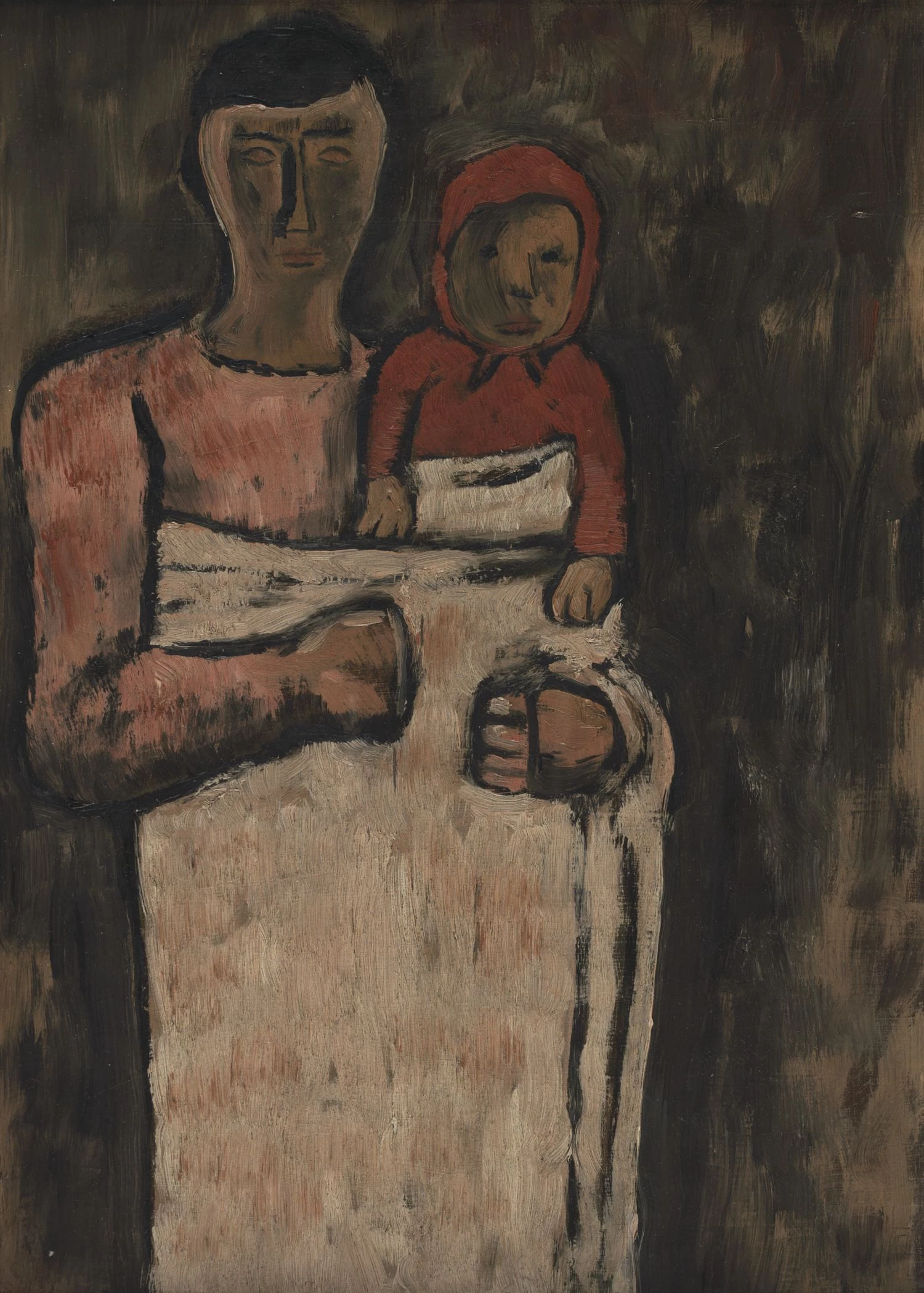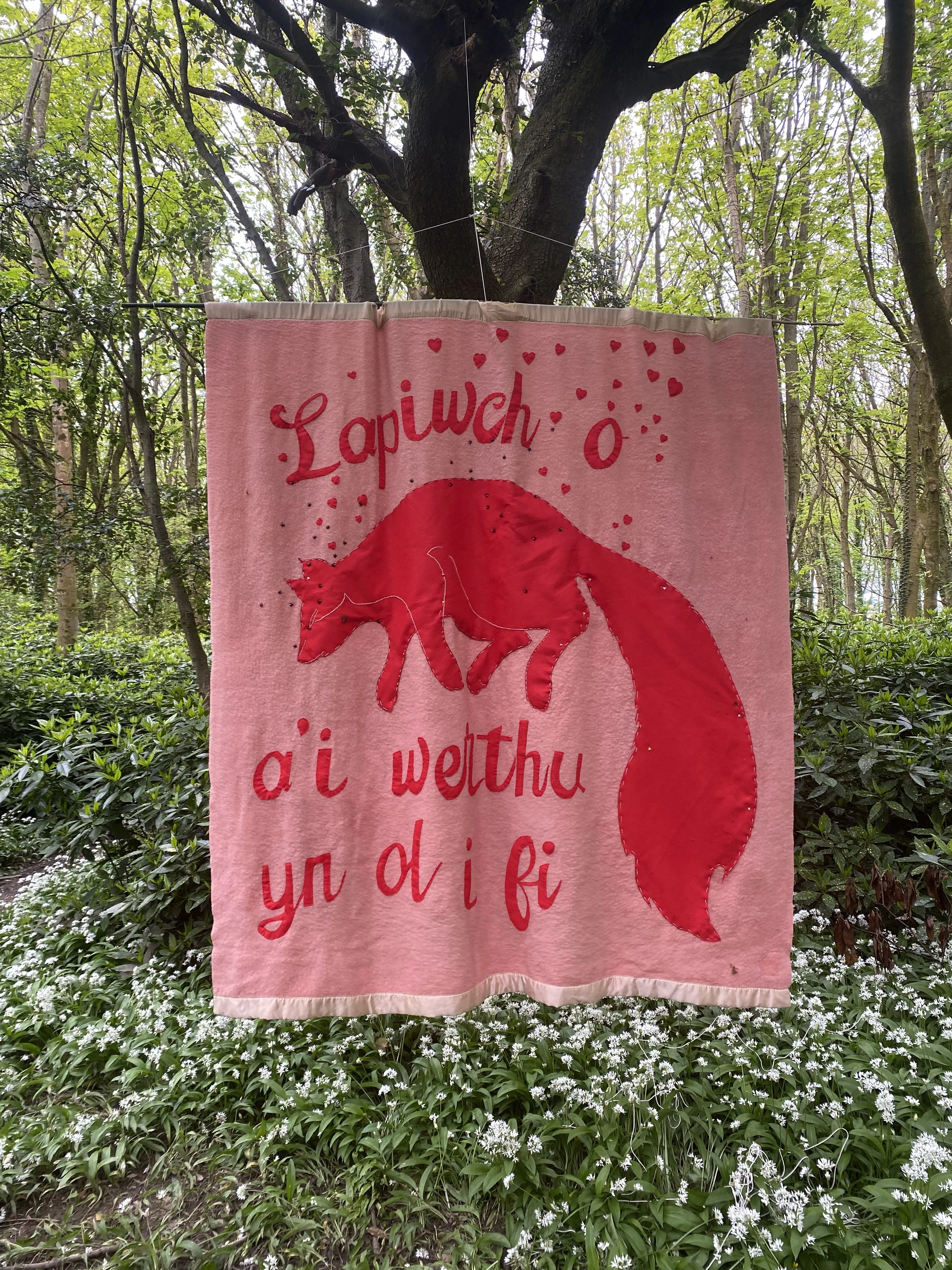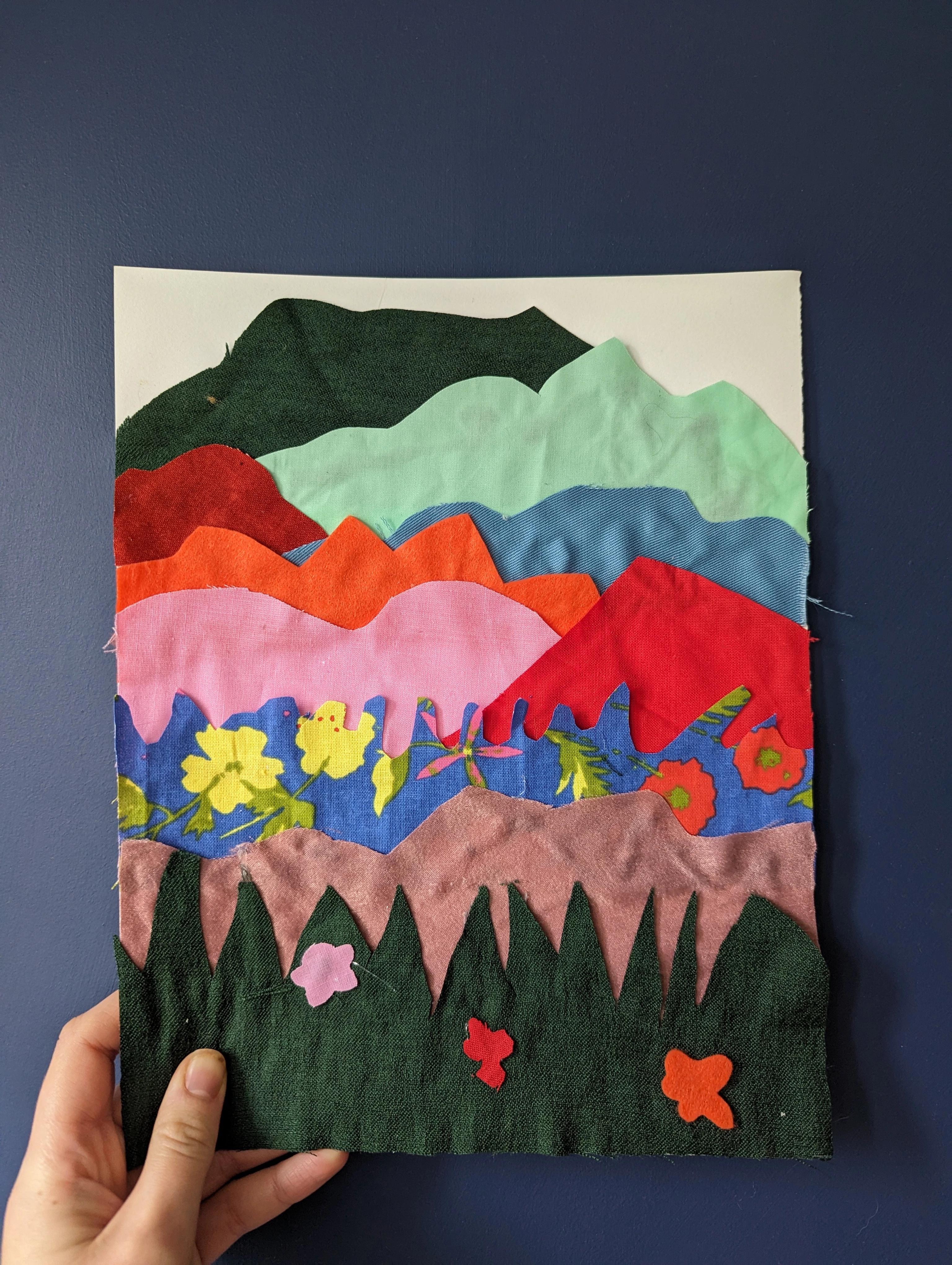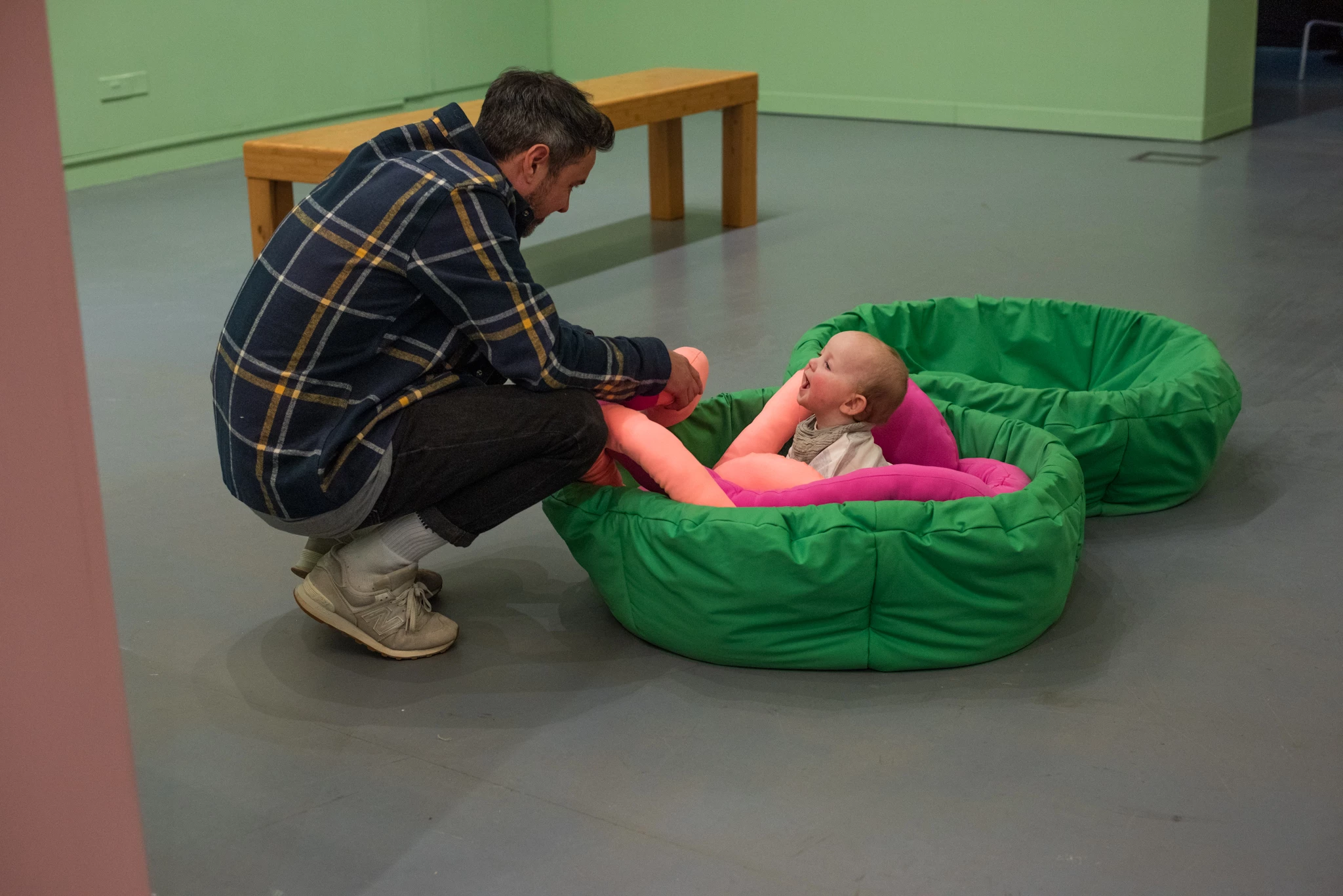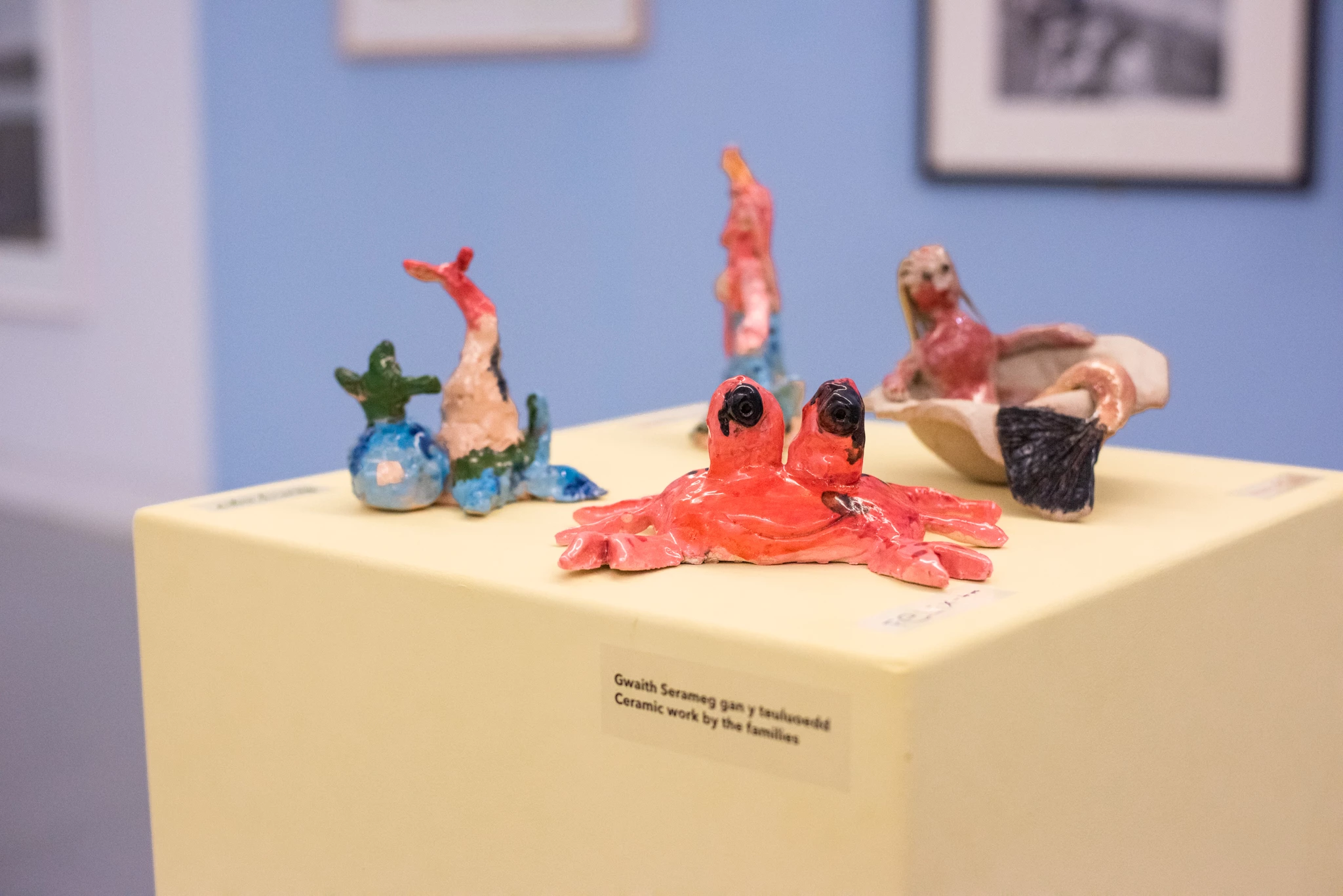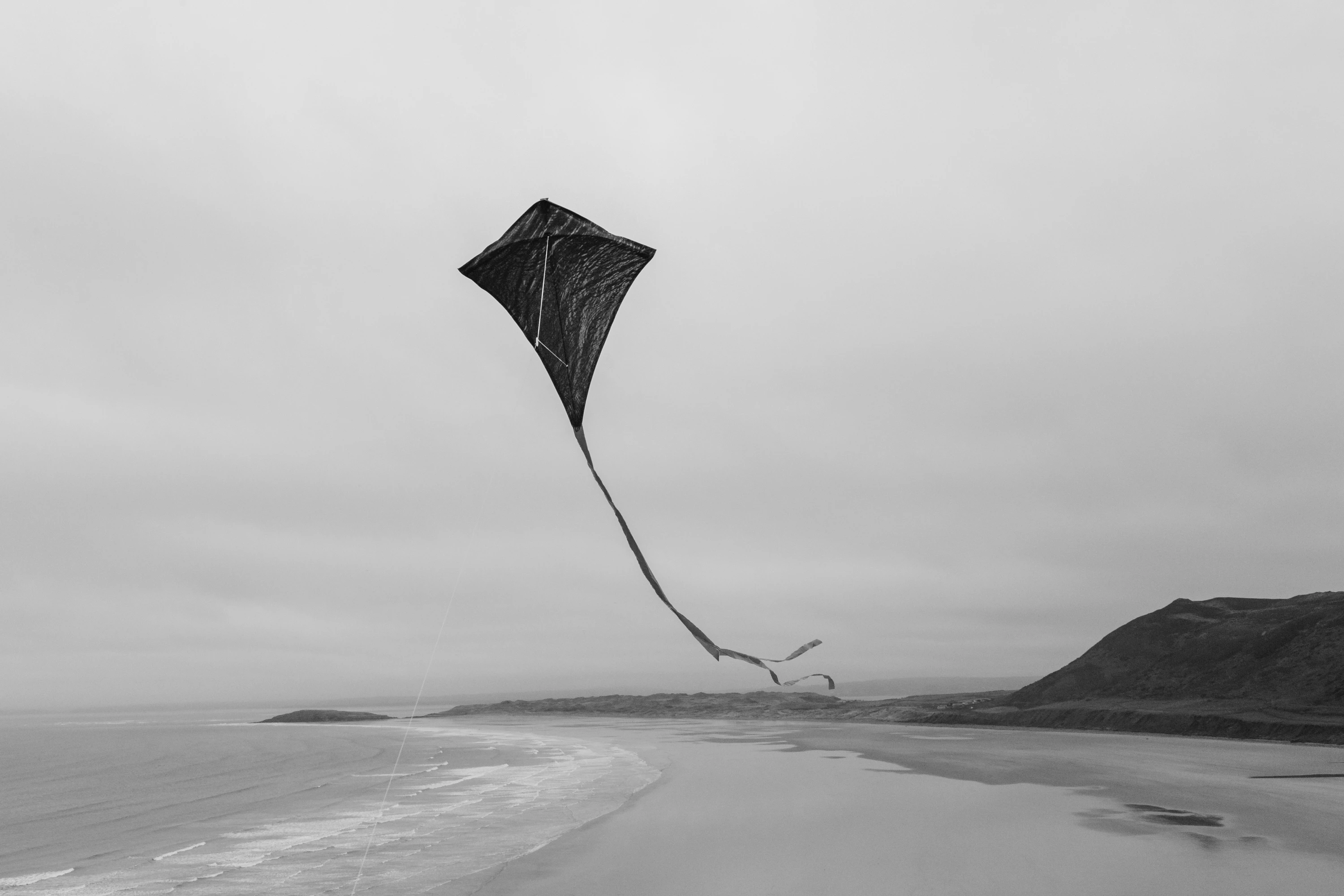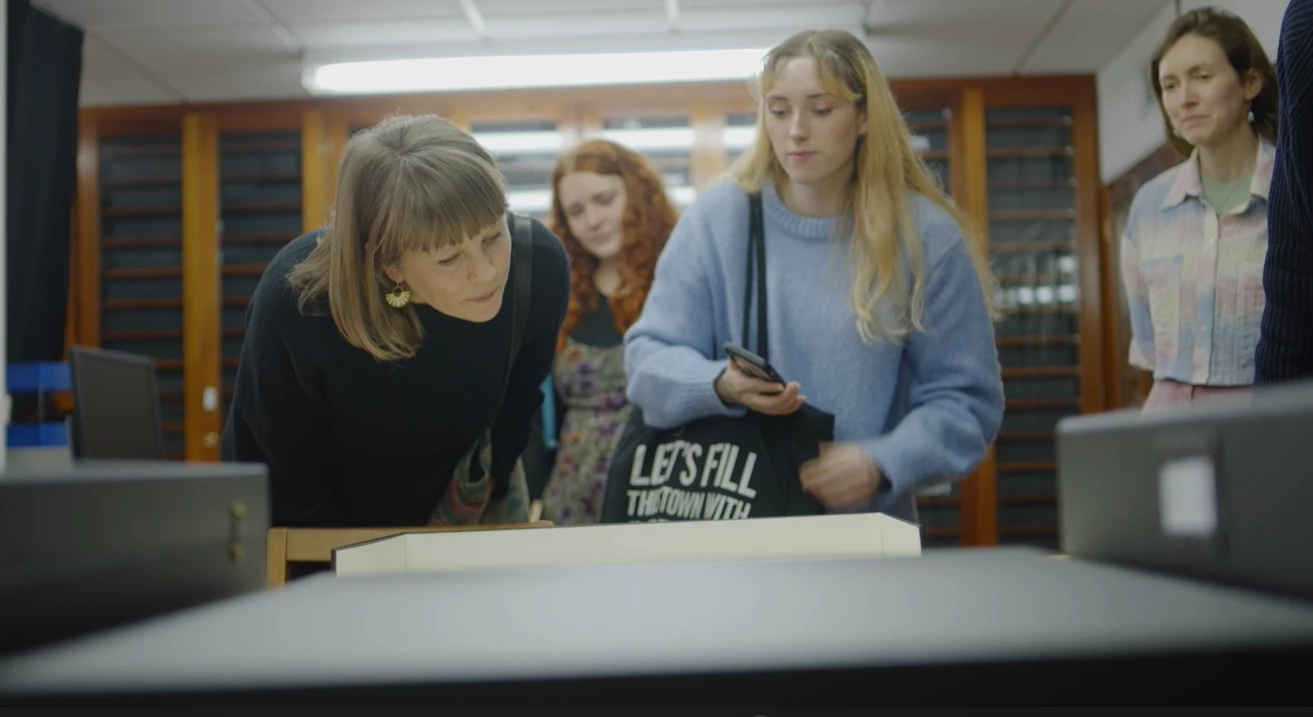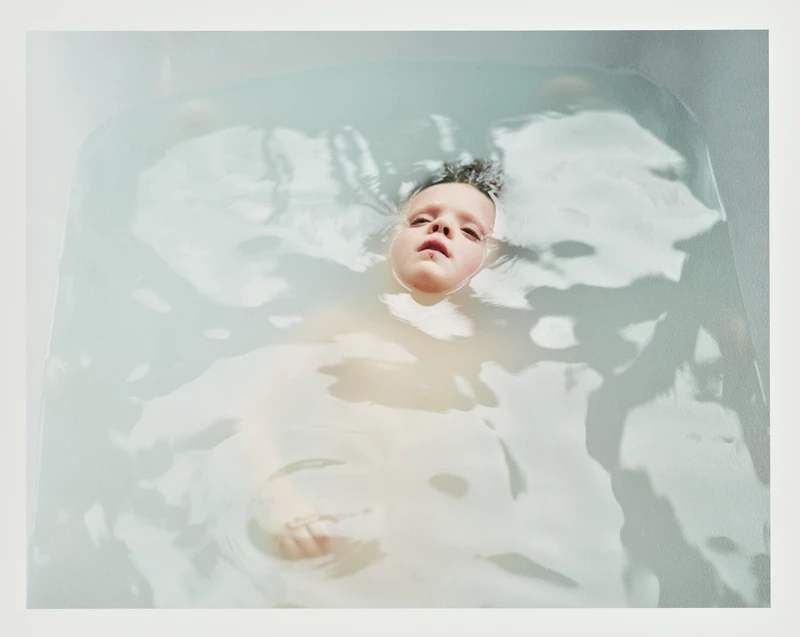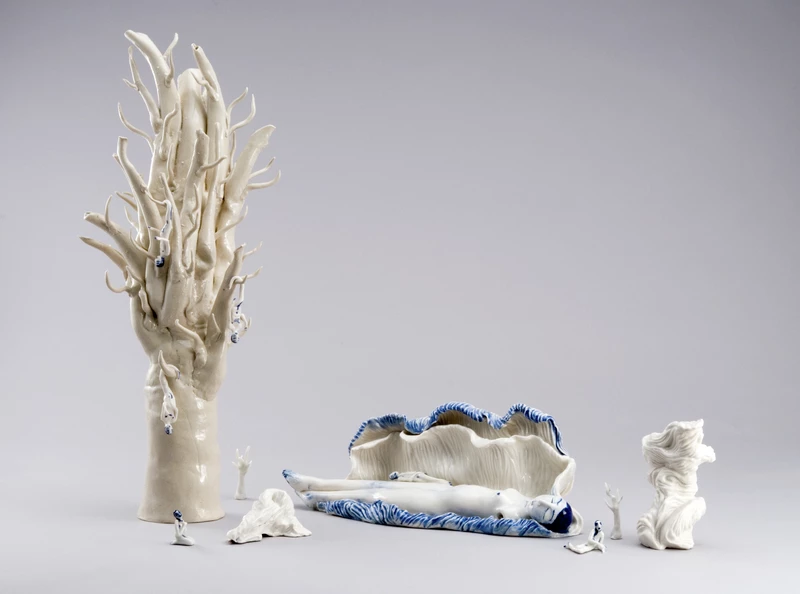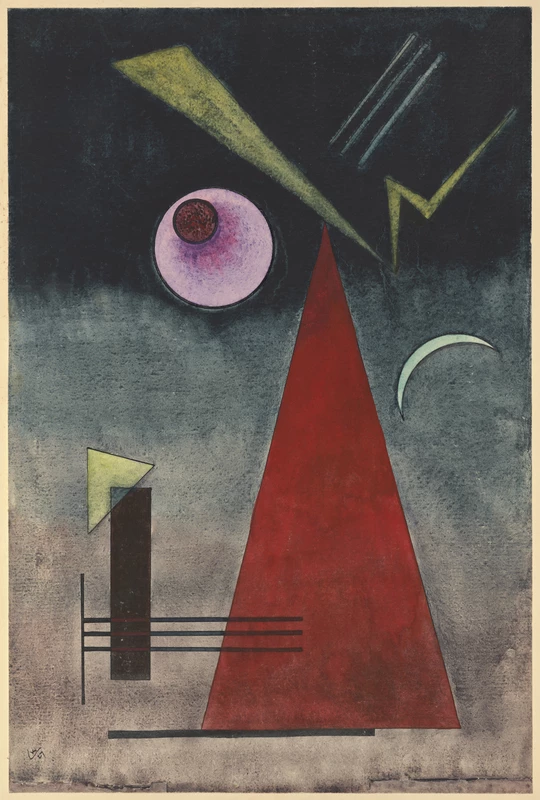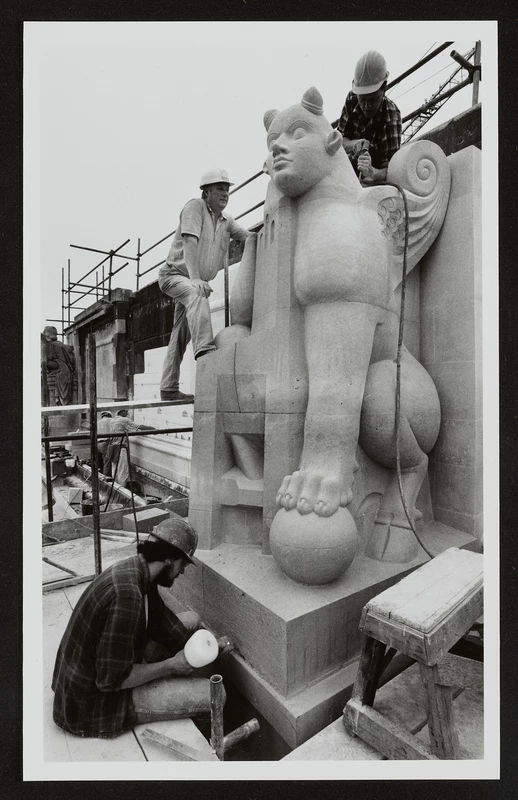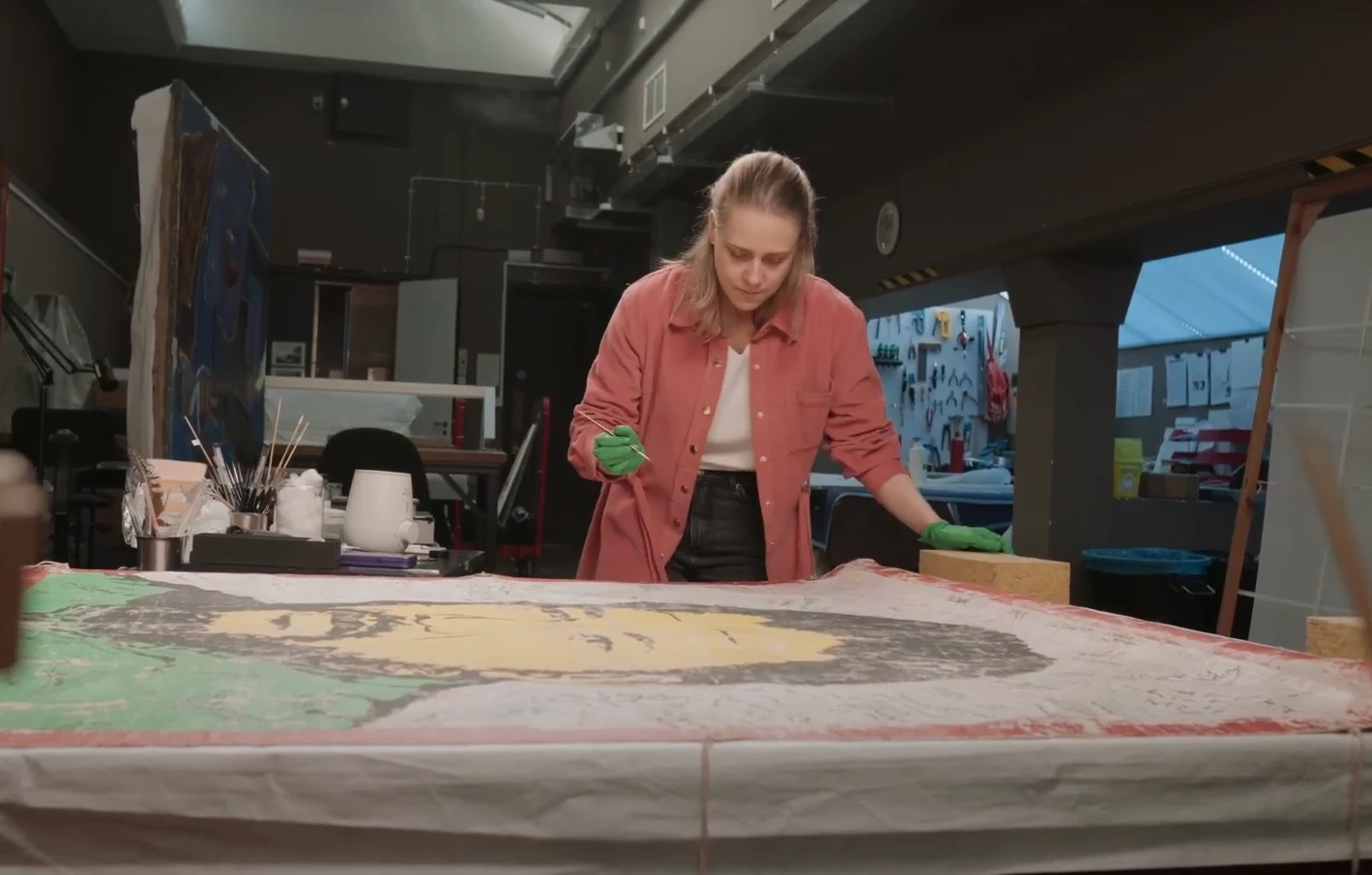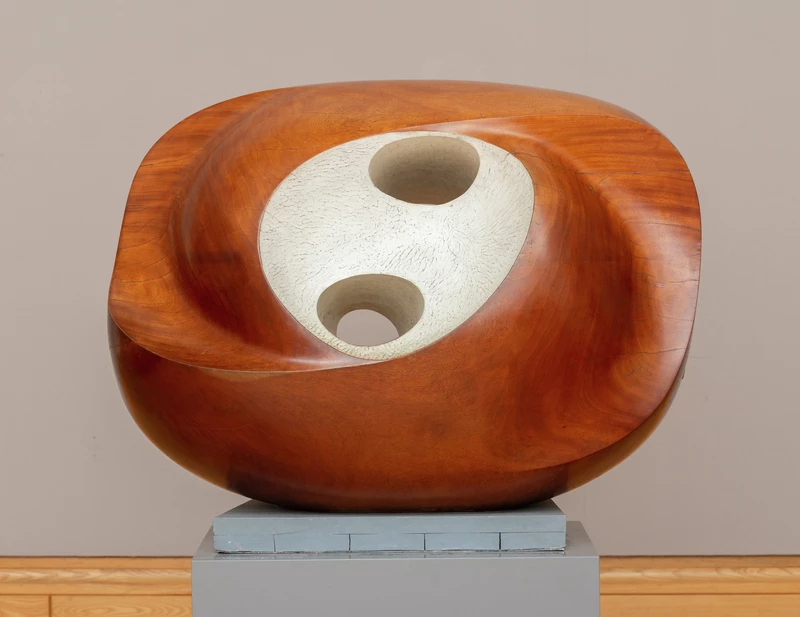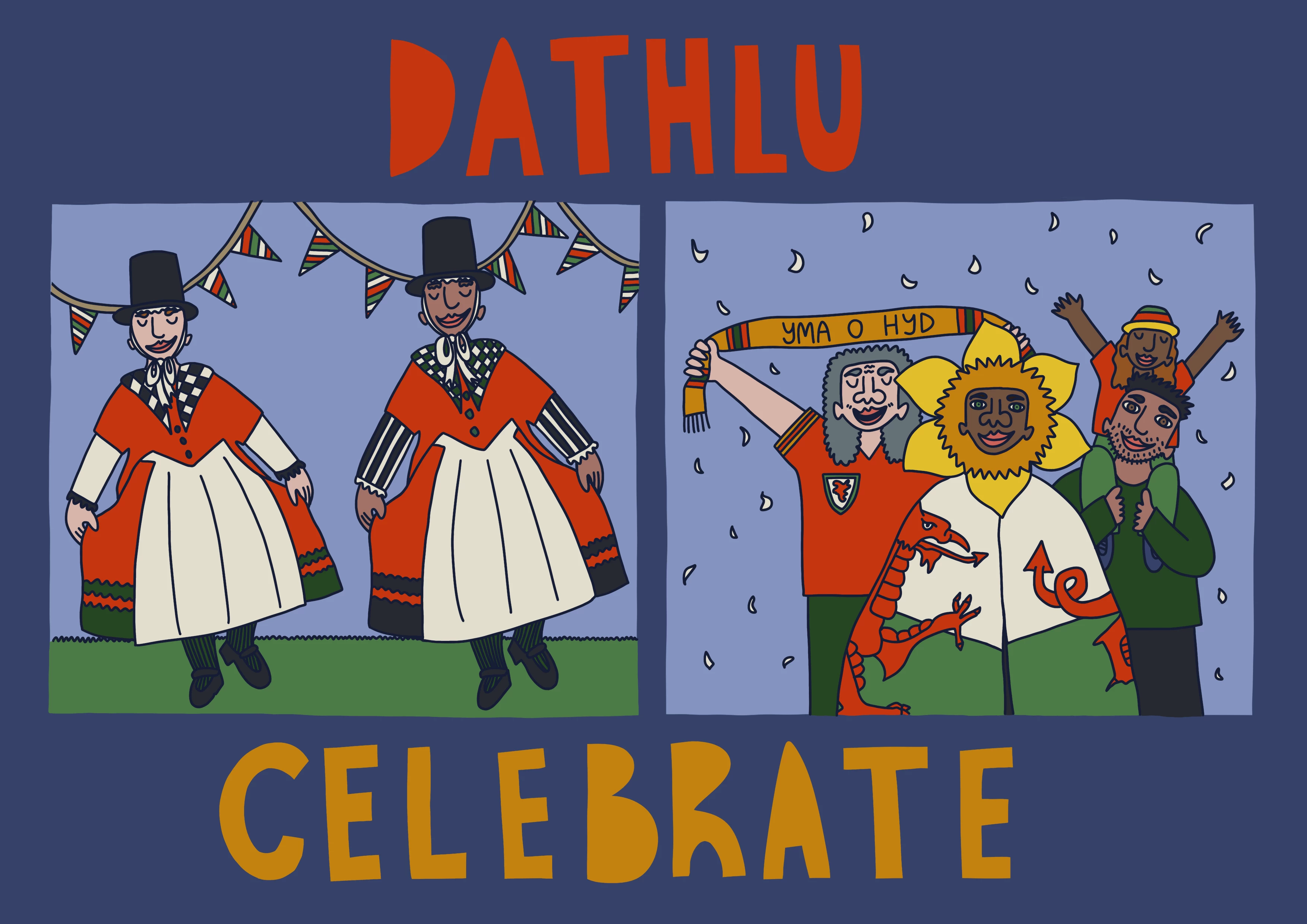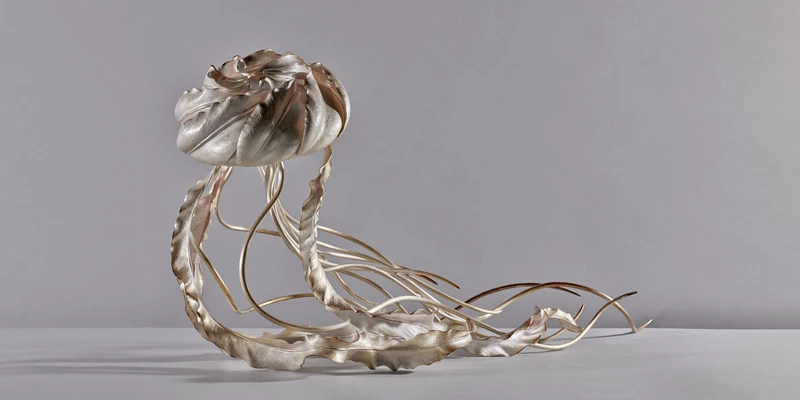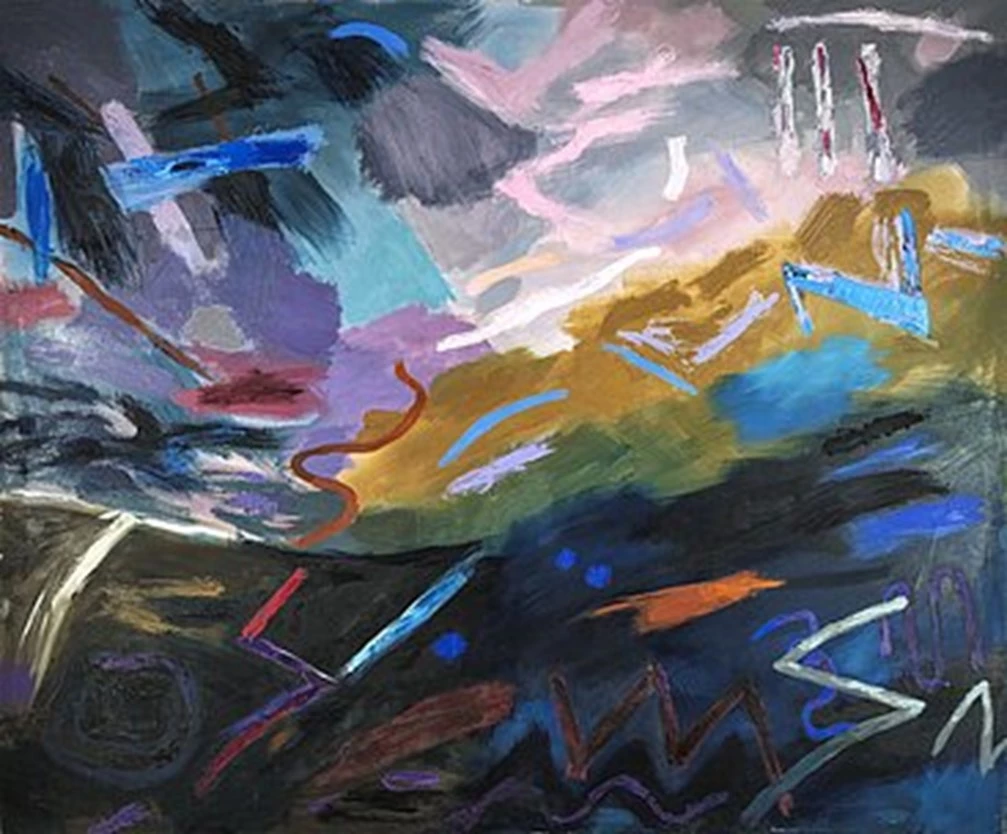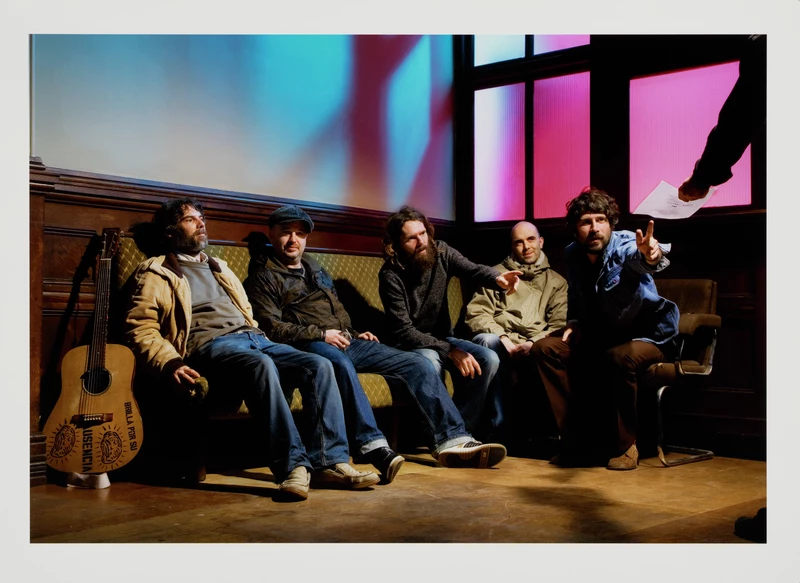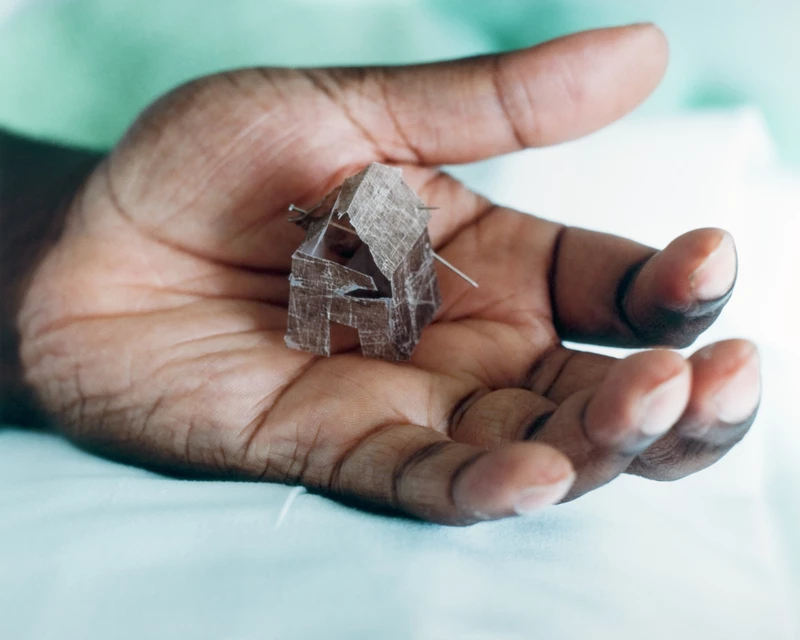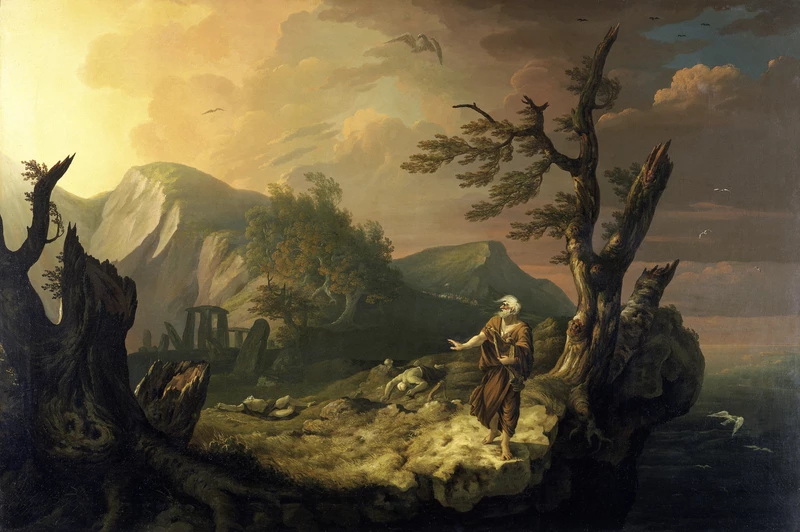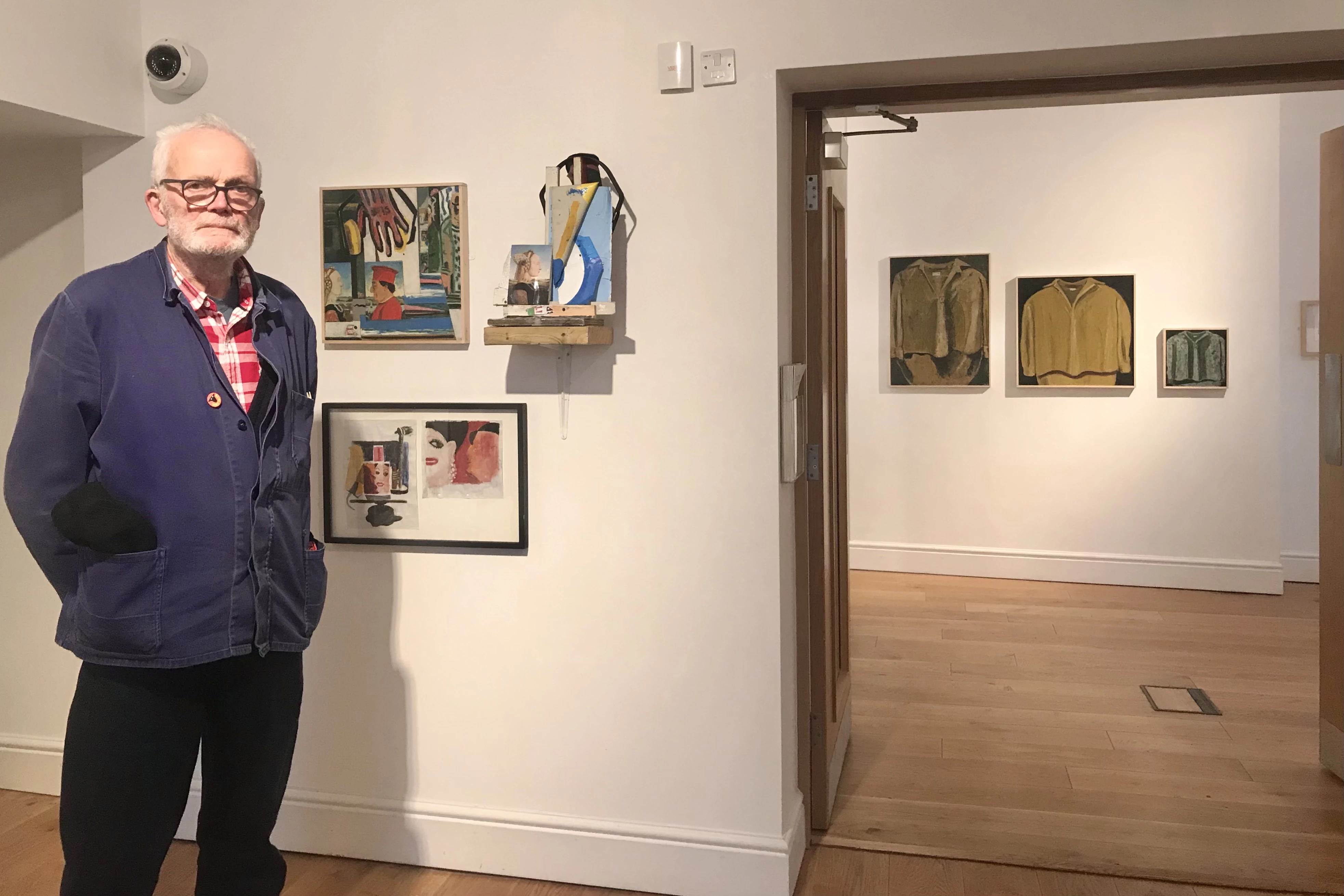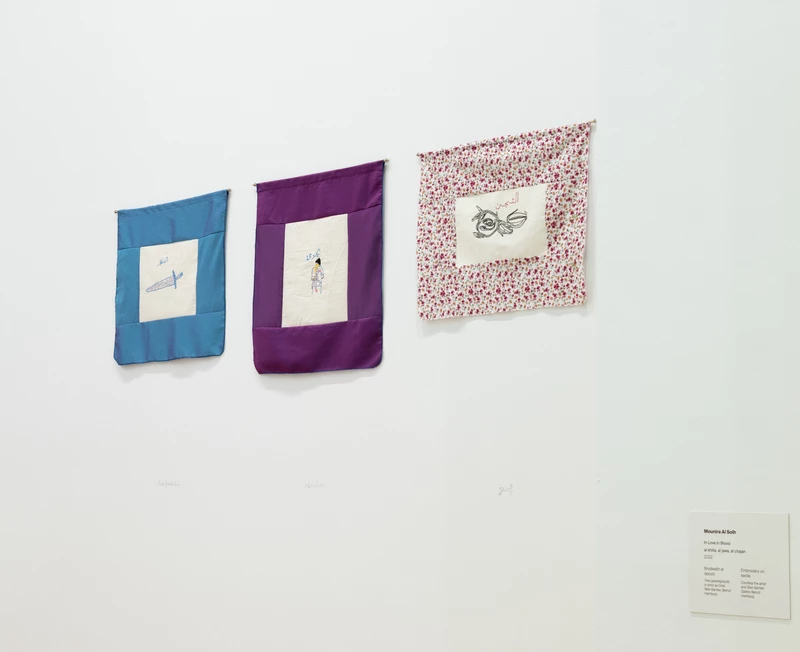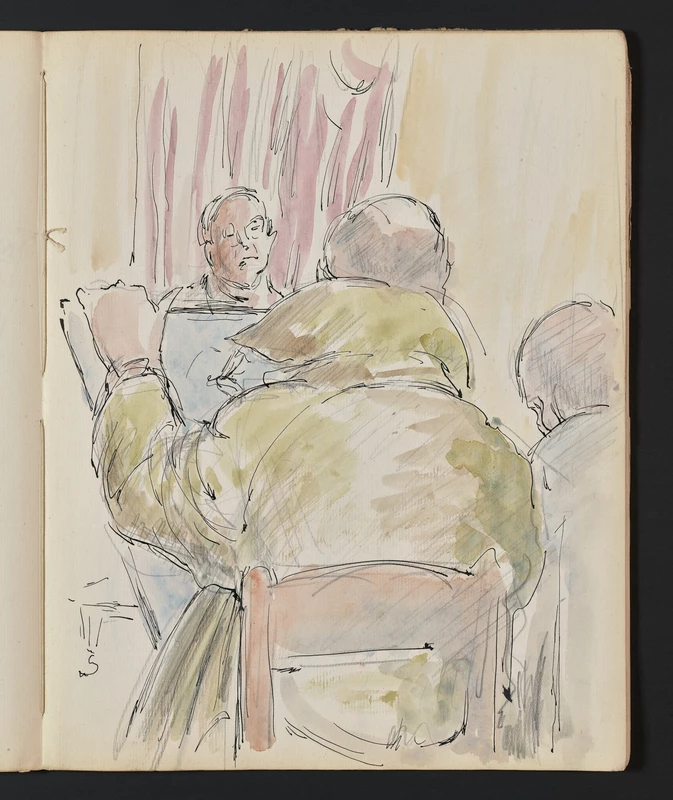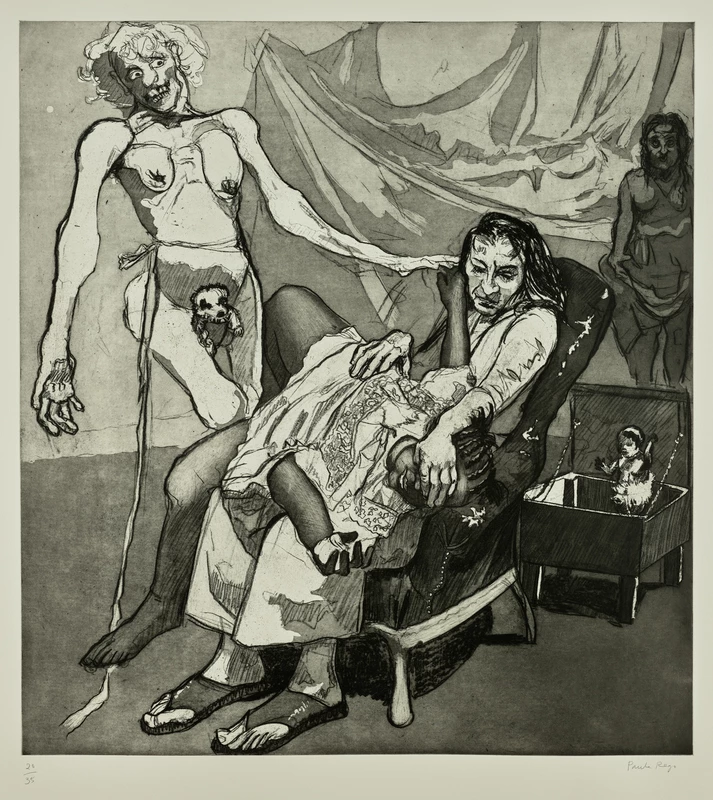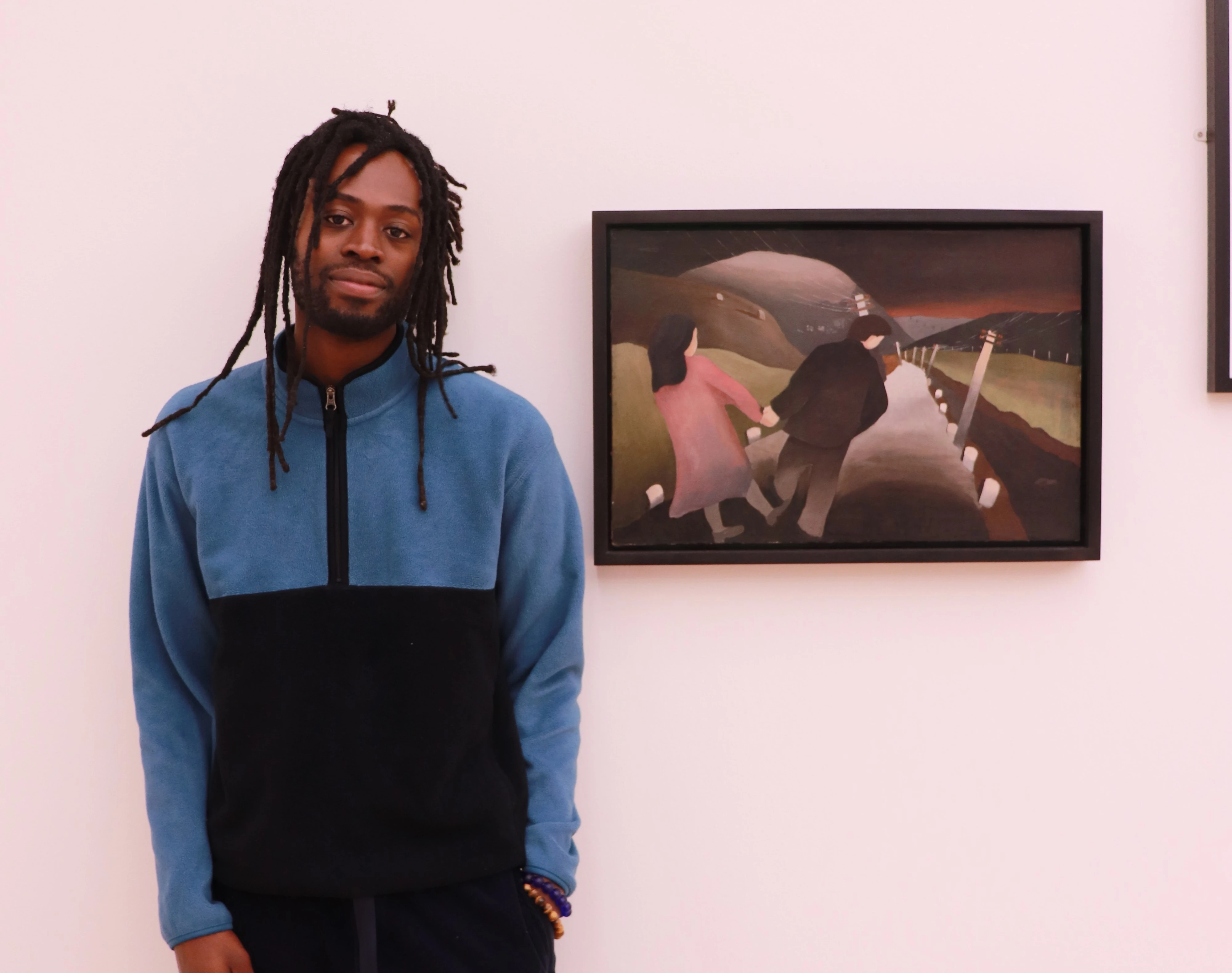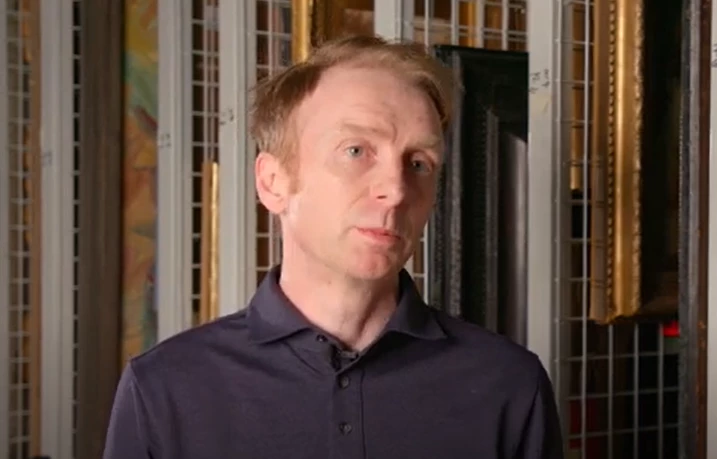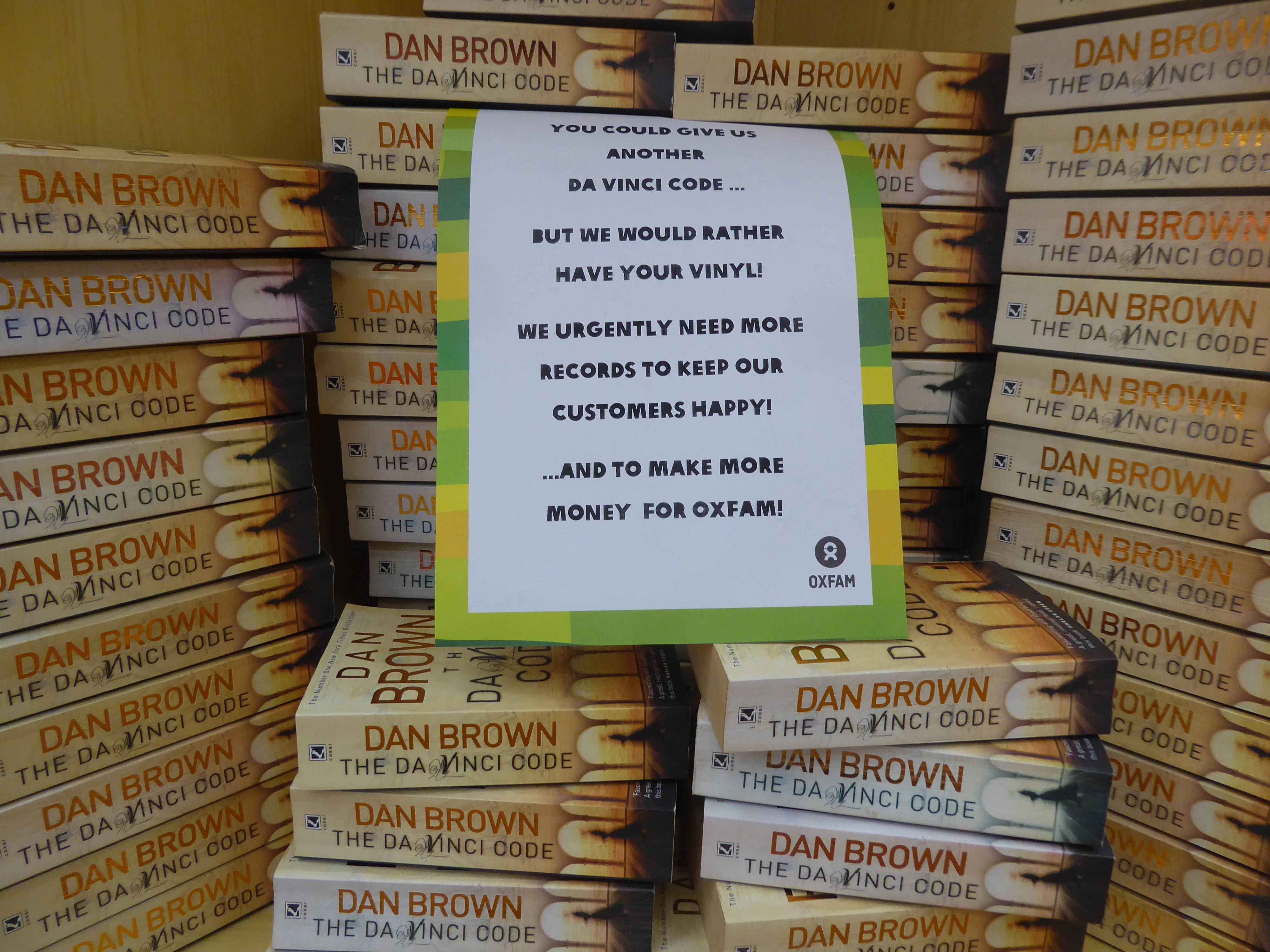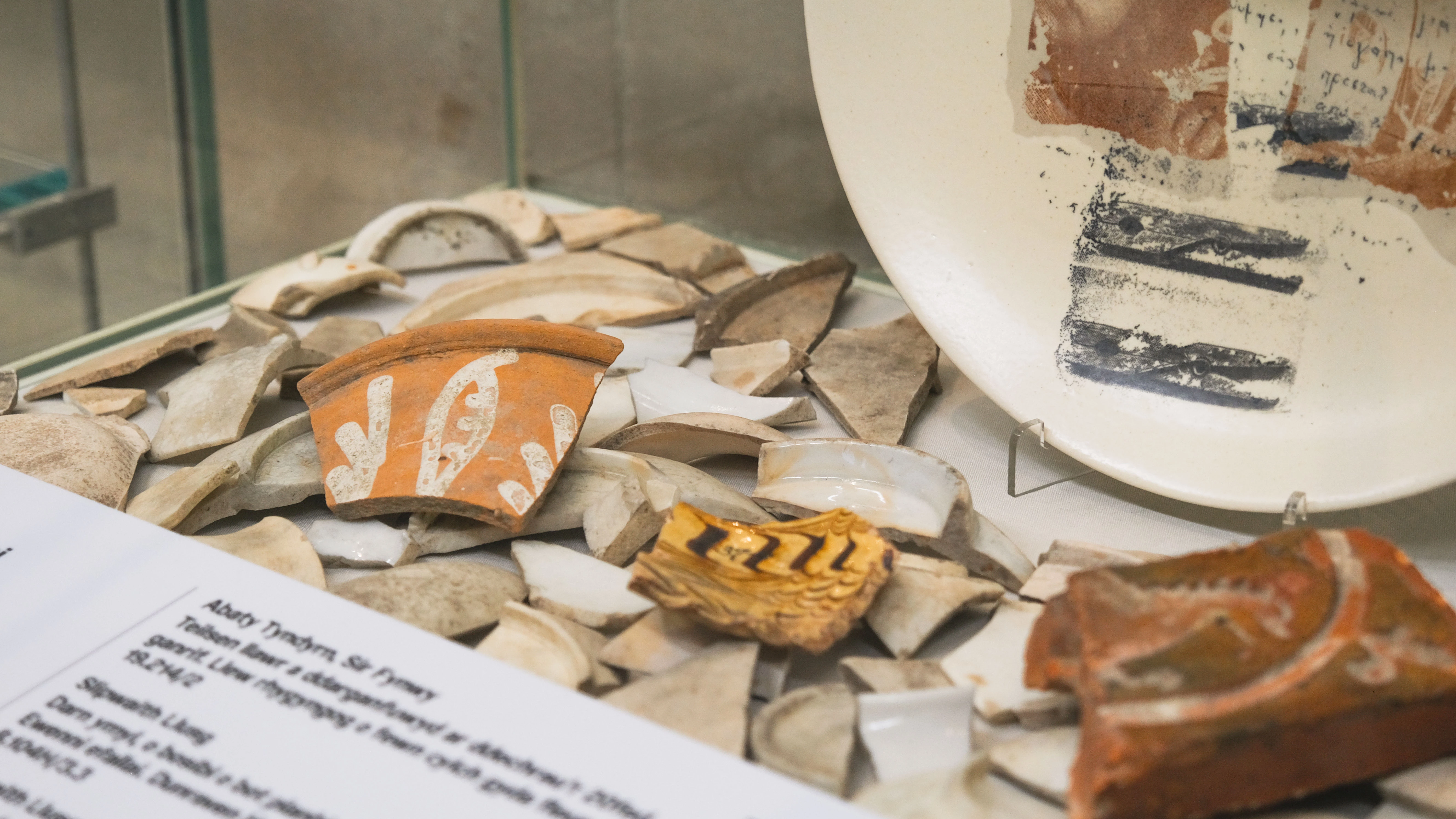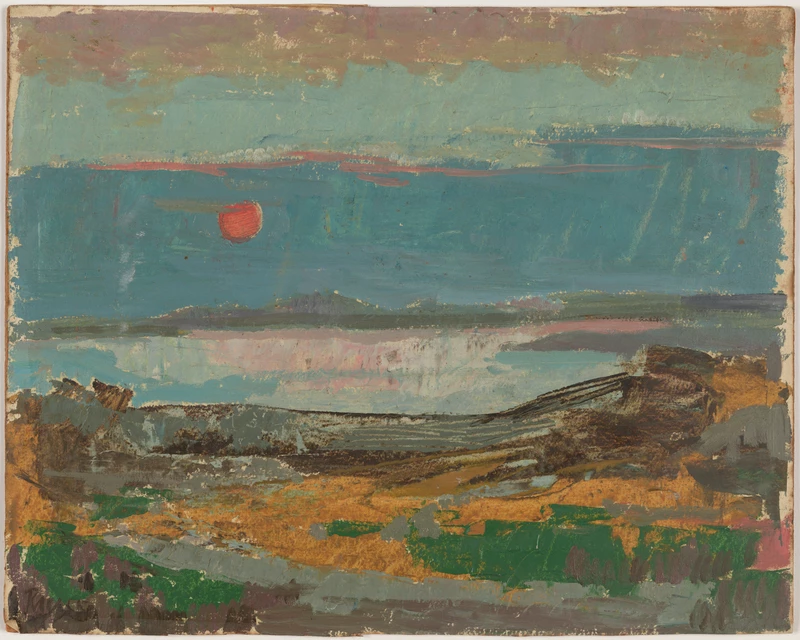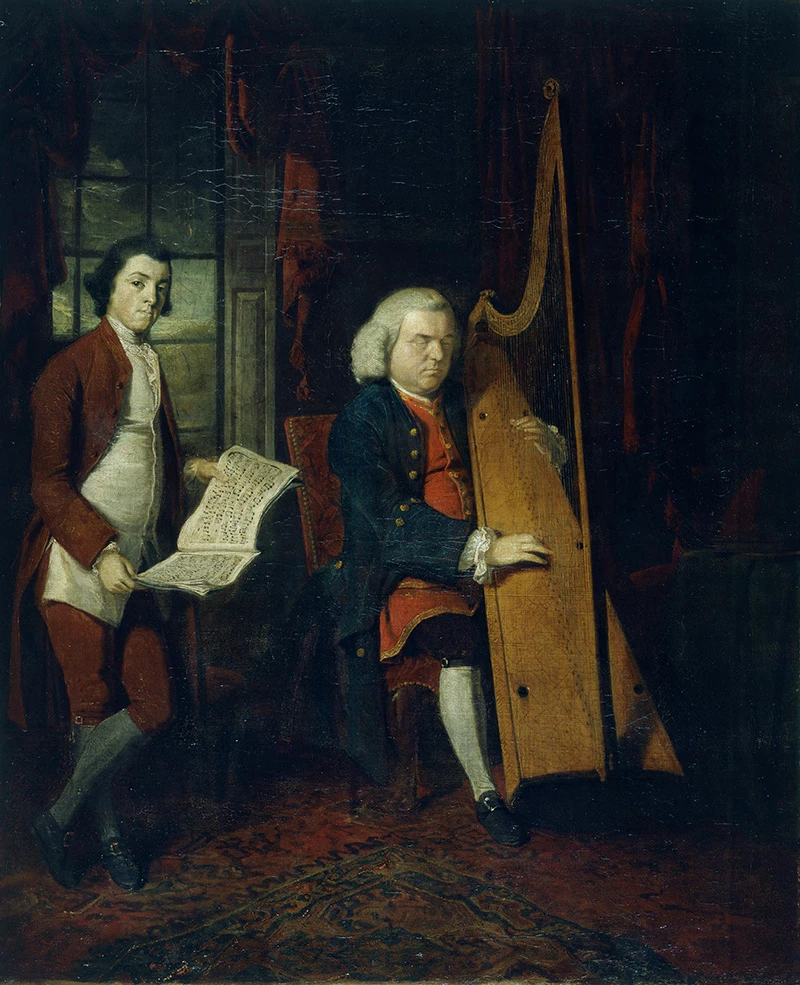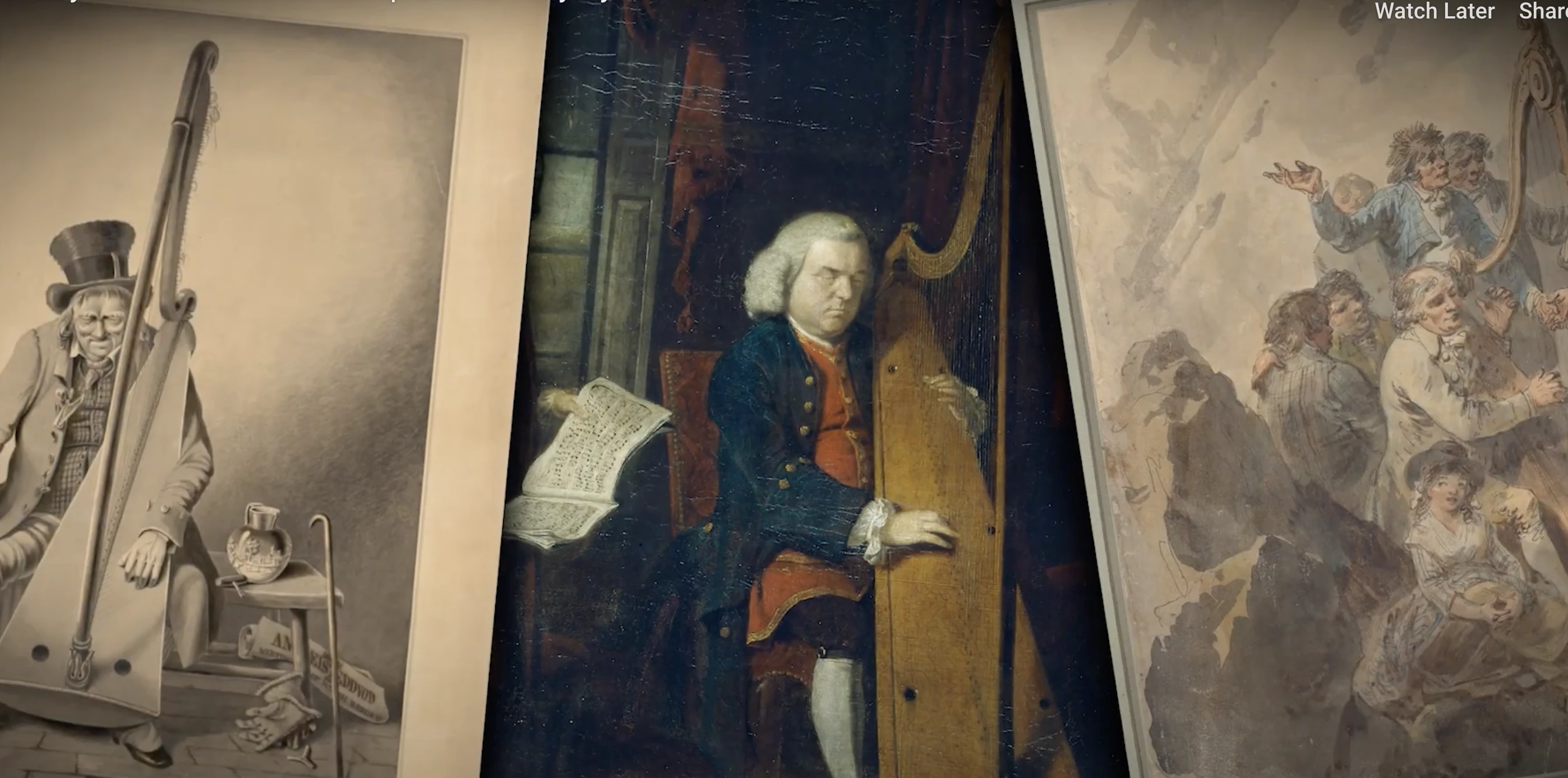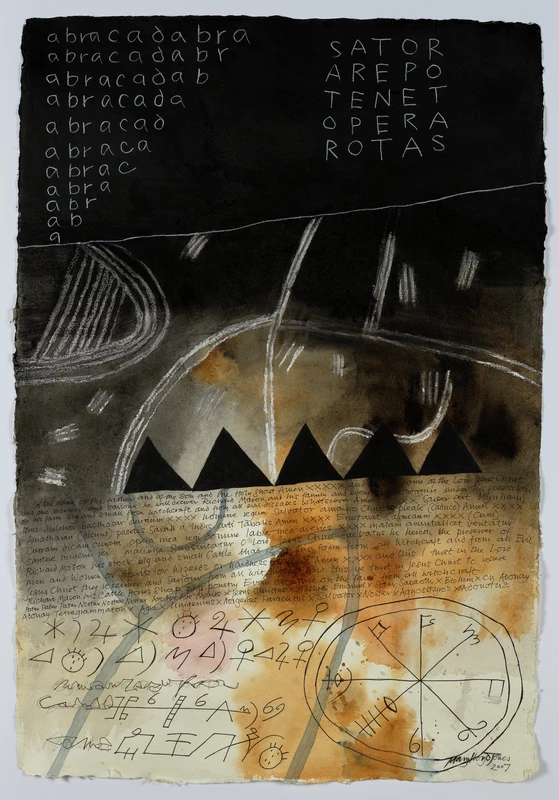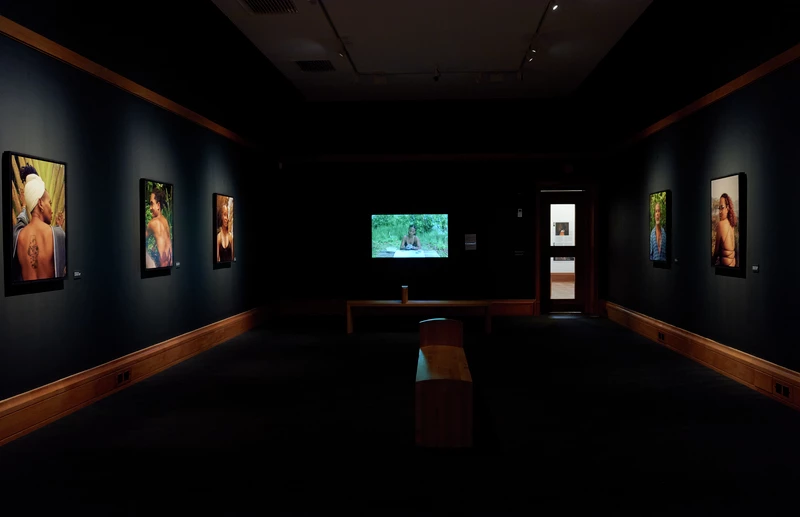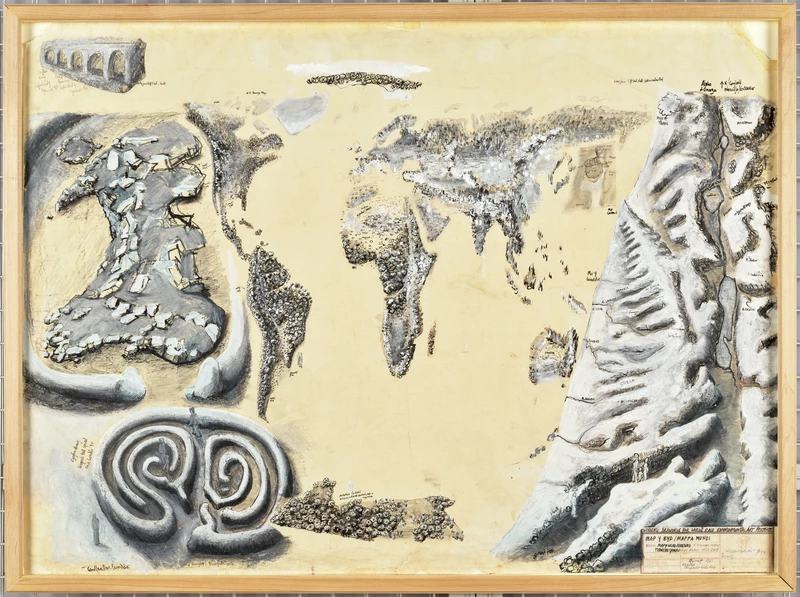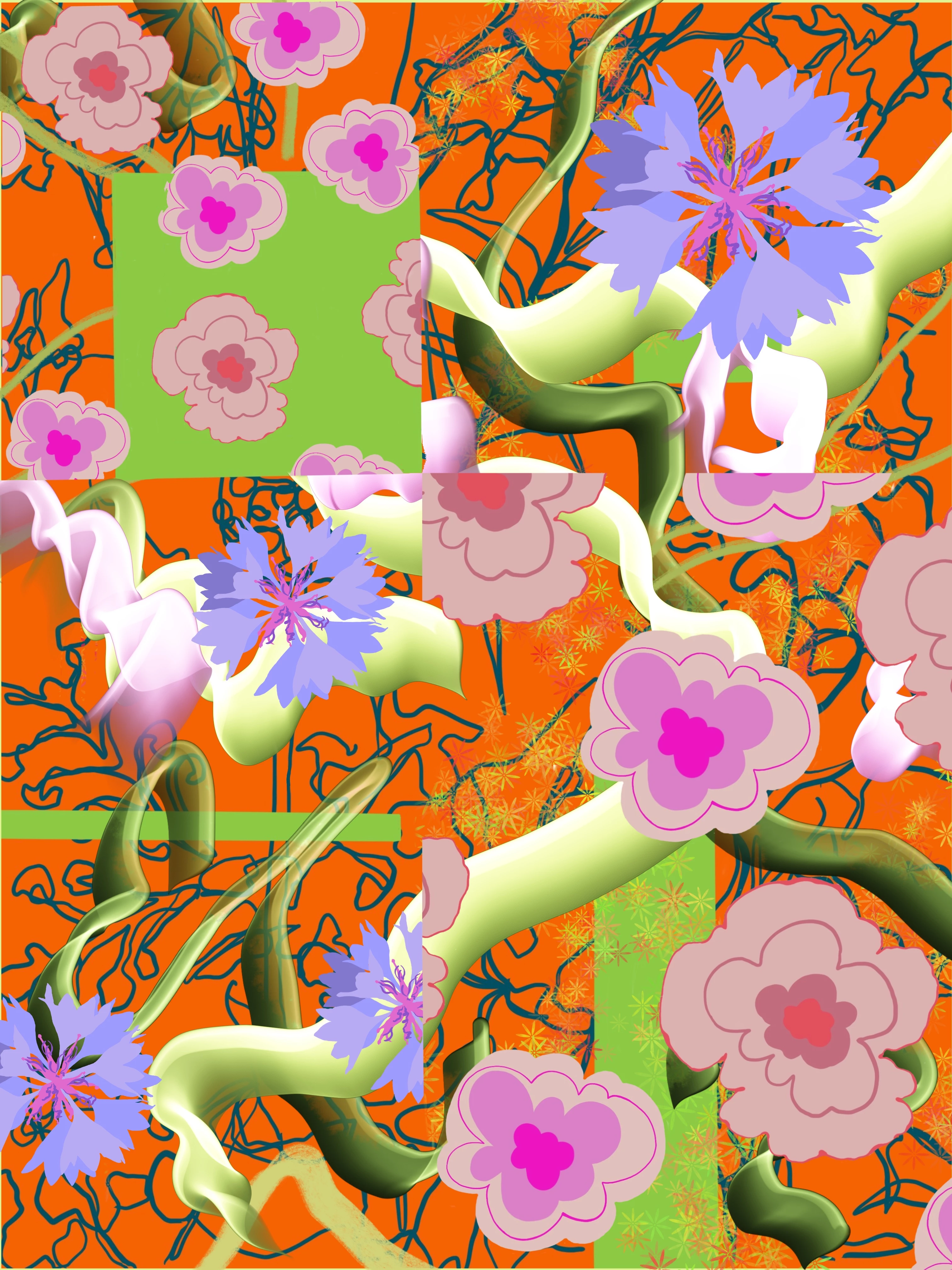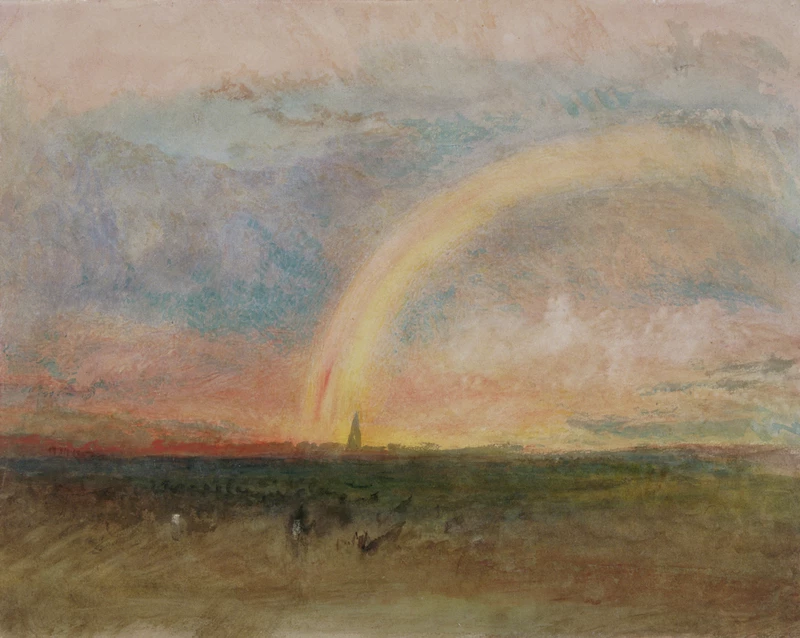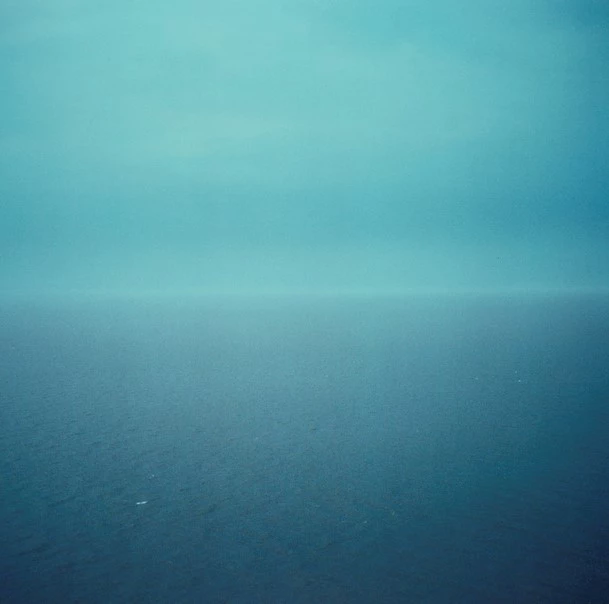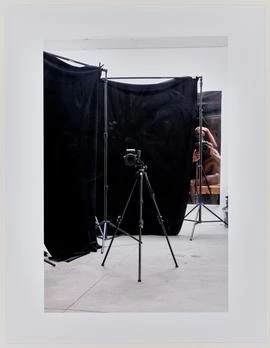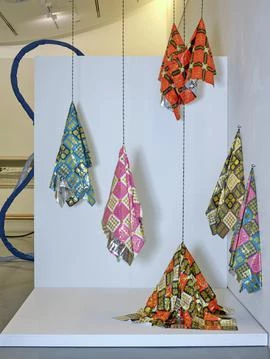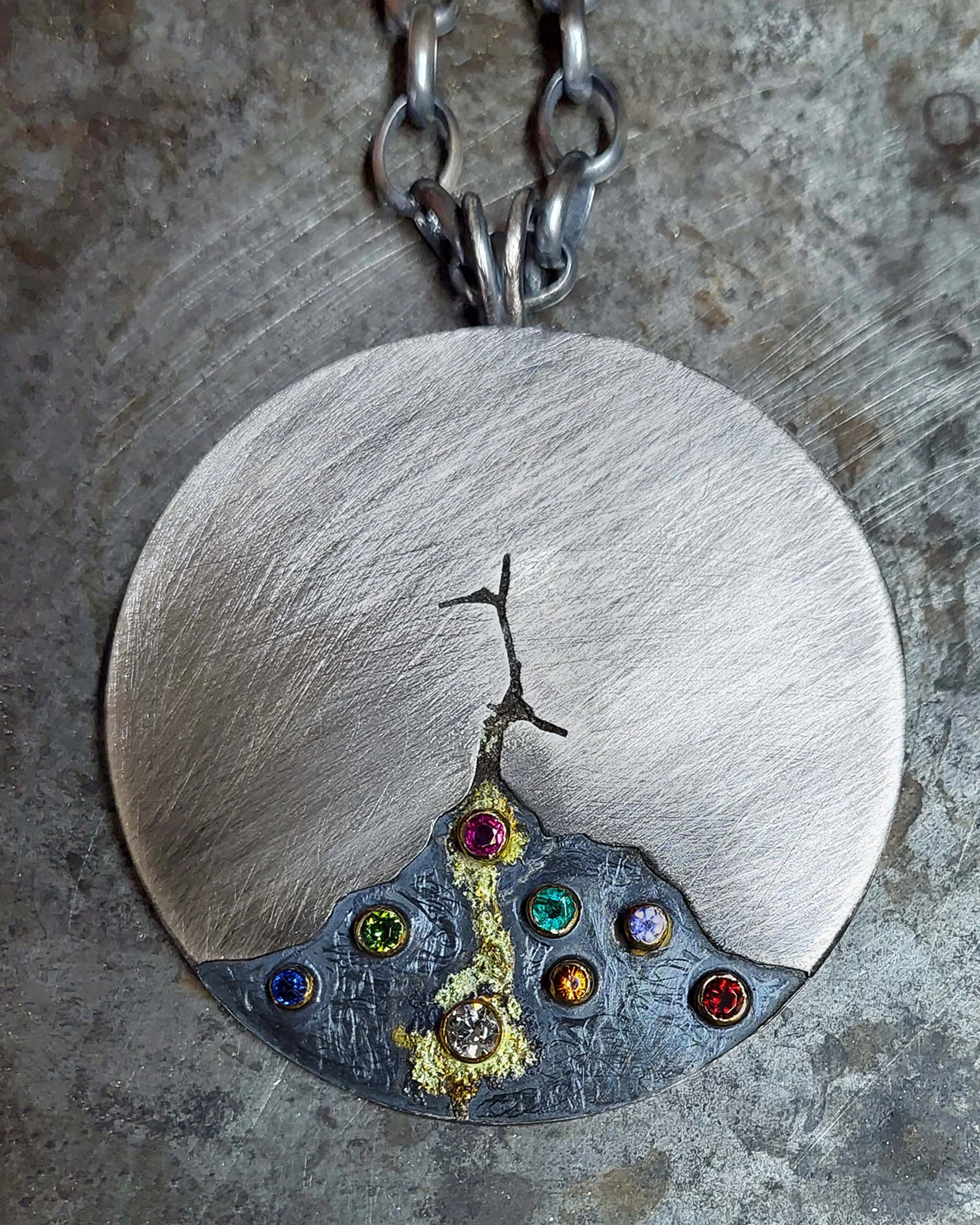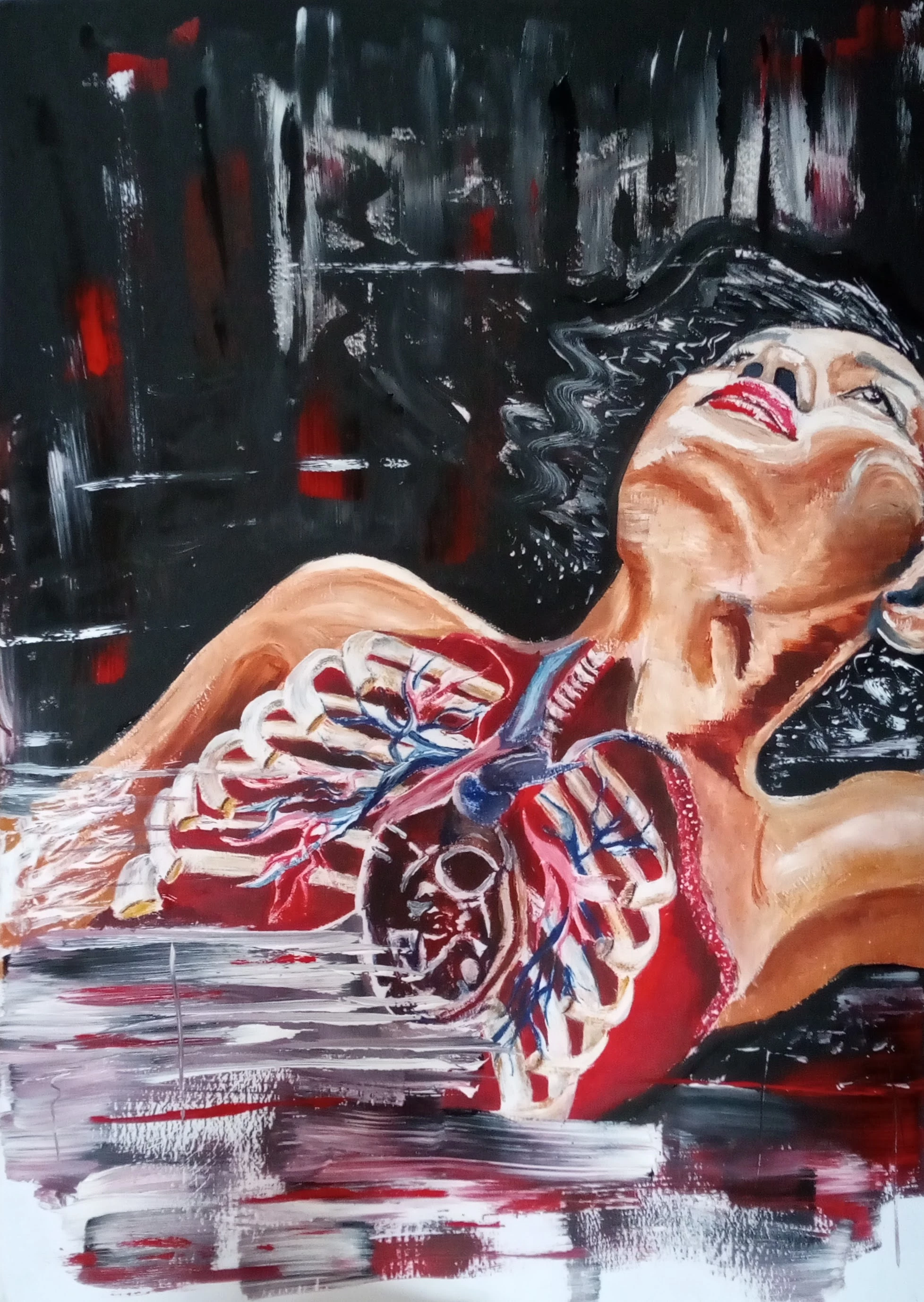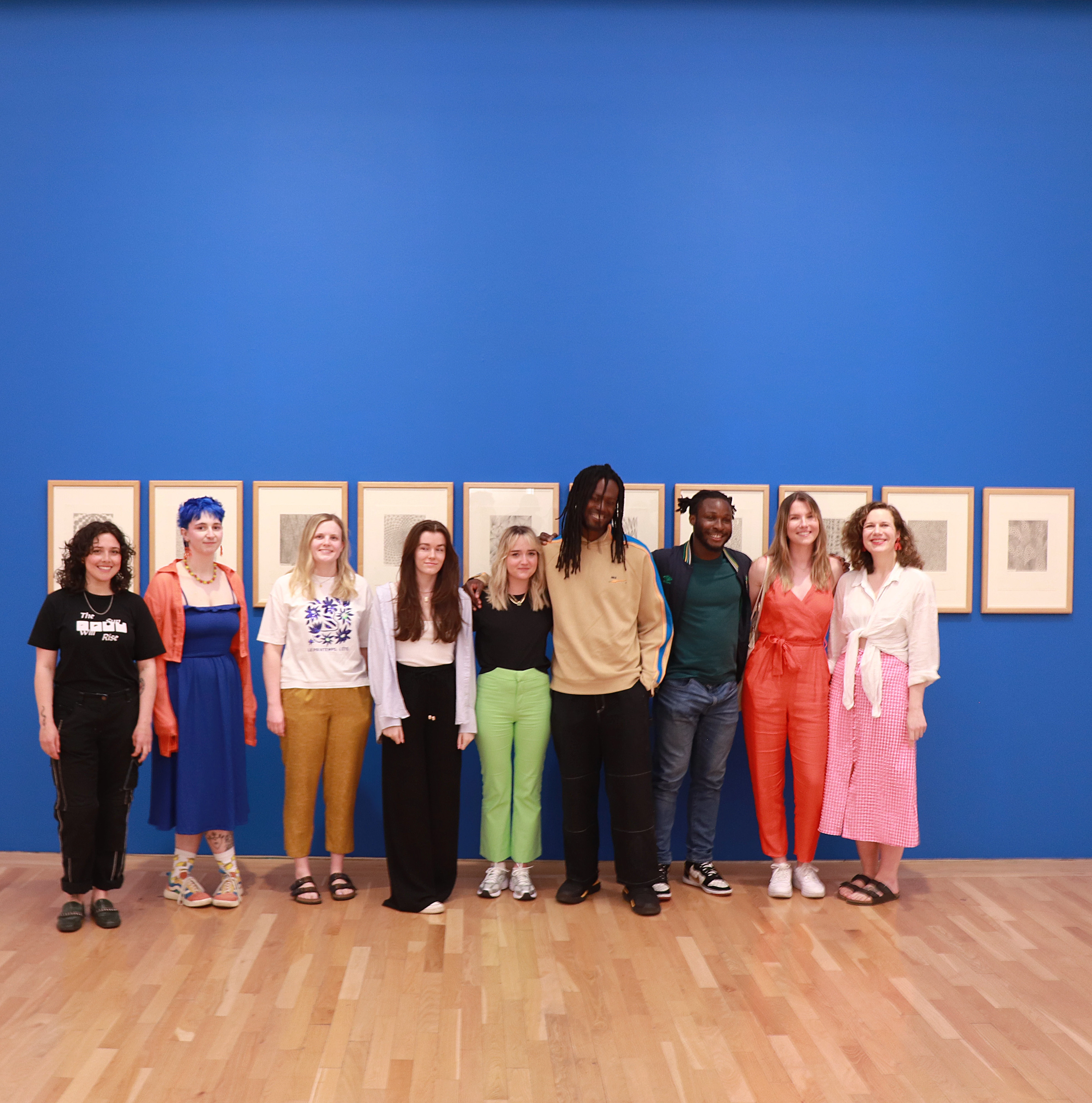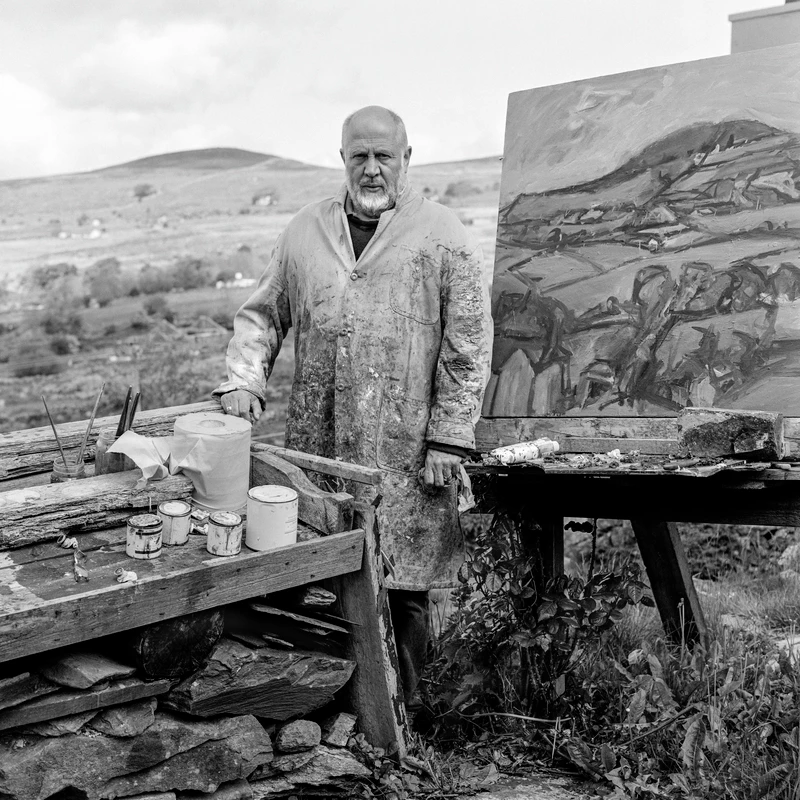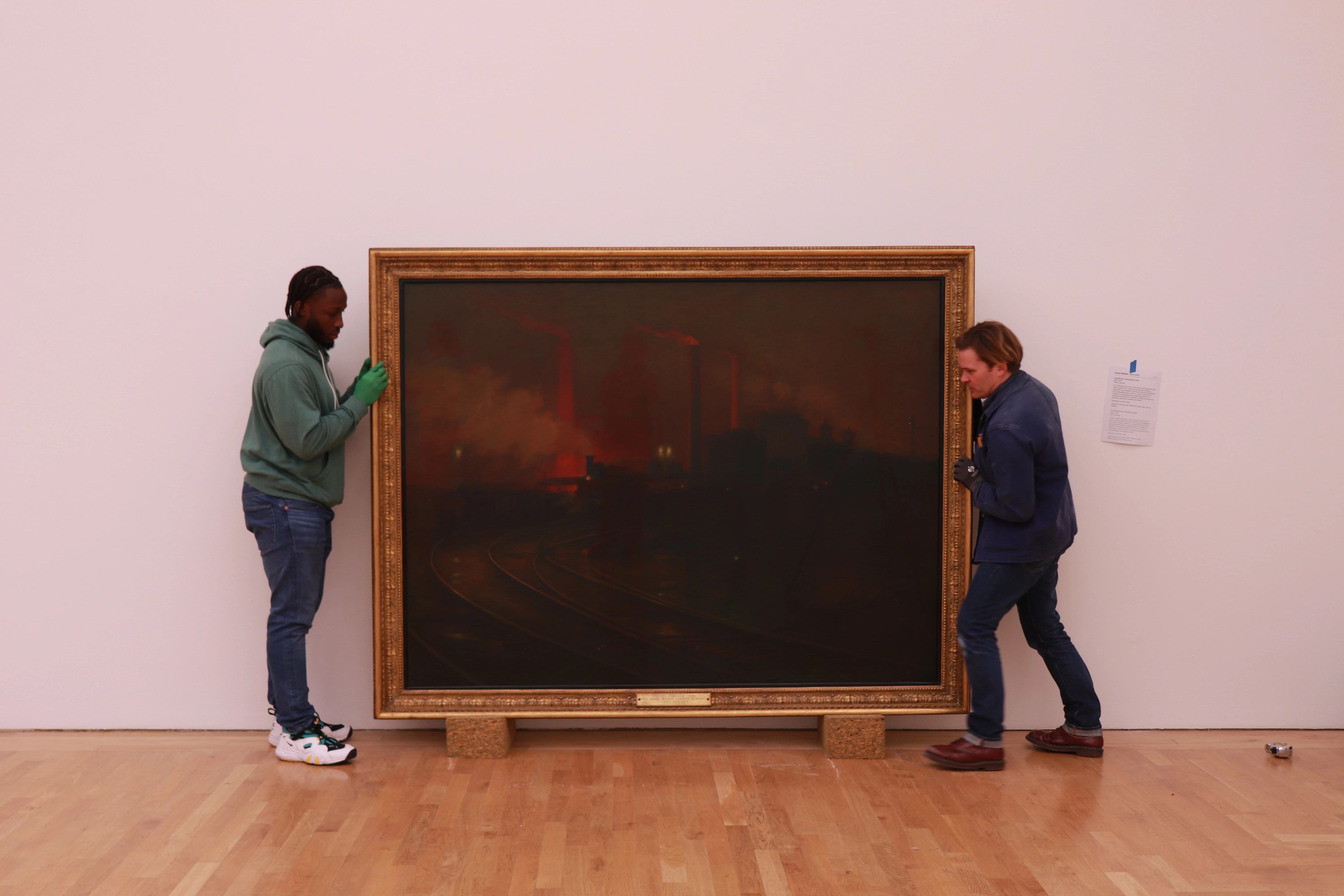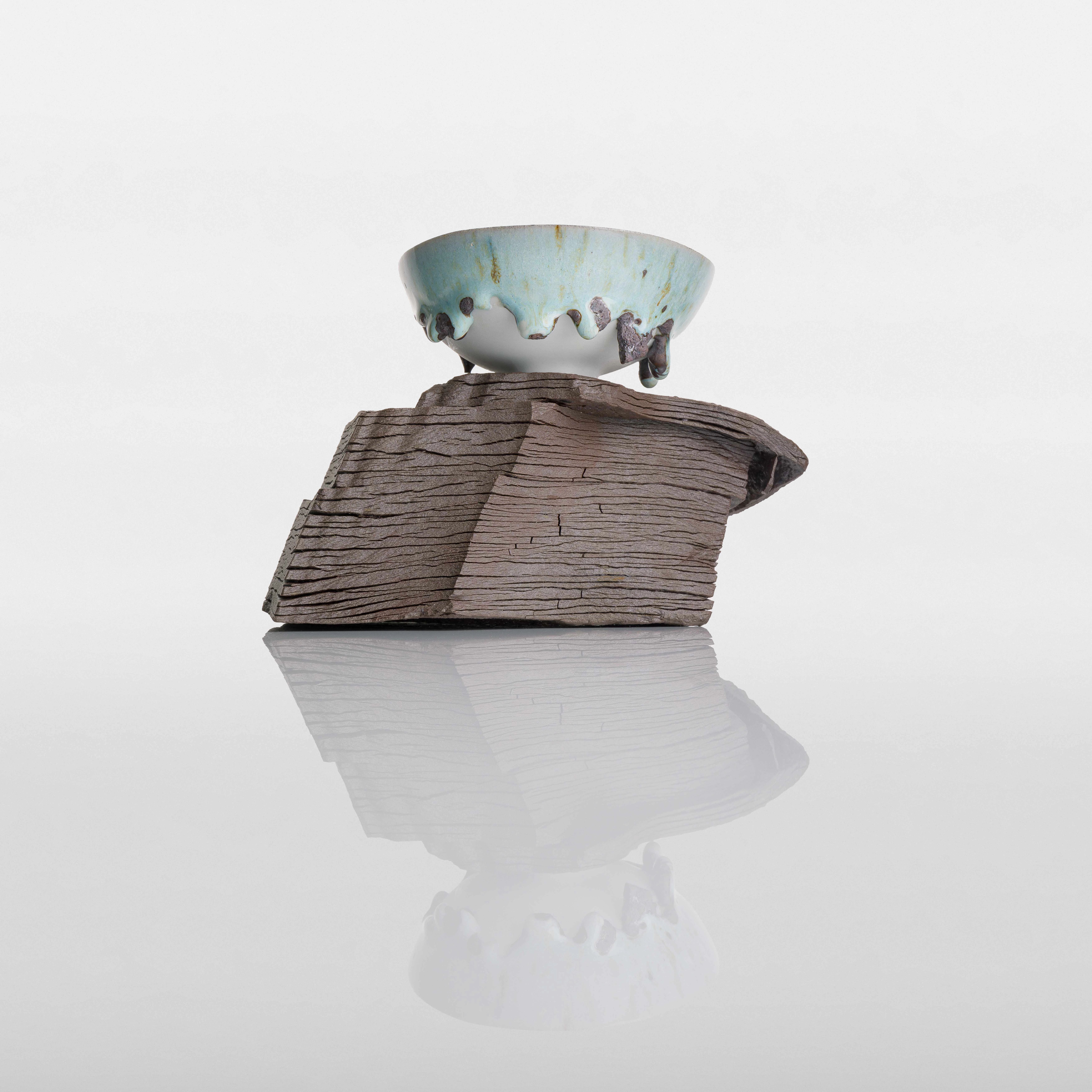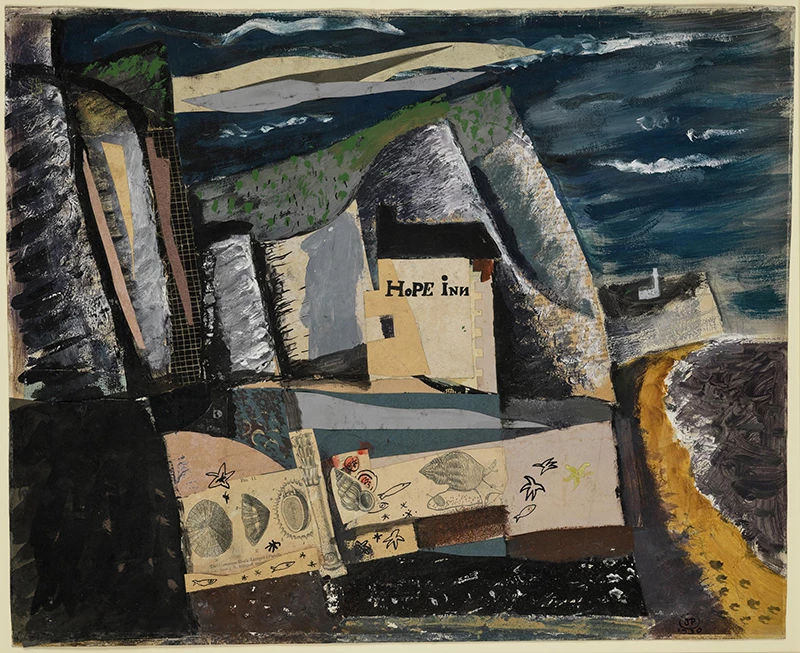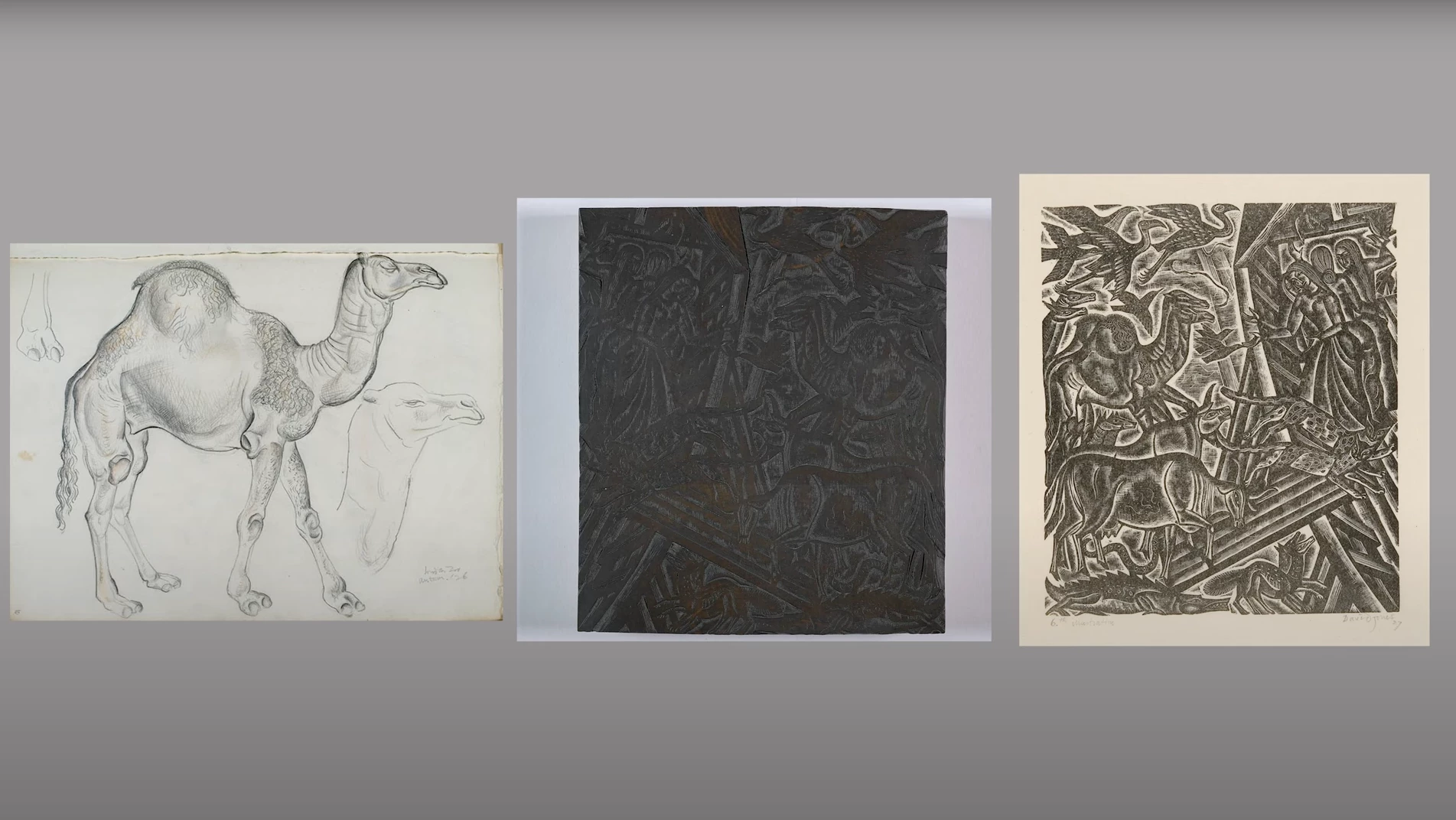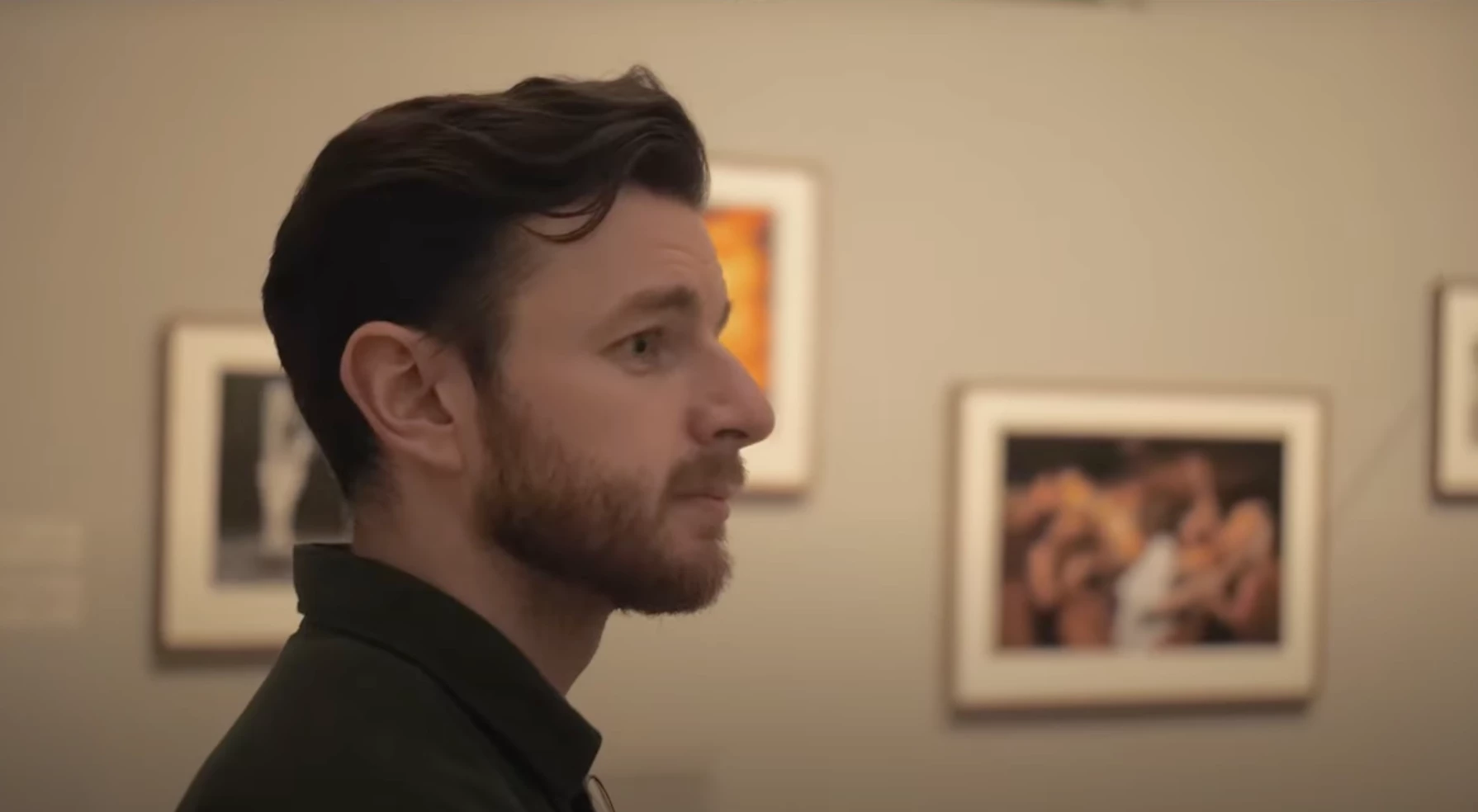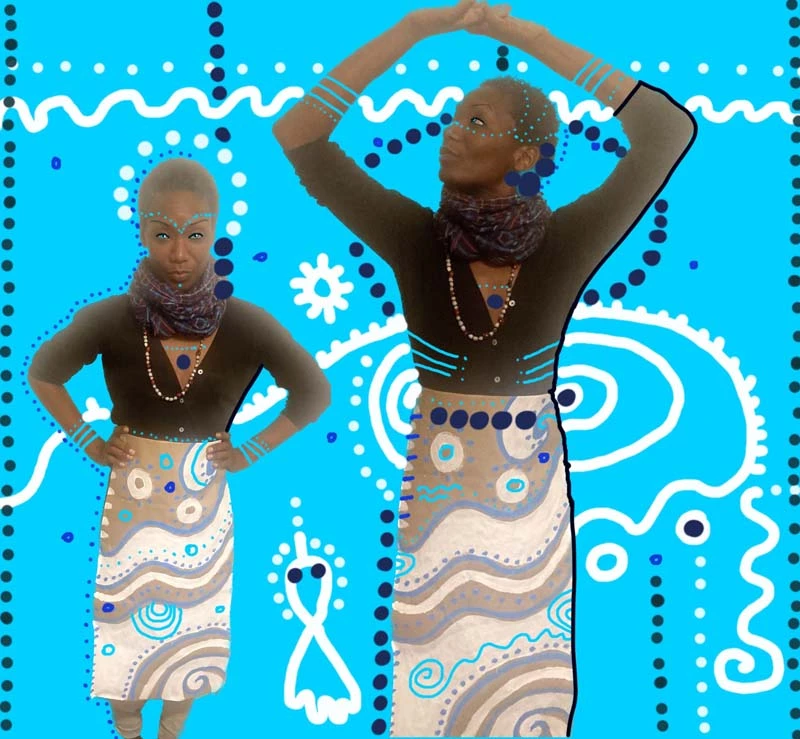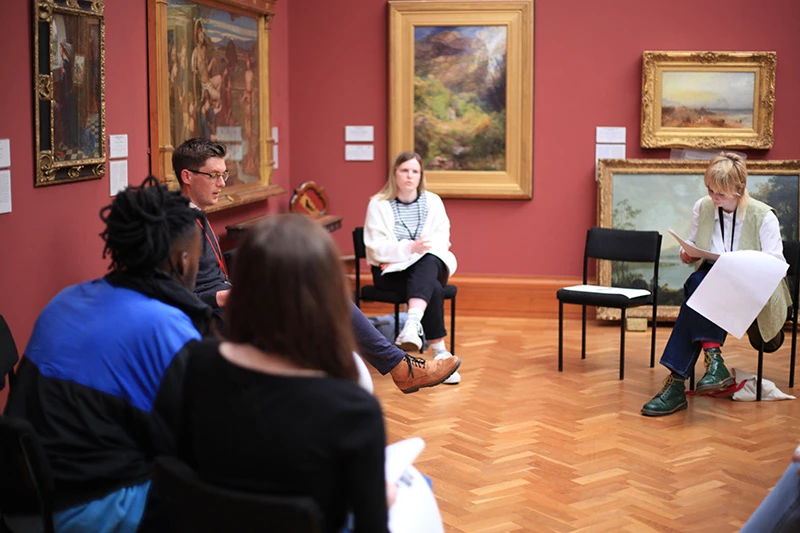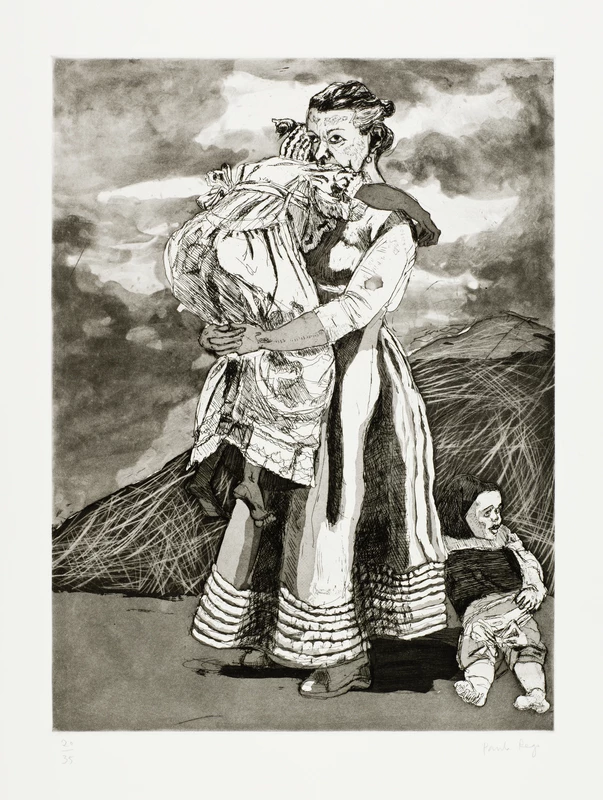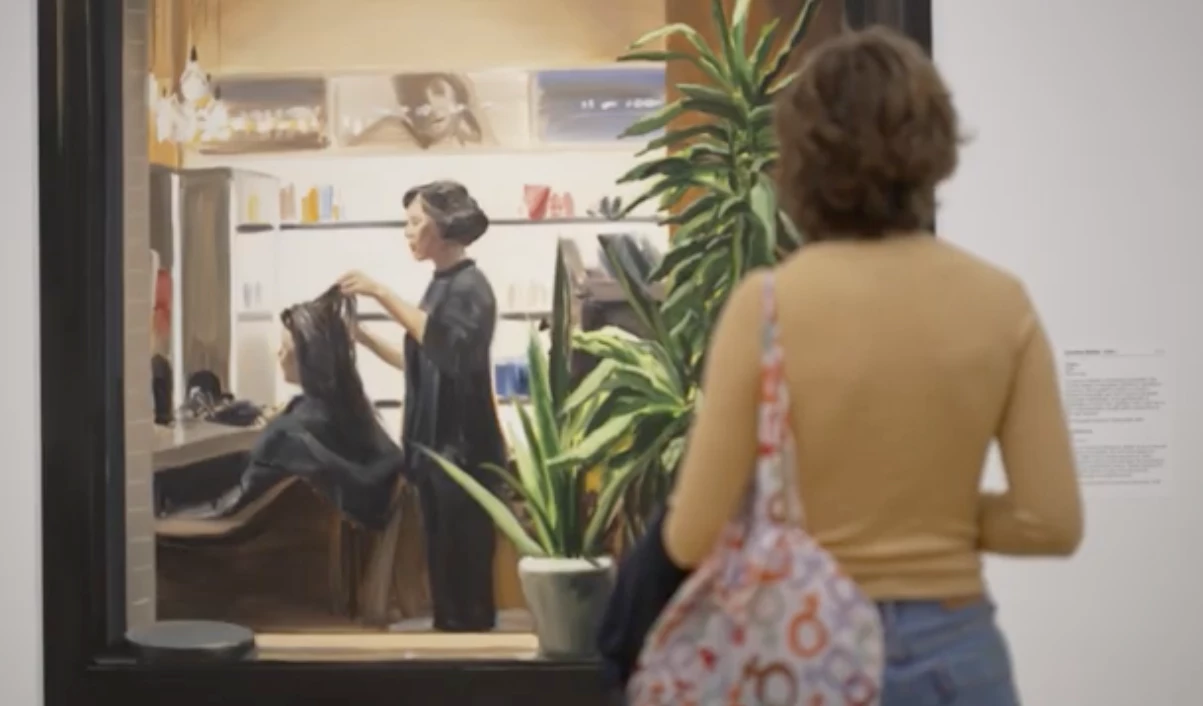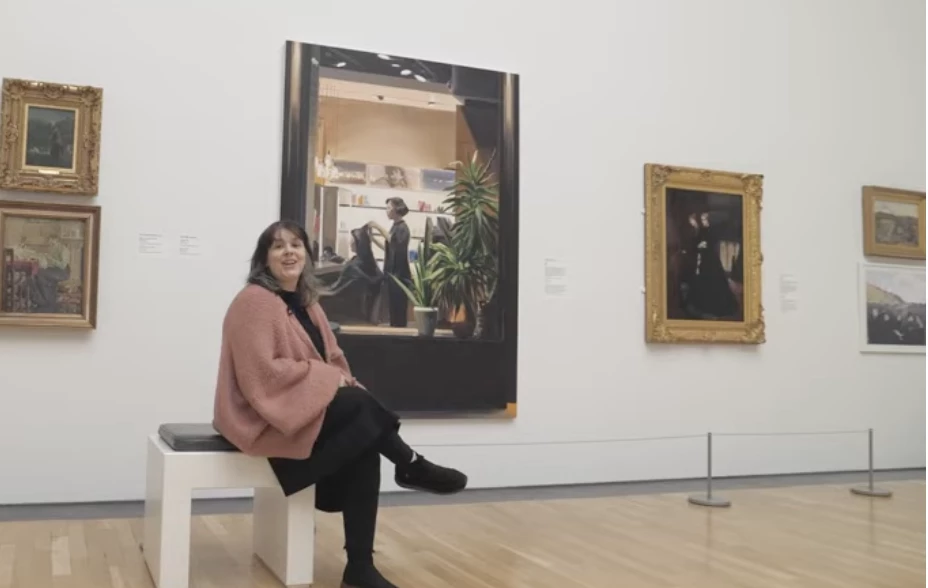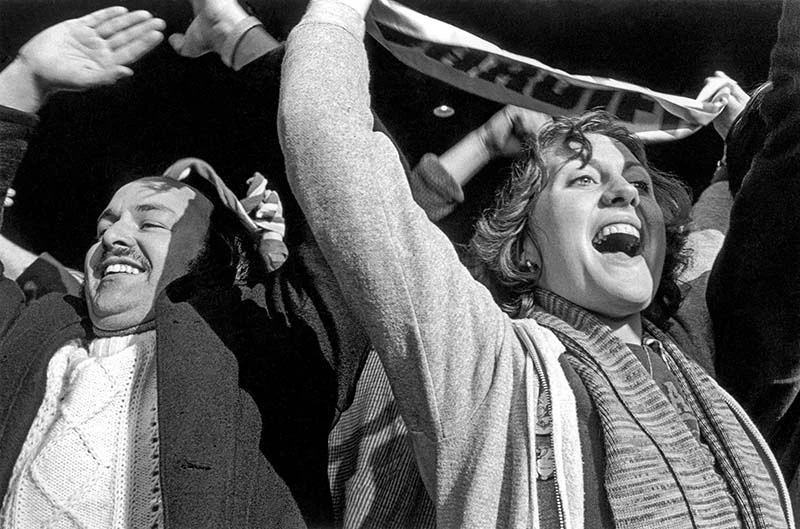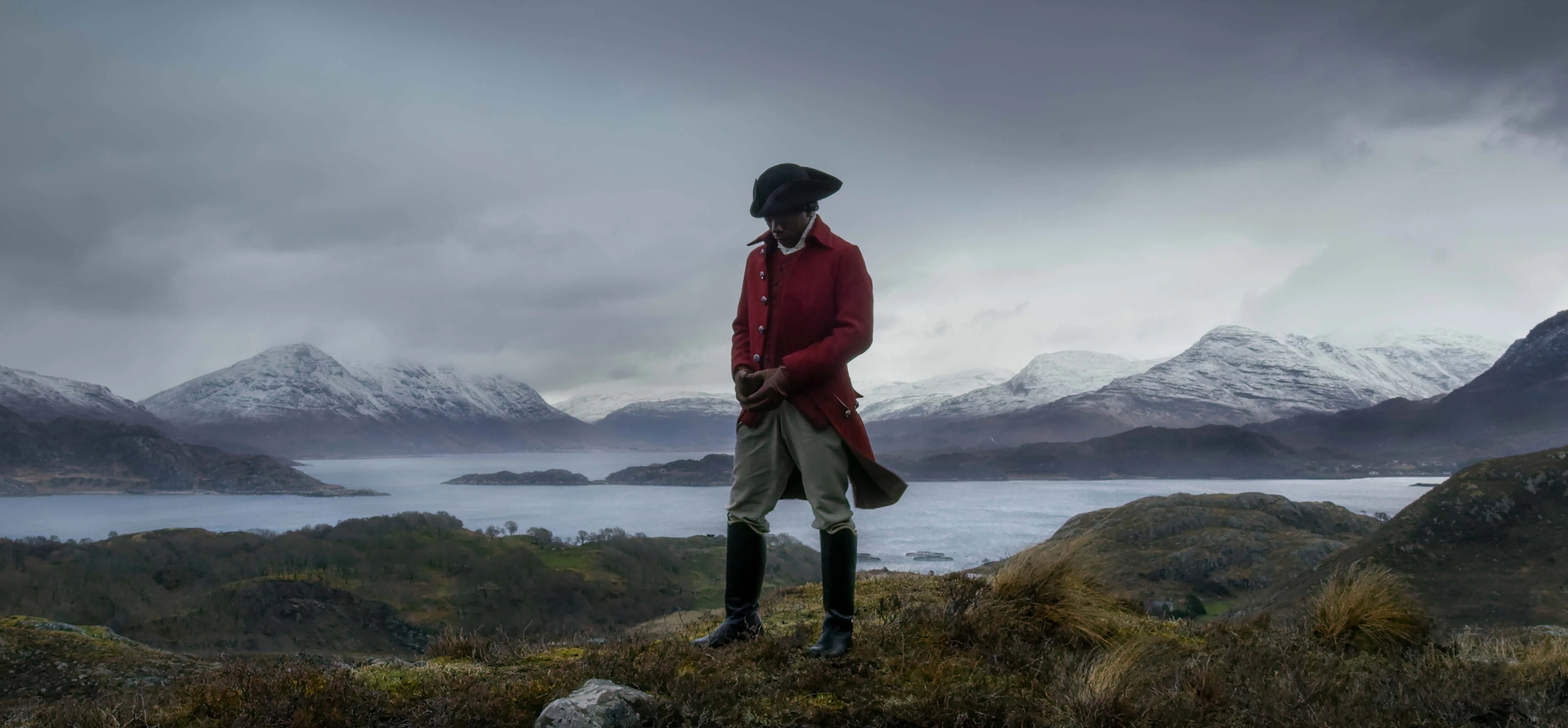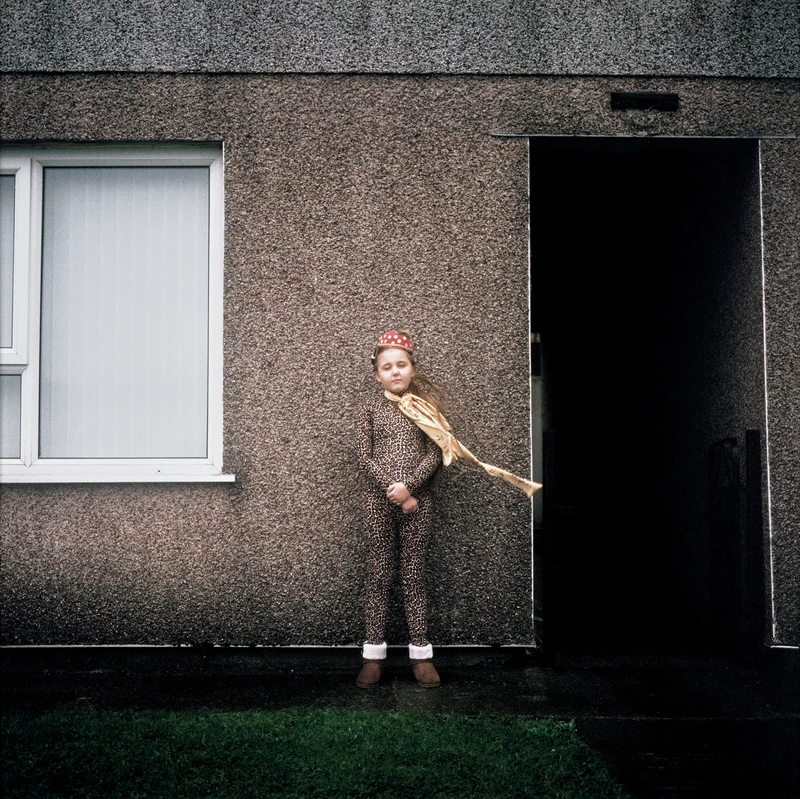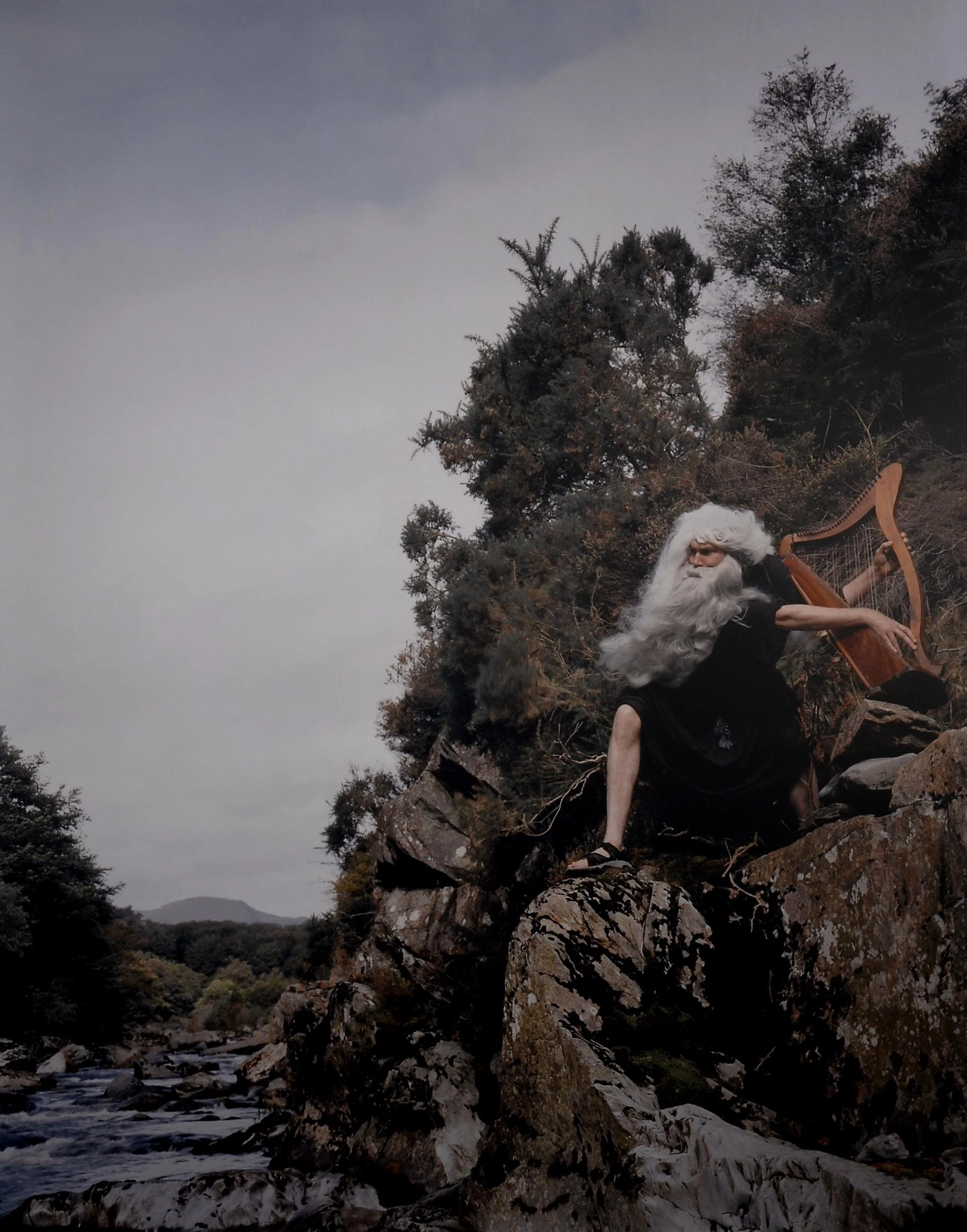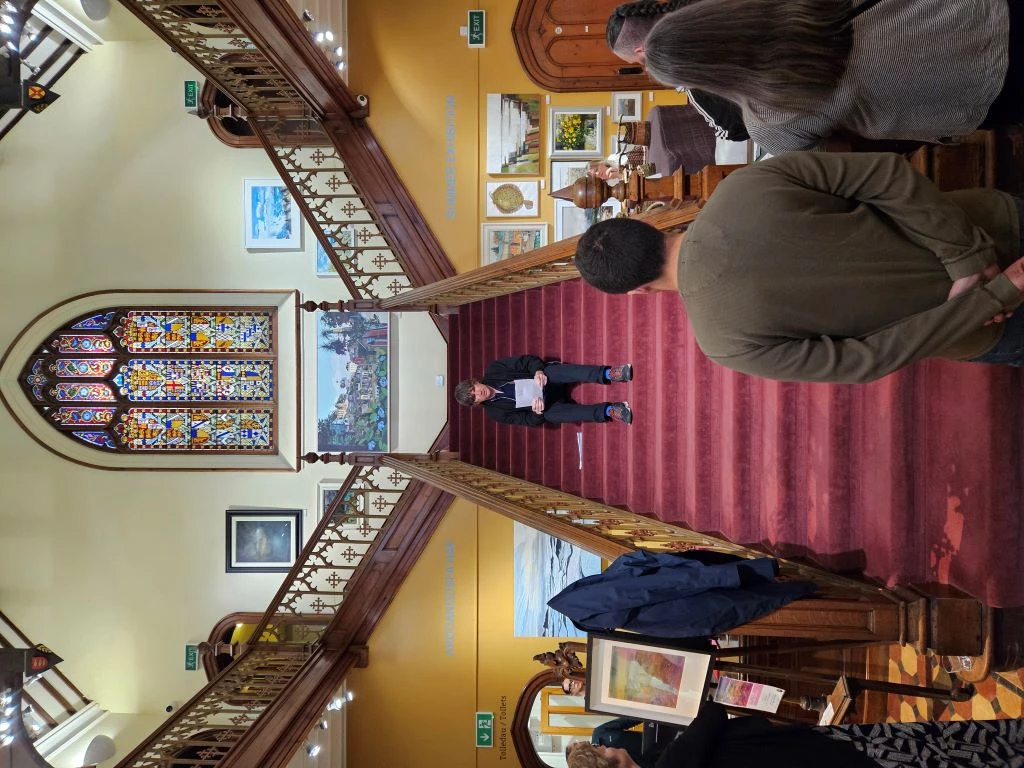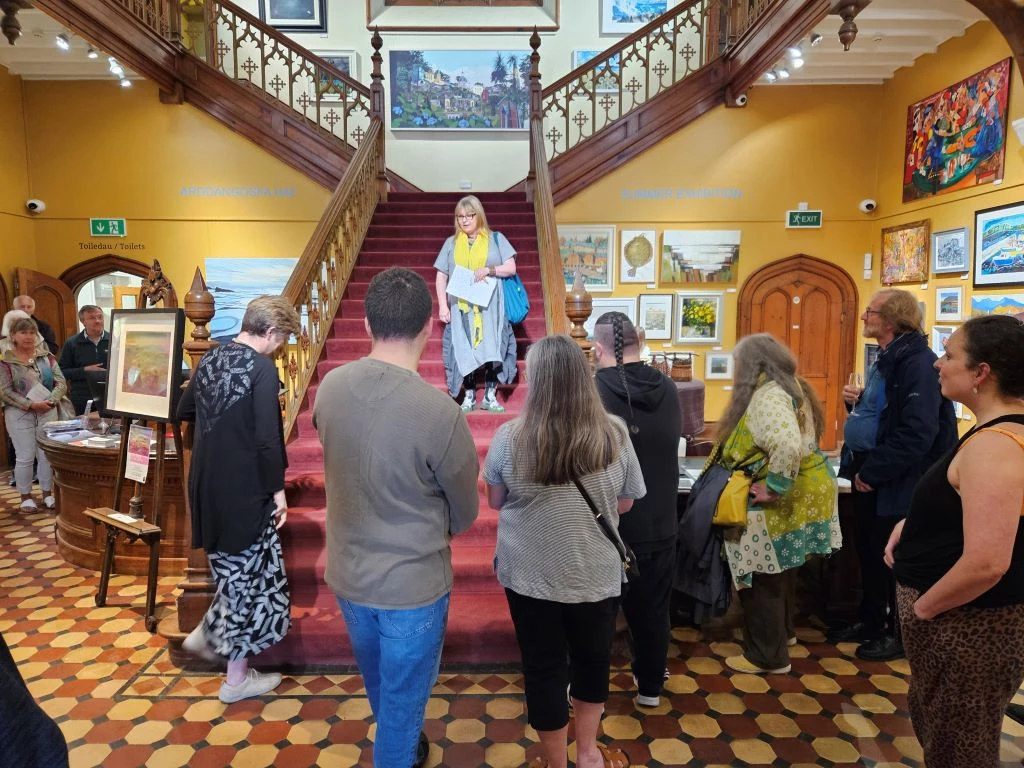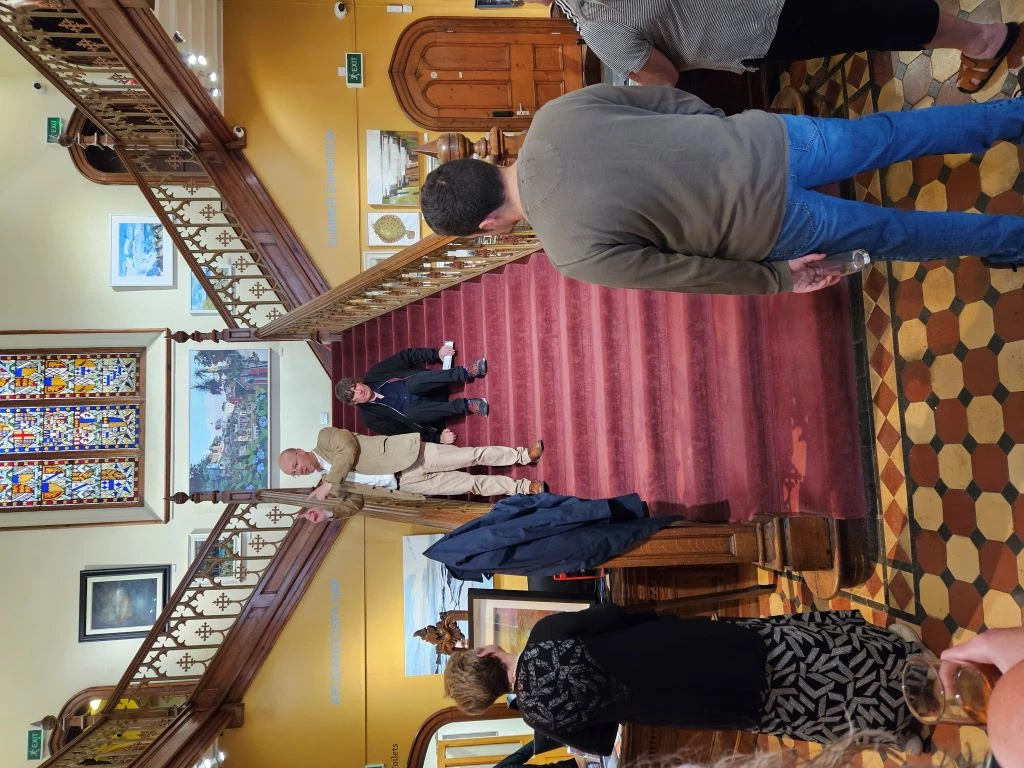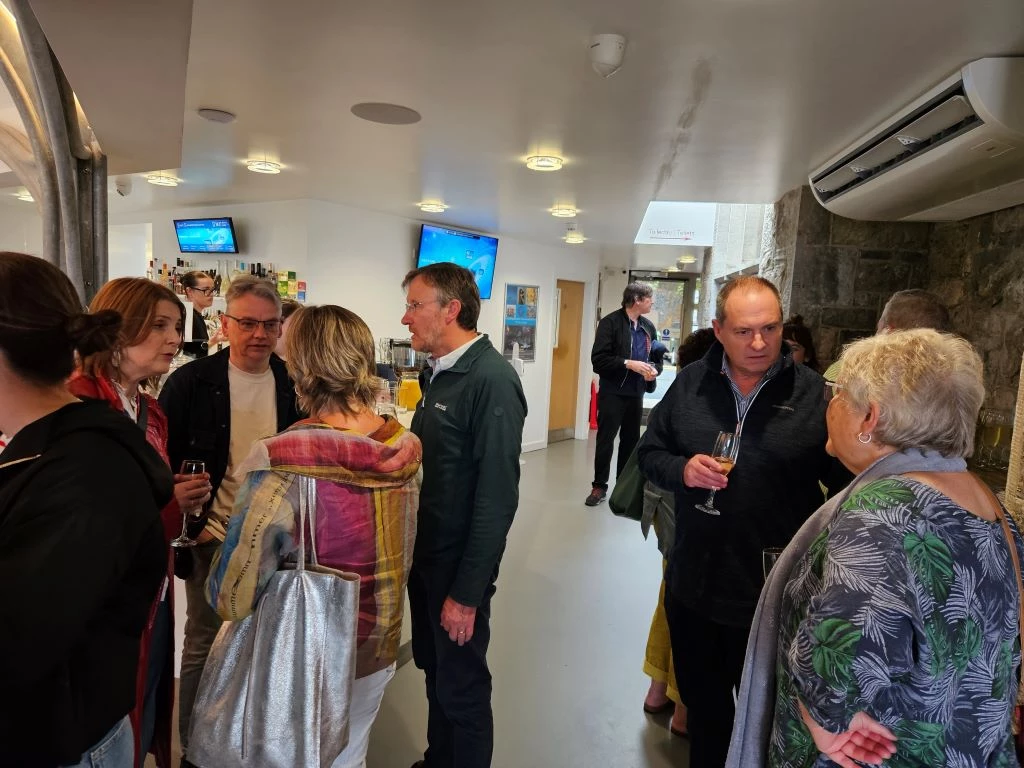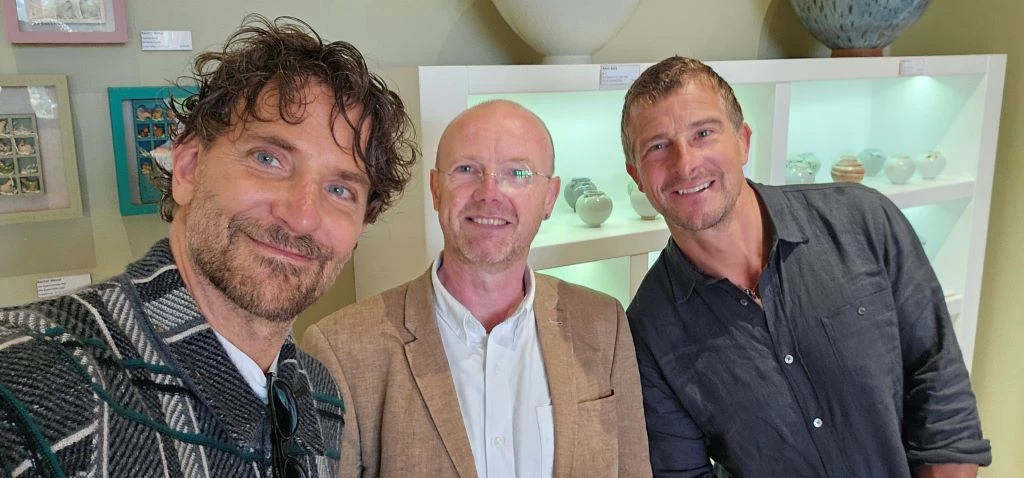Bedwyr Williams: ‘Tyrrau Mawr’ (Film, 2015, 20mins)
Plas Glyn-y-Weddw’s first loan exhibition as a member of CELF the national contemporary art gallery for Wales project has just taken place, over the summer months of 2024 at Llanbedrog.
The popular arts centre on the Llŷn Peninsula chose Tyrrau Mawr by Gwynedd based artist Bedwyr Williams, a successful and prominent artist, internationally recognised for his multi-disciplinary work across video, performance, poetry, sculpture, painting and drawing. Using satire and comic observation, his work is about people, society and life’s peculiarities.
Williams created Tyrrau Mawr in 2015 and the film was winner of the The Derek Williams Trust Purchase Prize at Artes Mundi 7 and subsequently acquired for the nation by Amgueddfa Cymru - Museum Wales.
Where is Tyrrau Mawr?
On the slopes of Cader Idris in Eryri, around the banks of Llyn Cau, sits a futuristic new mega city. As we look out onto the view, it changes from day to night and is accompanied by a soundtrack and voiceover. Written and narrated by the artist, we are told stories of the city’s formation and the ambition of its architect.
The work takes the tradition of Richard Wilson’s 18th century landscape painting to the extreme through its depiction of a not-so-distant future. In Tyrrau Mawr, translating as the Great Towers, Williams brings contemporary urbanisation and social engineering associated with newly formed cities to north Wales. From photographs of Snowdonia’s landscapes, he imagines and crafts an architectural project.
The film’s sharp quality is created from high resolution still images taken of the mountain by the artist. These, along with the positioning of buildings modelled and lit to show the passage of time across the day and night were given to a company called Bait Studio in Cardiff to ‘stitch’ together. The end result was a ‘matte painting’ made to feel like a painter’s interpretation rather than a captured still. (A matte painting is a painted representation of a landscape, set, or distant location that allows filmmakers to create the illusion of an environment that is not present at the filming location).
In Tyrrau Mawr Bedwyr Williams skilfully navigates the balance between the profound and the mundane through his use of multimedia, accompanied by a reflective voiceover, the installation invites viewers to contemplate urban life and Welsh identity, challenging notions of beauty and banality.
Bedwyr Williams at the Tyrrau Mawr opening, Plas Glyn-y-Weddw
Chair of CELF the national contemporary art gallery for Wales, Mandy Williams-Davies
Gwyn Jones, Gallery Director, Plas Glyn-y-Weddw and artist Bedwyr Williams
With the exhibition now over, Plas Glyn-y-Weddw Marketing Officer Zoe Lewthwaite got a chance to ask Bedwyr some closing questions and explore the creative process and ideas behind his thought-provoking work.
1. What initially drew you to the idea of creating Tyrrau Mawr? Was there a specific moment or experience that sparked the concept for this film?
"The subject matter of a Welsh mega city just came to me. I wondered what it would be like, the obscene scale of it and then after that the banal and affected lives of the people living in it. It’s funny how people live vicariously through the cities they chose to live in, a bit like the crowing fans of successful football teams. They think they have lead roles but they’re actually just part of a massive ordinary chorus."
2. Can you talk about your visual and conceptual approach in Tyrrau Mawr? How did you decide on the style and tone of the film?
"I’ve always liked the fake scenes and buildings created in film, with the matte painting technique where artists would paint on glass and film through it to create amazing landscapes or scenes. It’s in the old Star Wars films and many others. These days it’s done with computers. These scenes are usually only on screen for a few seconds to sell the viewer the illusion. I thought it would be good to hang on one of these illusions as if it was a still image and to dwell on it."
3. The film blends reality with imagination. Can you describe the buildings we see in the film?
"I just Googled controversial buildings and chose the best-looking ones and placed them in the landscape. They are mostly big show off buildings and not particularly beautiful. The Guggenheim from New York is there which is beautiful as well as Zaha Hadid’s proposed opera house for Cardiff which was kyboshed by boring councillors."
4. Tyrrau Mawr seems to explore themes of memory, history, and industrial legacy. How do these themes resonate with your personal experiences or the shared history of Wales?
"I’ve got a slightly confused relationship with Wales. I’ve got a hefty Welsh name, and I speak Welsh as a first language. I’m proud sort of and enjoy getting worked up watching football and rugby and second homeowners reaching over into our communities winds me up like nothing else. But I don’t feel I share feelings with other Welsh people I don’t have loads of Welsh friends or people who want to meet me in the pub or make a big fuss when they see me in B&Q. Welsh people get married week in week out but I’m seldom at the weddings. Some people call me 'Beds' which makes me feel part of things a bit more. I don’t like those bucket hats, and I don't think the people who wear them would probably like me which is fair enough. It’s quite a cliquey country which is maybe how the language survived, I don’t know... I just know I'm not properly in it."
5. How did you approach balancing these heavier themes with the humour that is a characteristic of your work?
"It’s like seasoning a salad, you just taste it and adjust. British people try to be funny all the time which is very tiresome so it's good to be careful and not overdo it."
6. What kind of emotional or intellectual response are you hoping to evoke in viewers of Tyrrau Mawr? How did you think the film's setting under the John Andrew’s theatre here at Plas Glyn-y-Weddw influenced the audience's experience?
"I wanted people who like good things to like it and anyone beyond that is a bonus. PGyW had done a great job with the AV installation so it looked how it was intended. Curators often show it on a small screen which is not ideal and robs the work of its impact. What’s also good is that Cader Idris where the film is set can be seen in the distance over Cardigan Bay, something Gwyn at PGyW pointed out to me."
7. You created Tyrrau Mawr in 2015, are you interested in creating another film project in the future?
"Works like this are expensive. I’d love to make more but in this climate it’s tricky."
In reflection……………
Tyrrau Mawr is more than just a visual experience; it’s a complex exploration of identity, community, and the absurdities of modern urban life. Bedwyr’s unique blend of humour and introspection invites viewers to reflect not only on the landscapes depicted but also on their own relationships with place and belonging.
It is now 10 years since the artist created this film and naturally there have been technological advancements in film production and editing since then. However, Tyrrau Mawr is a timeless artistic masterpiece now owned by the nation for future generations to enjoy.
Plas Glyn-y-Weddw’s inclusion in the Welsh Government’s exiting new CELF initiative, bringing contemporary art collections out from storage and dispersed around the nation, has allowed a new audience to view Tyrrau Mawr. The feedback from viewers at Plas Glyn-y-Weddw during the summer of 2024 was overwhelmingly positive and thankful.
As Bedwyr Williams continues to create impactful work, we are eager to see what he will come up with next, knowing that his insights into humanity will always resonate deeply with the people of Wales and beyond.
Opening night for Bedwyr Williams' Tyrrau Mawr at Plas Glyn-y-Weddw
Actor Bradley Cooper, adventurer Bear Grylls, and Gallery Director Gwyn Jones at the opening event for Tyrrau Mawr by Bedwyr Williams, Plas-Glyn-y-Weddw
